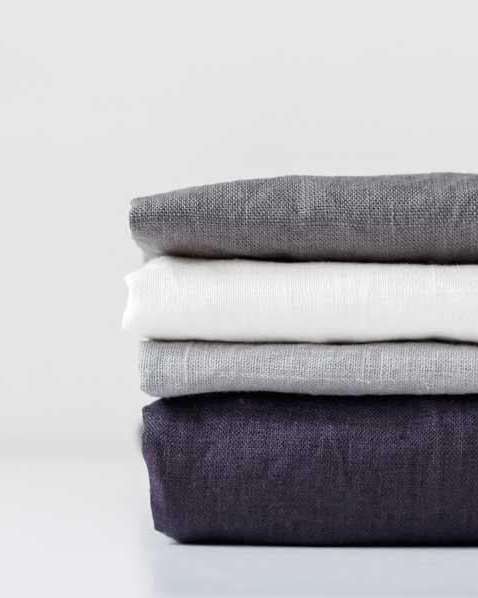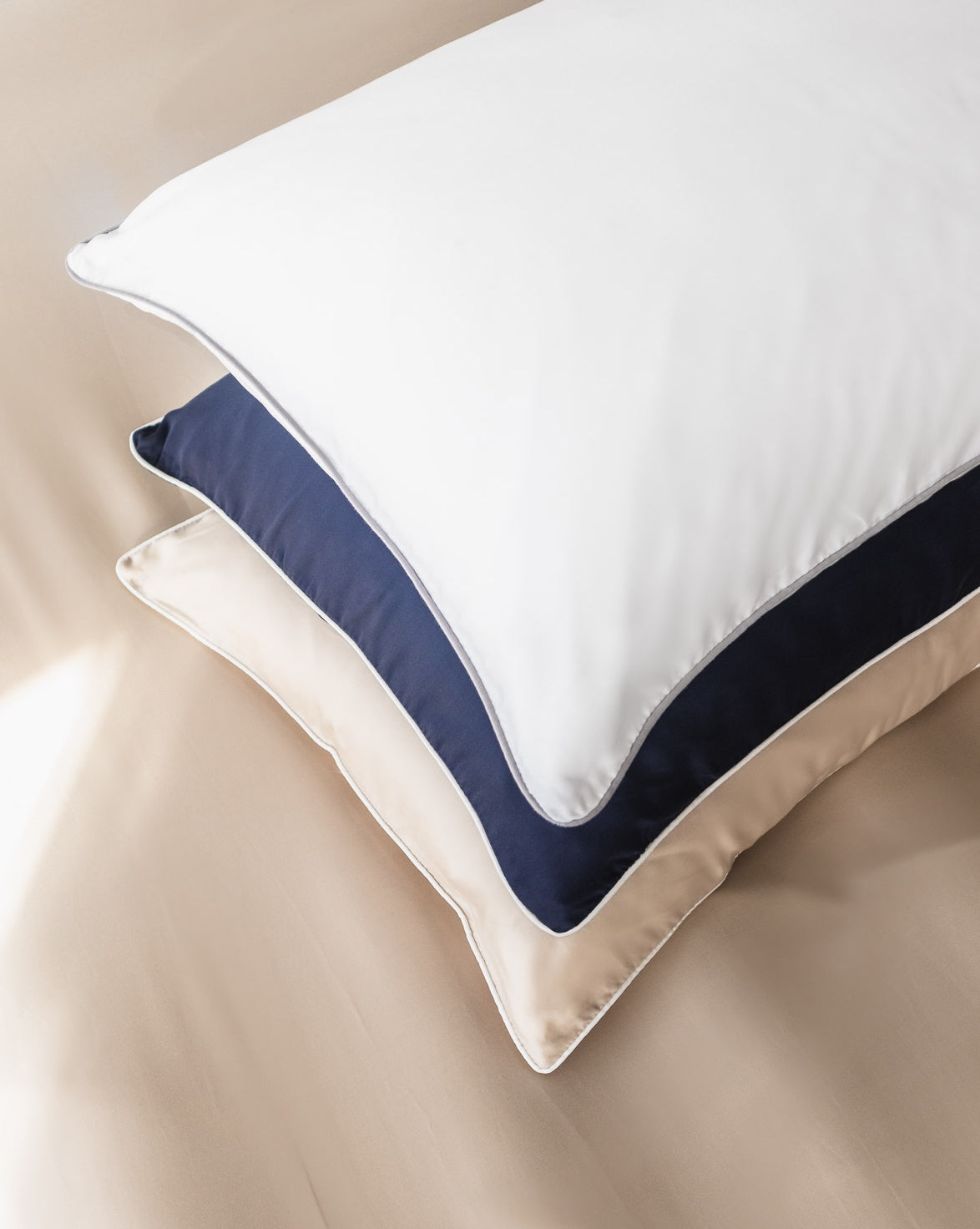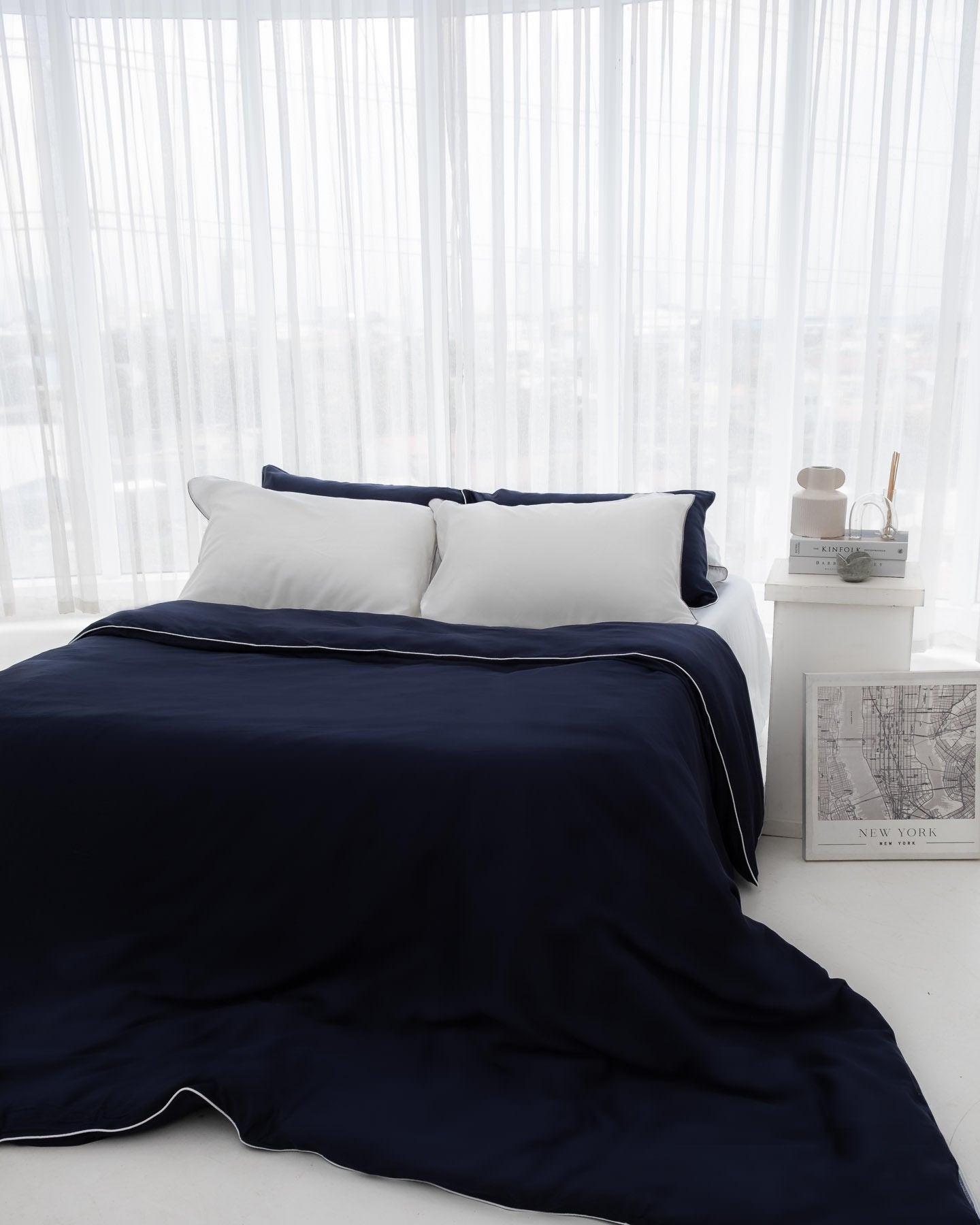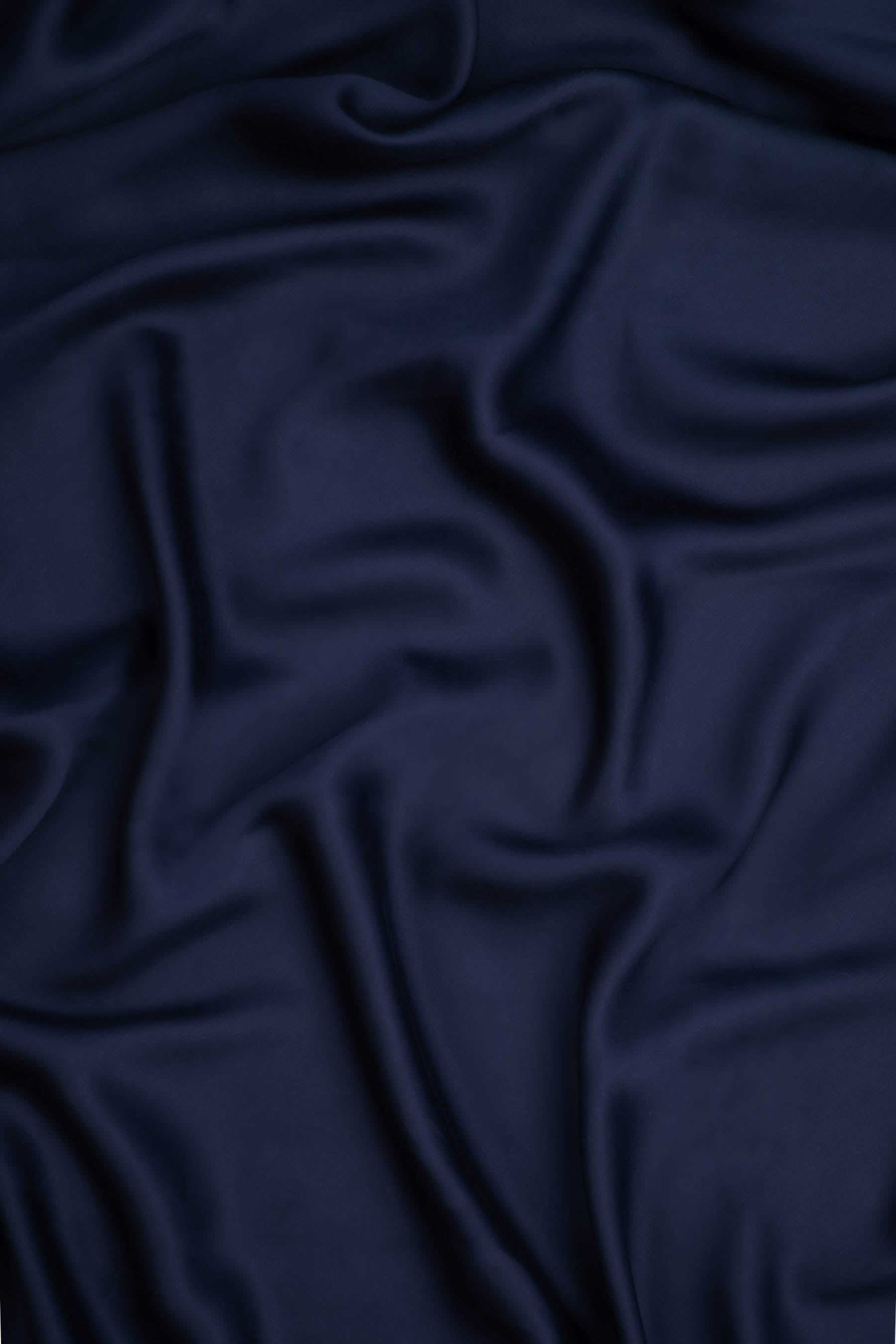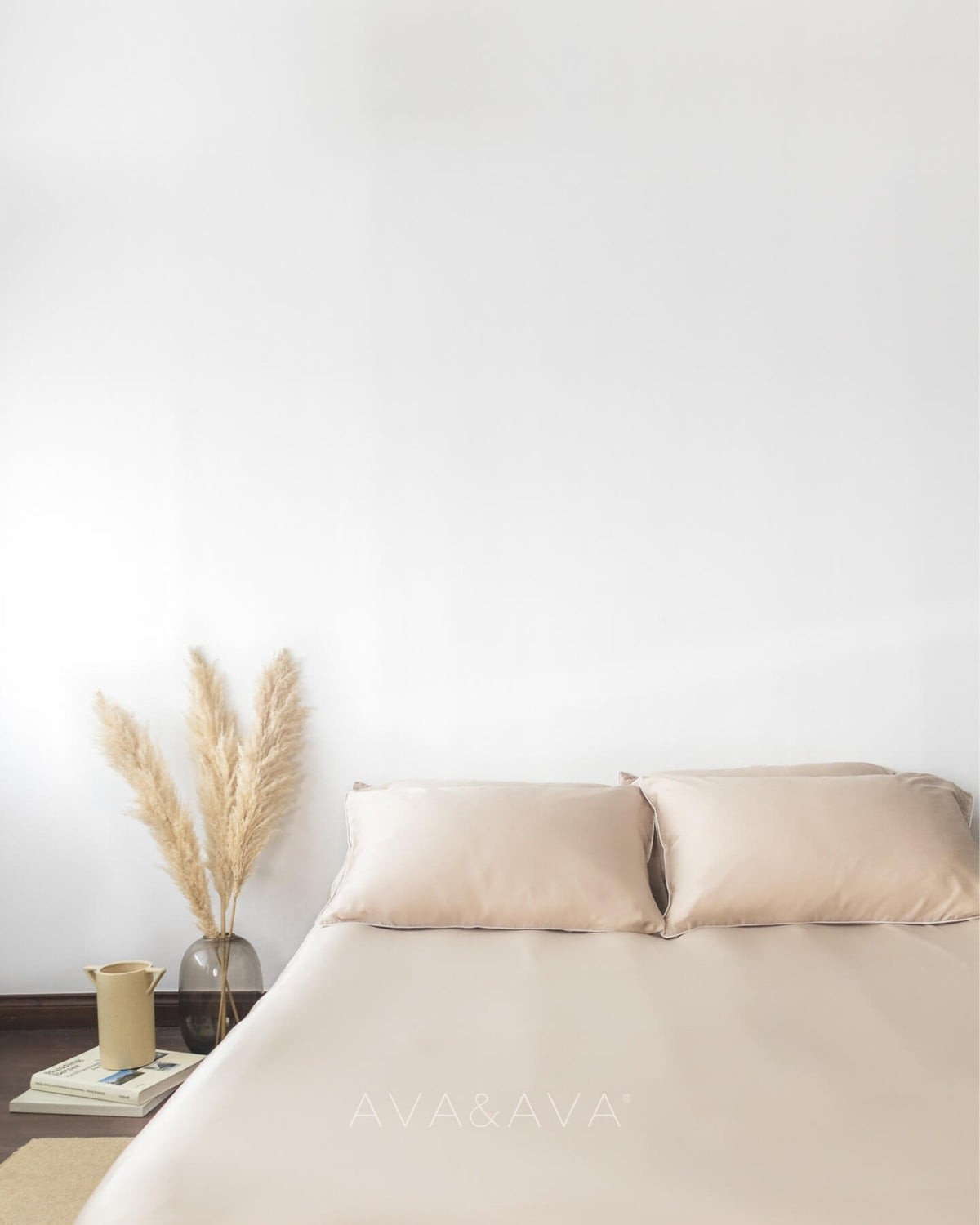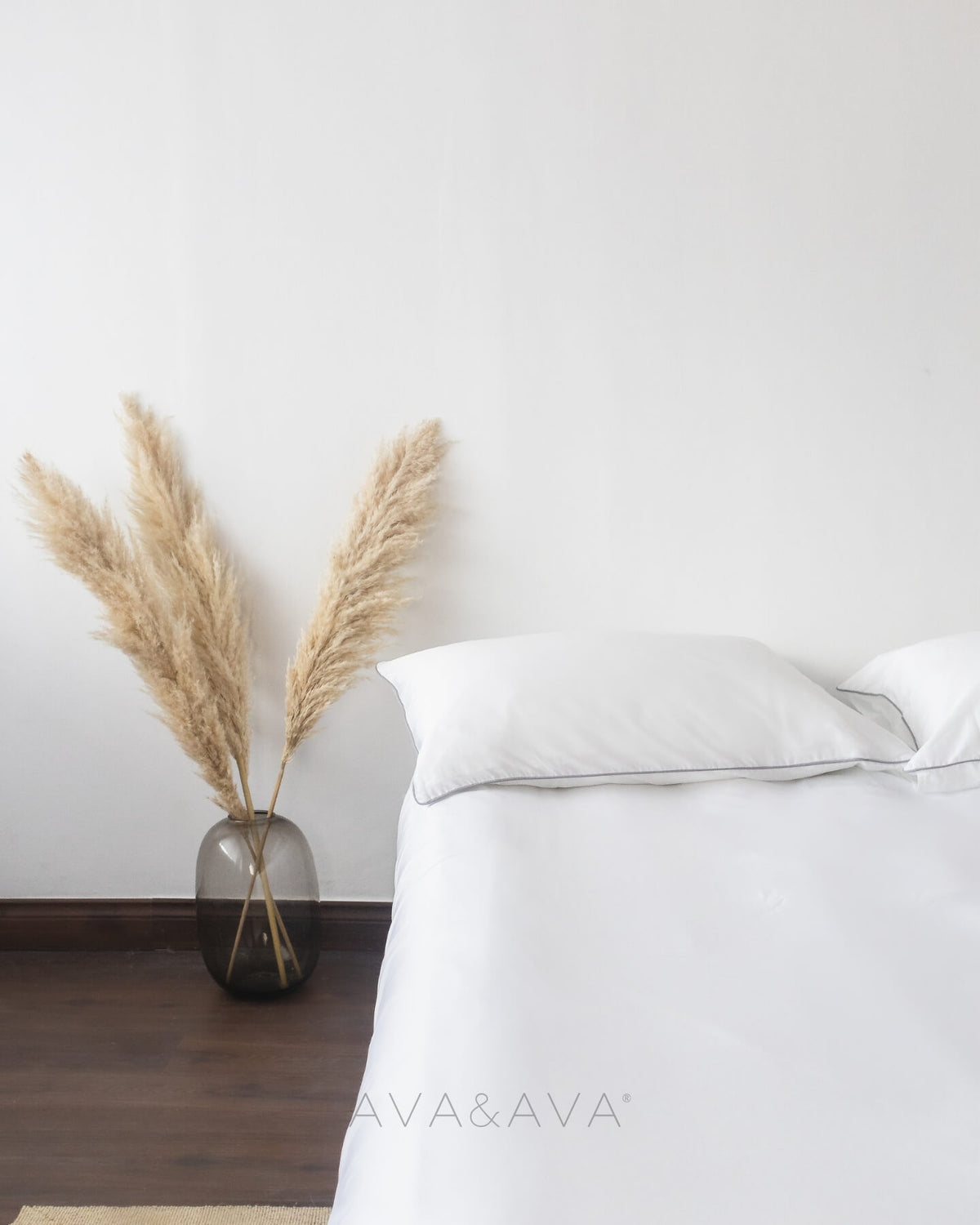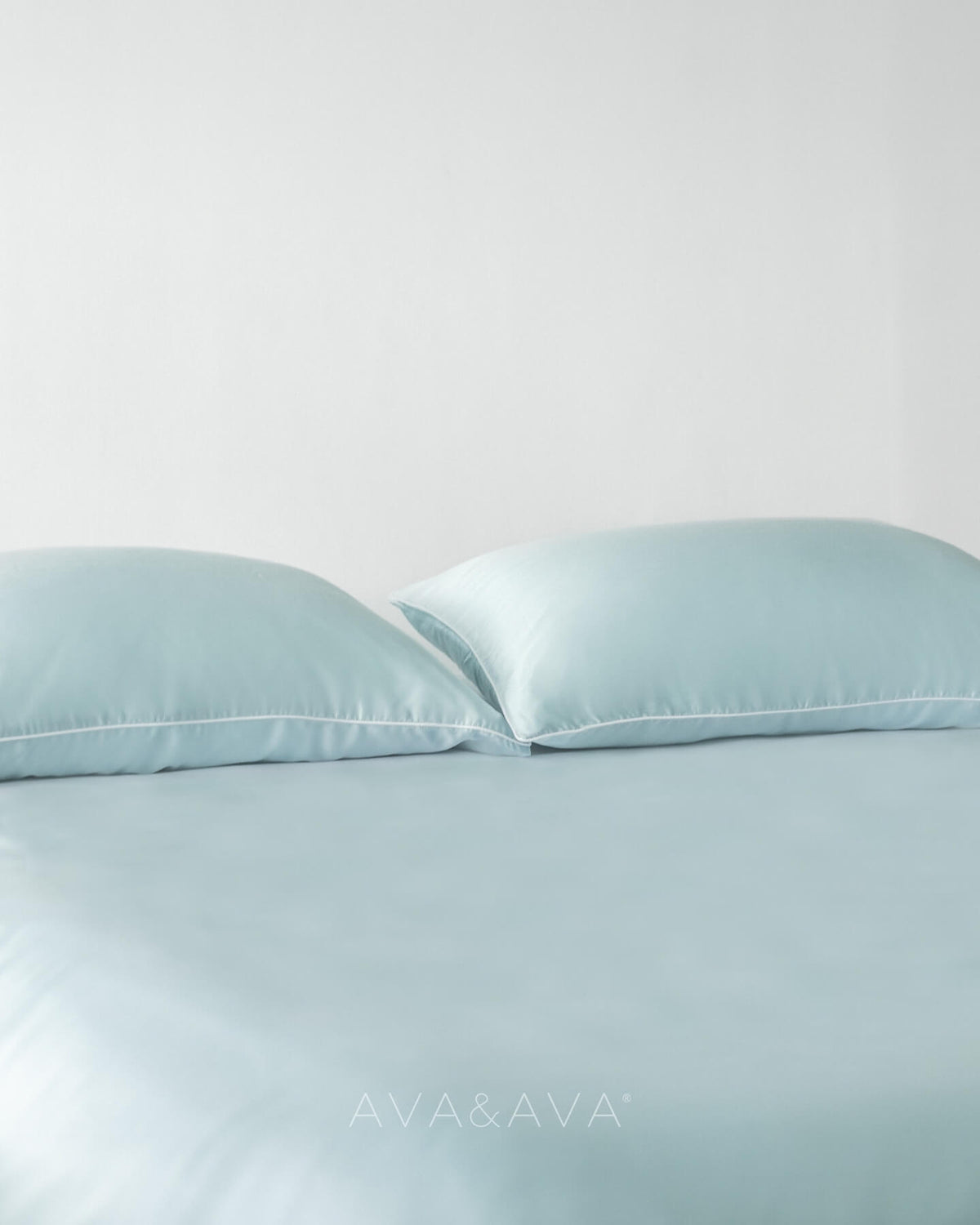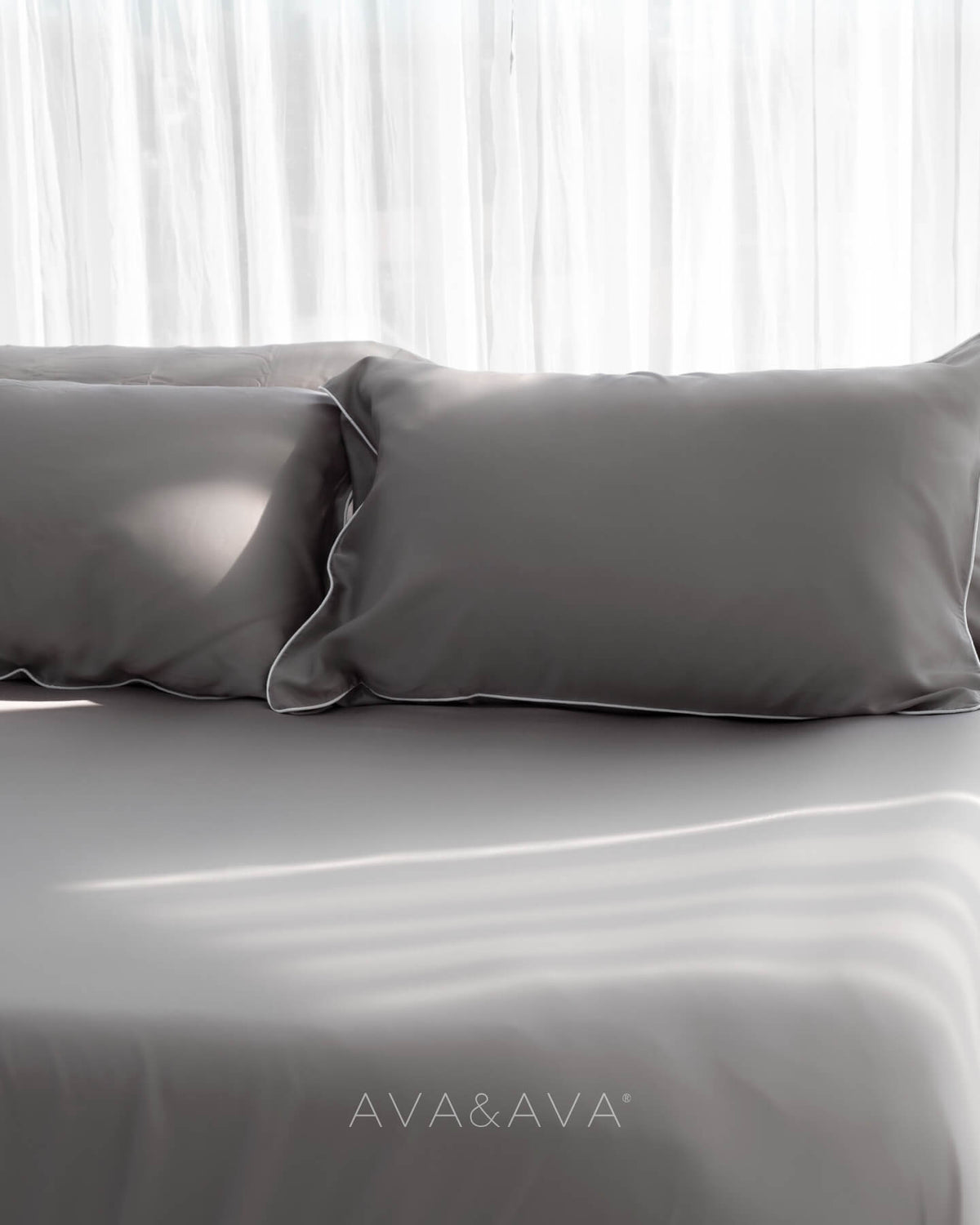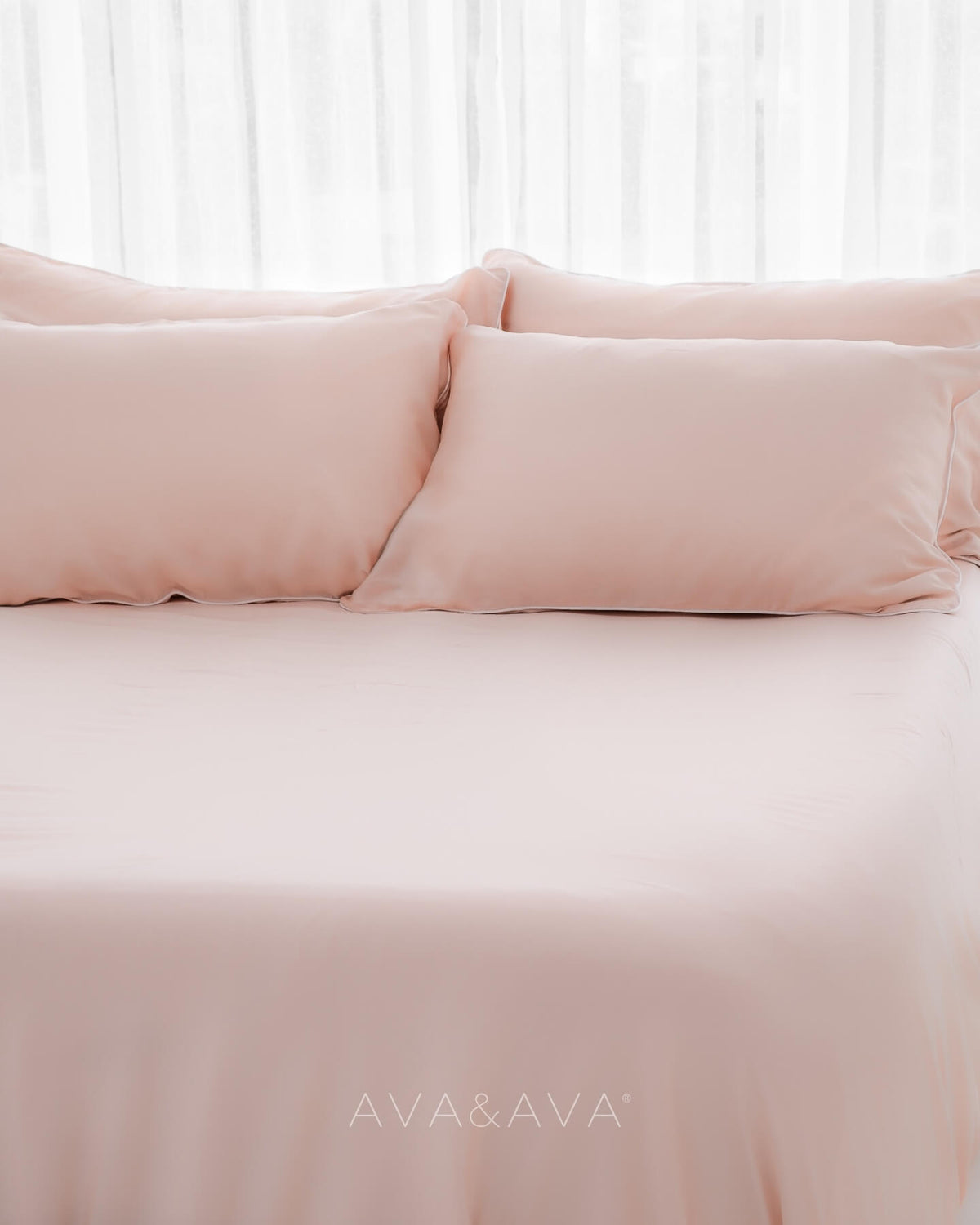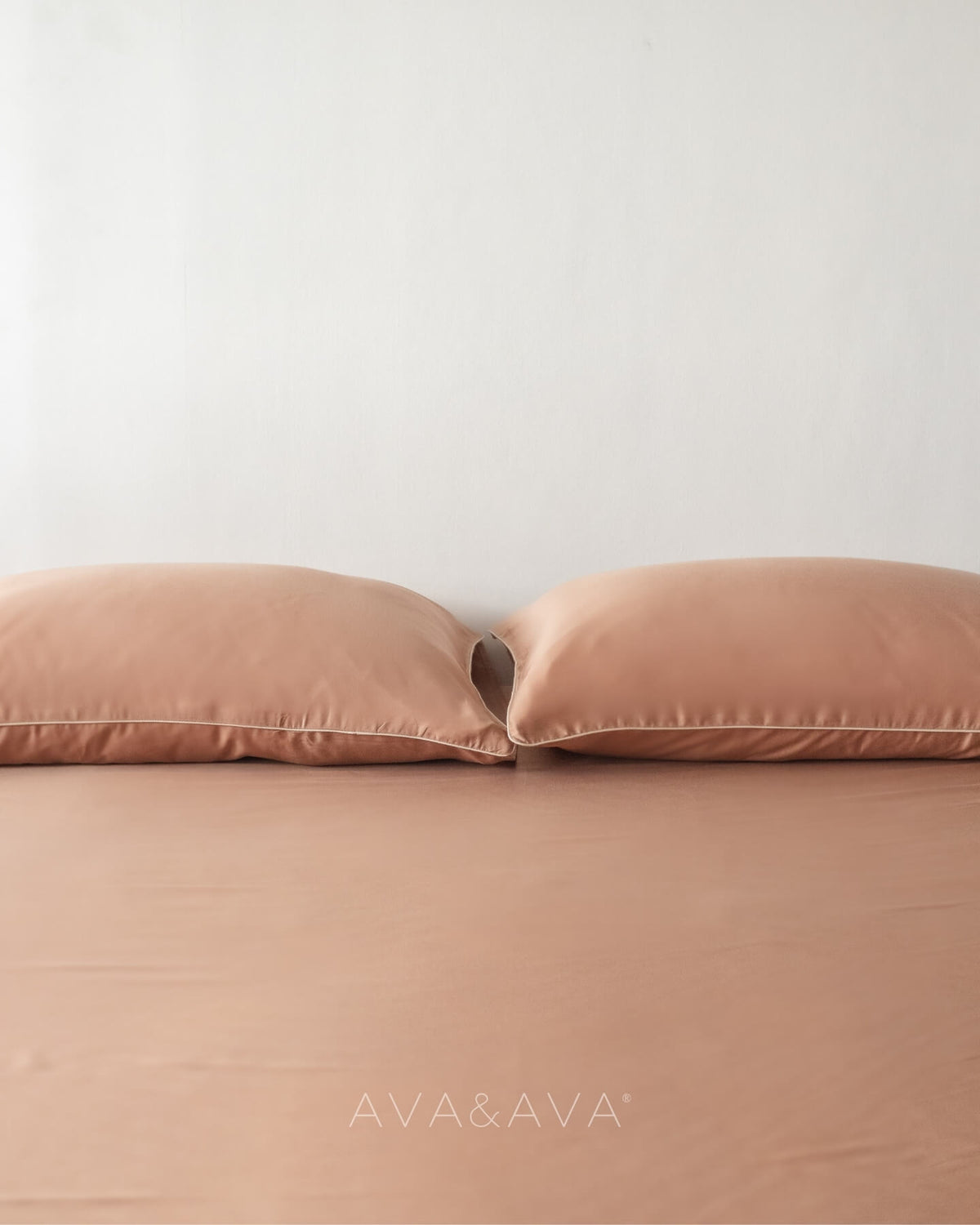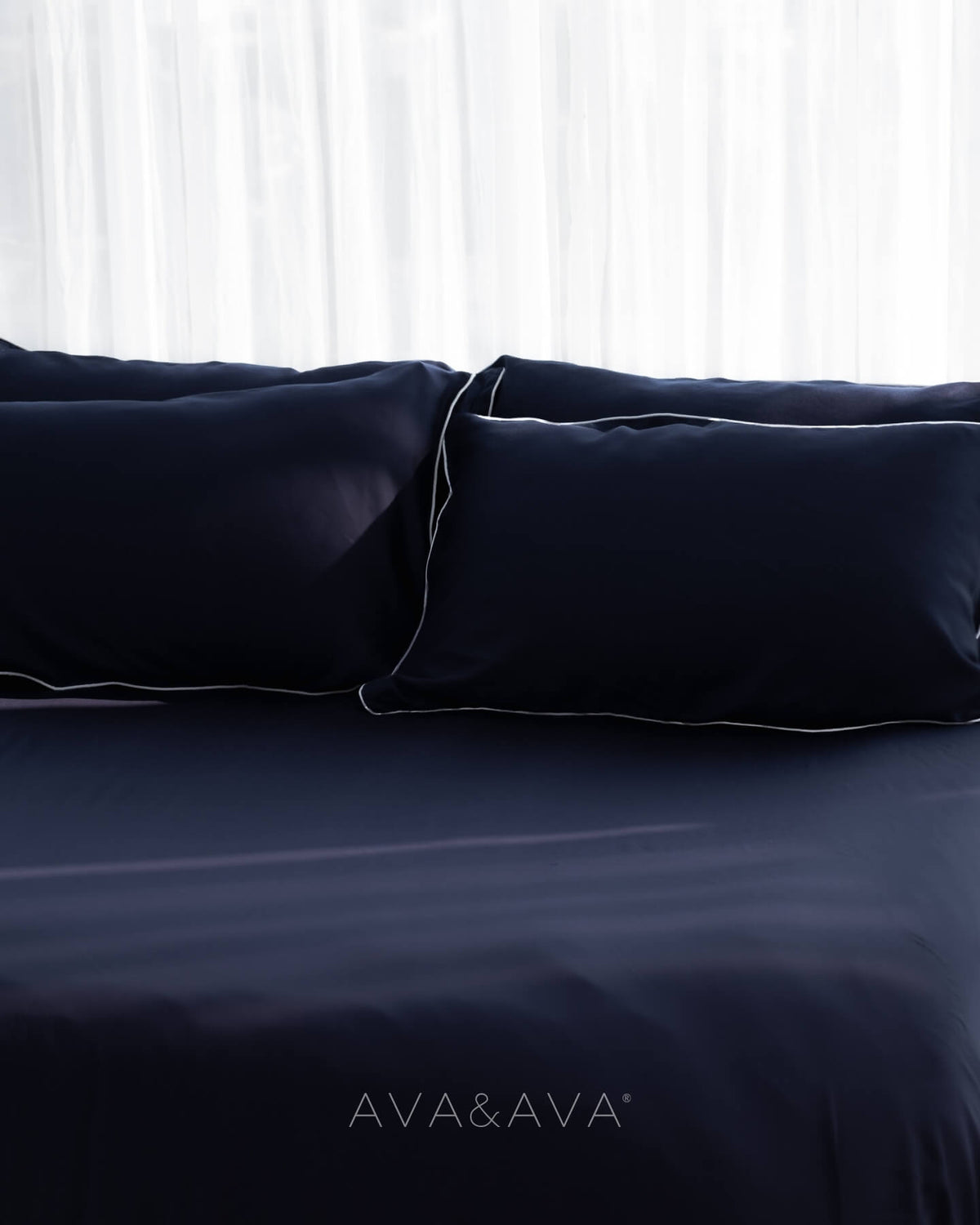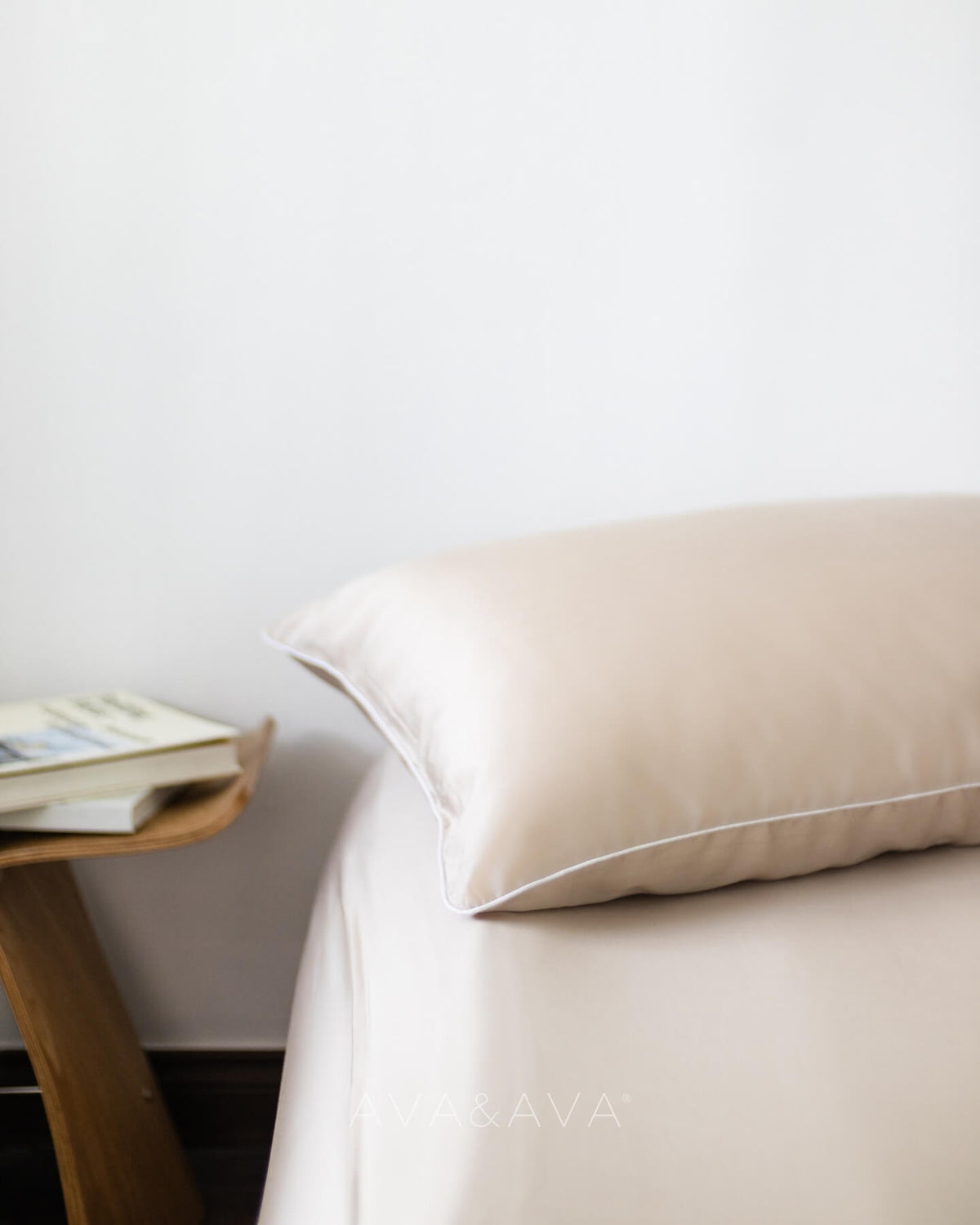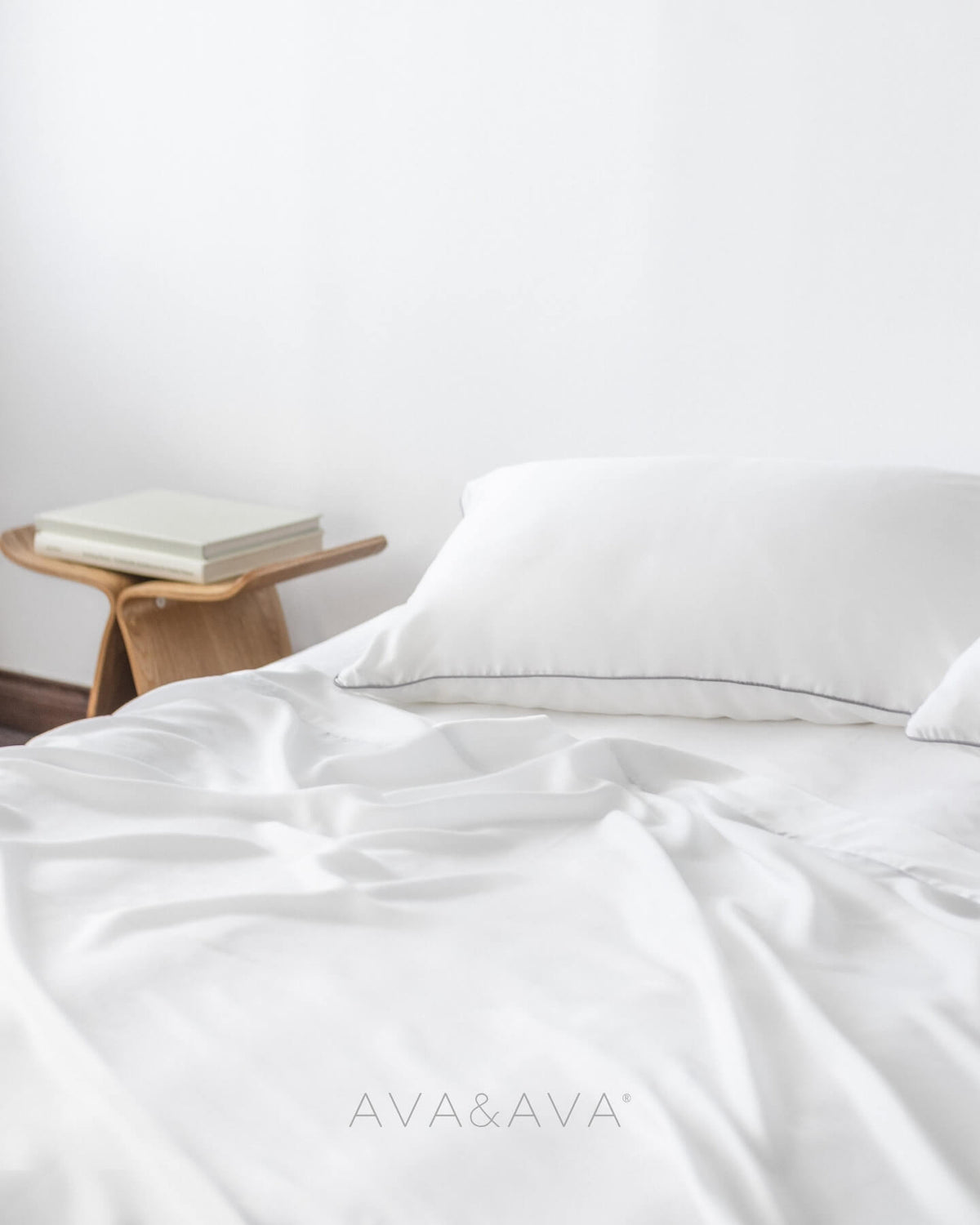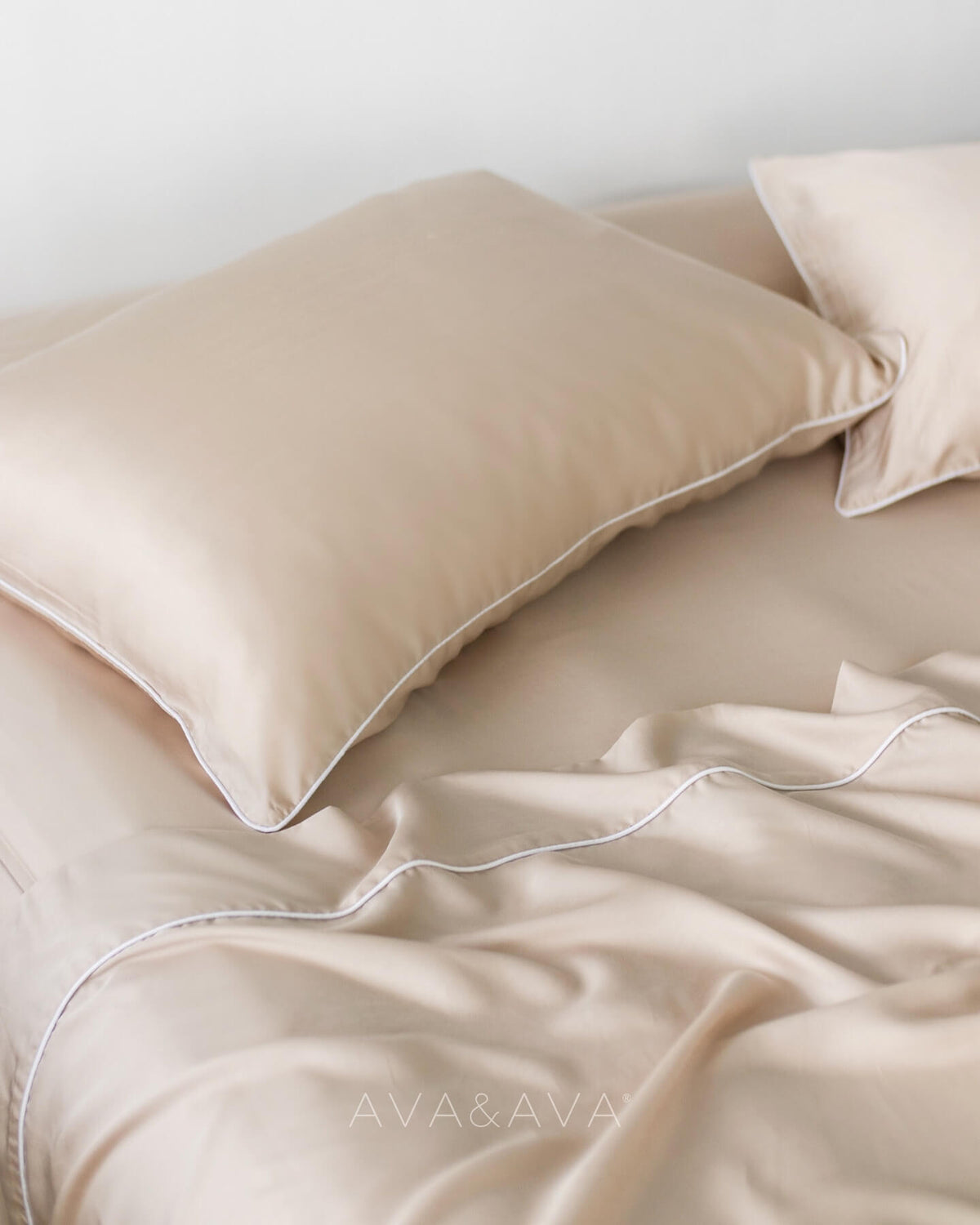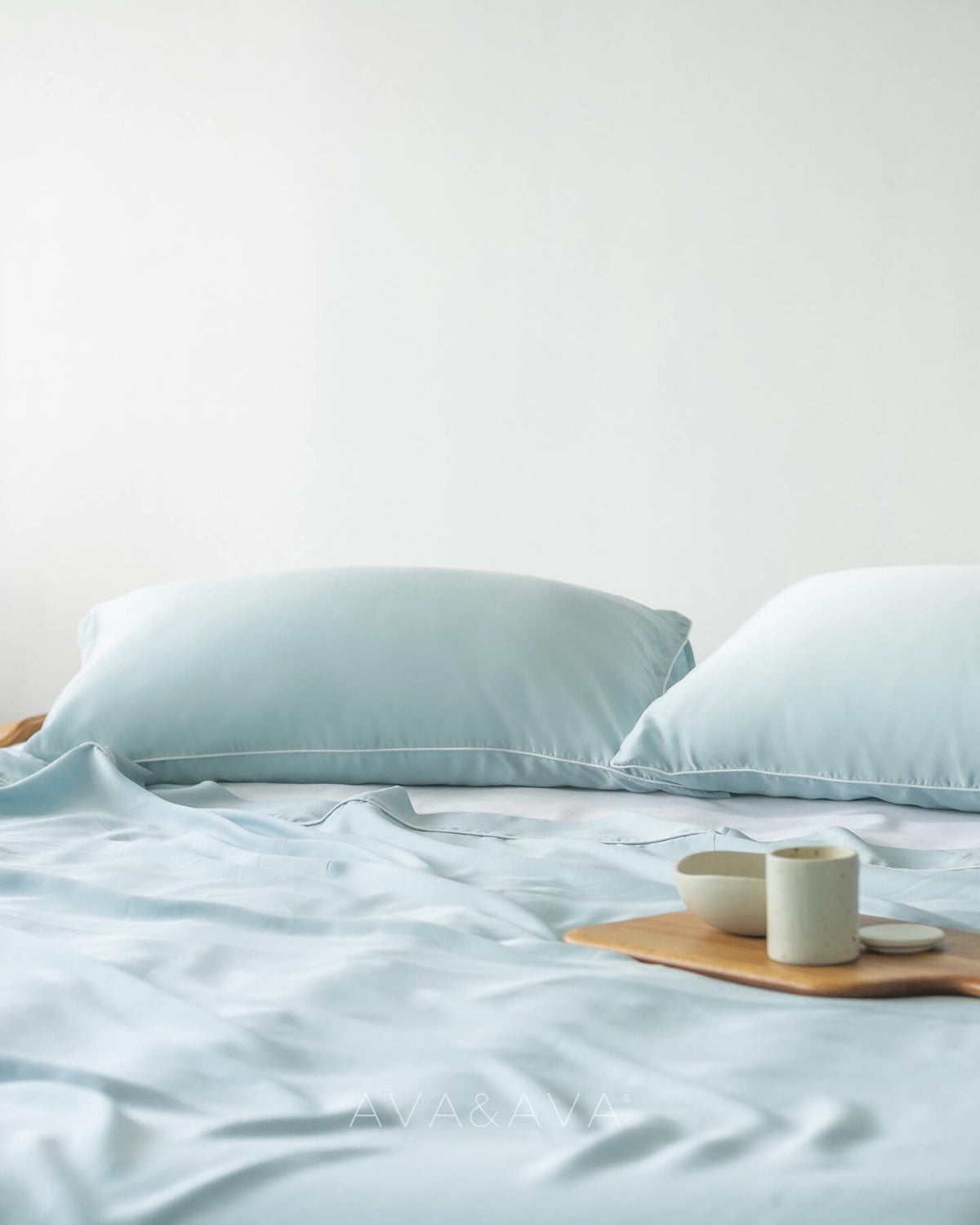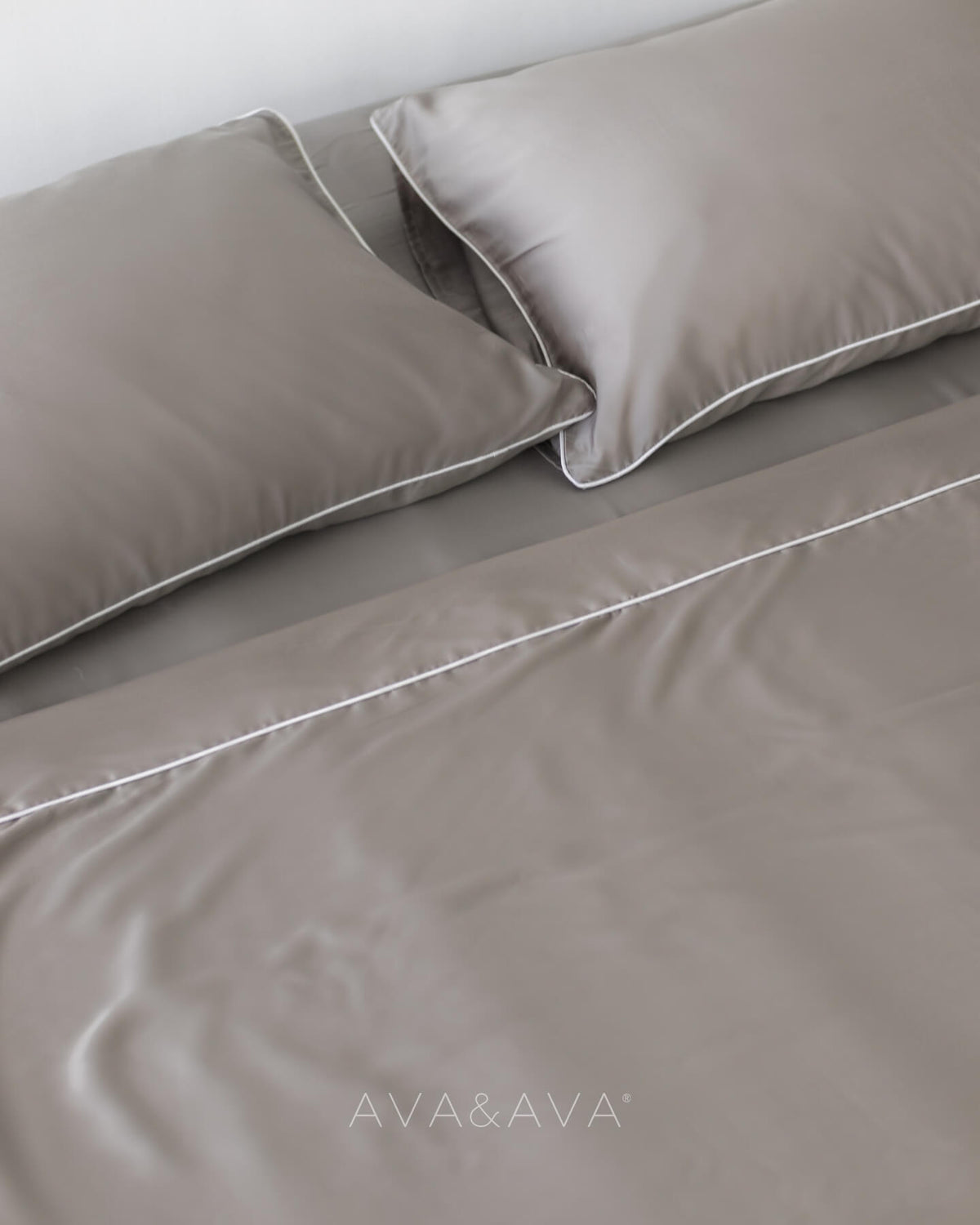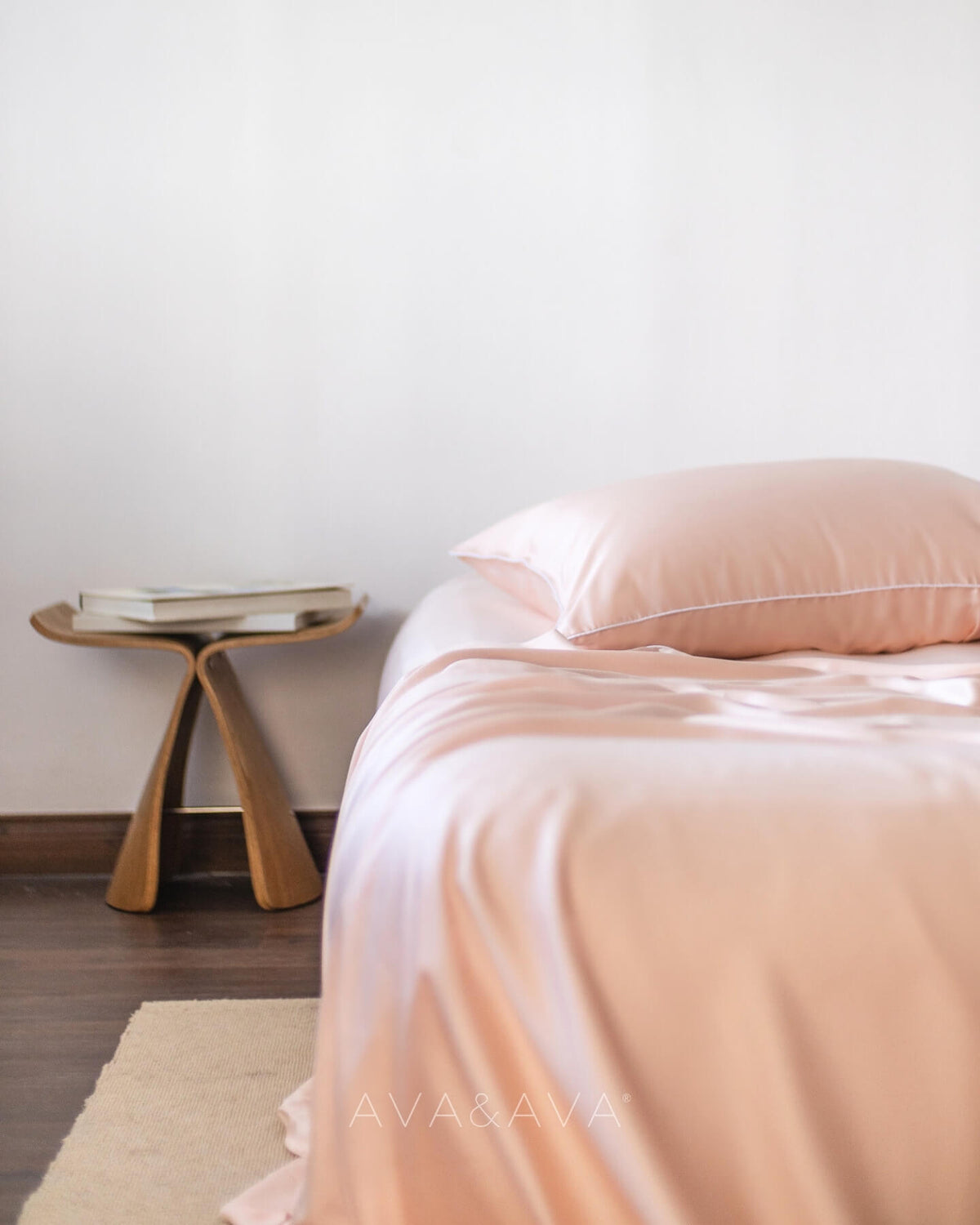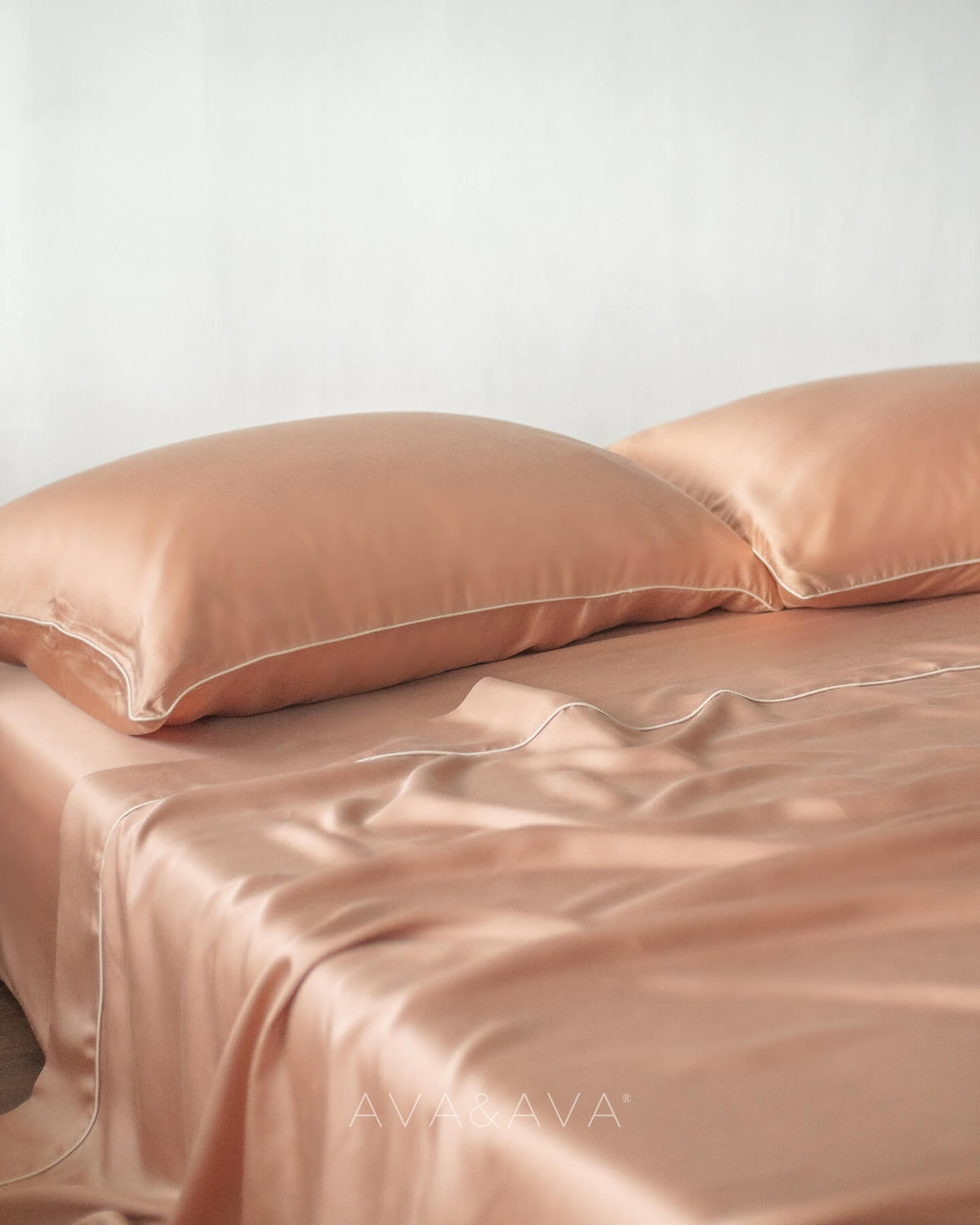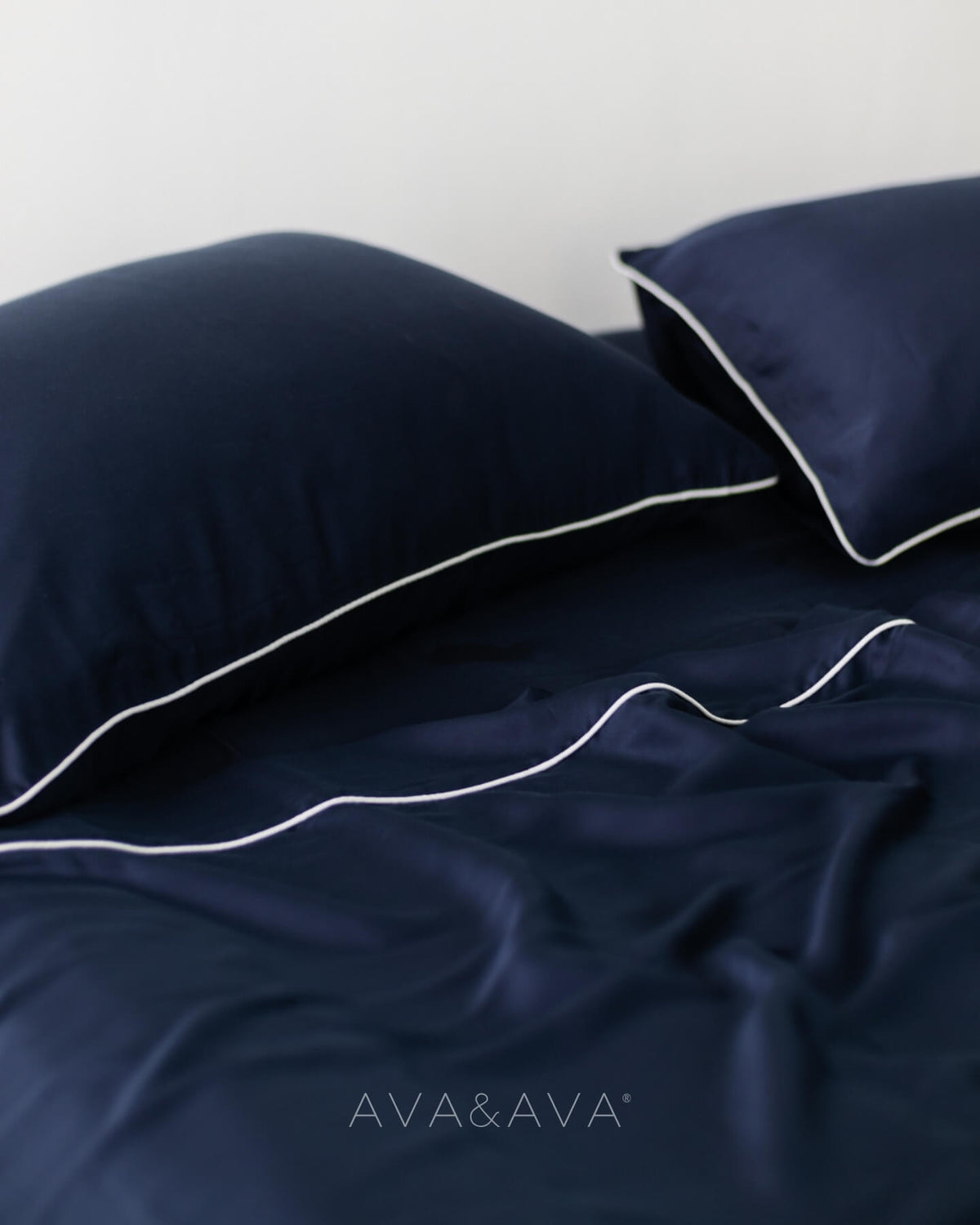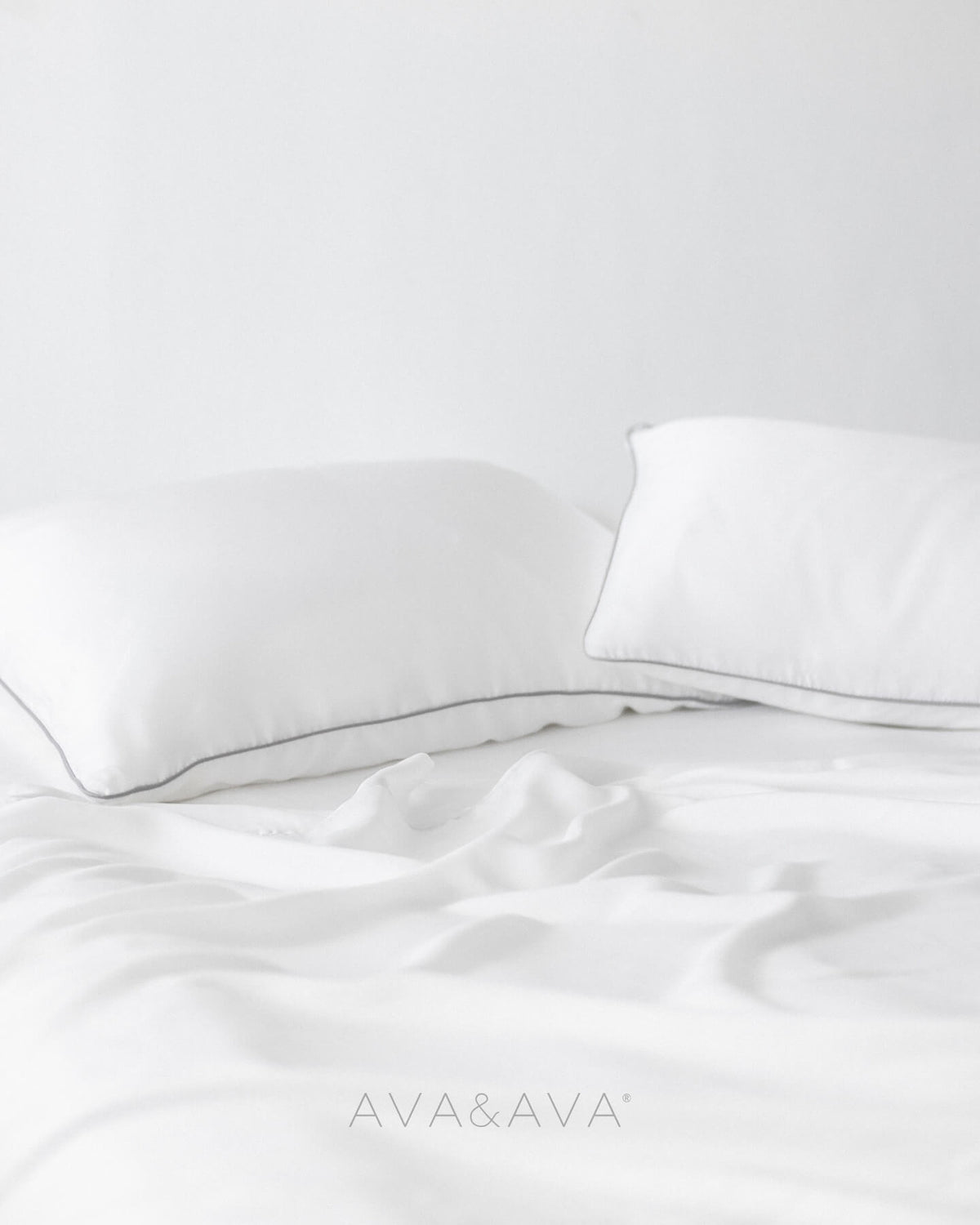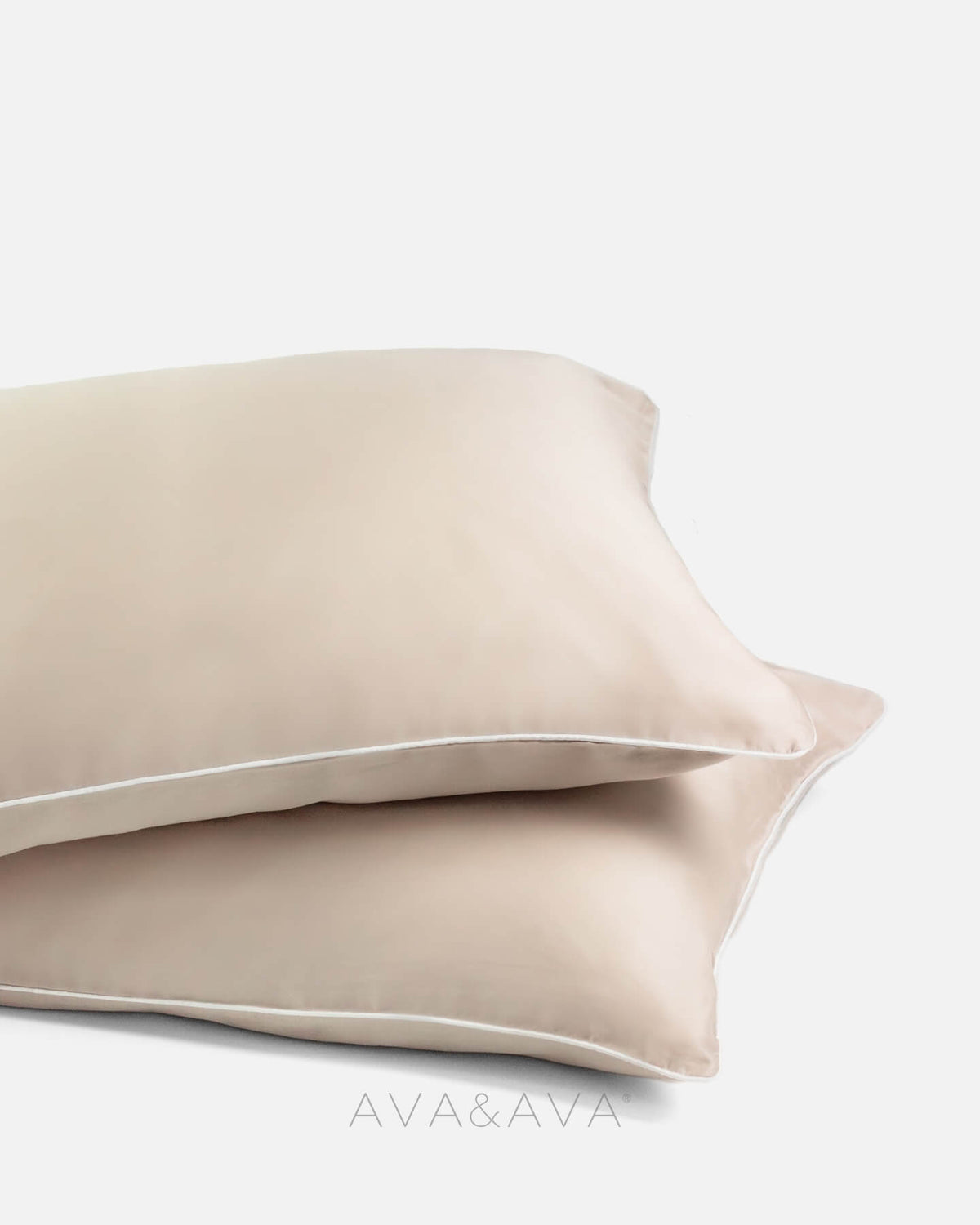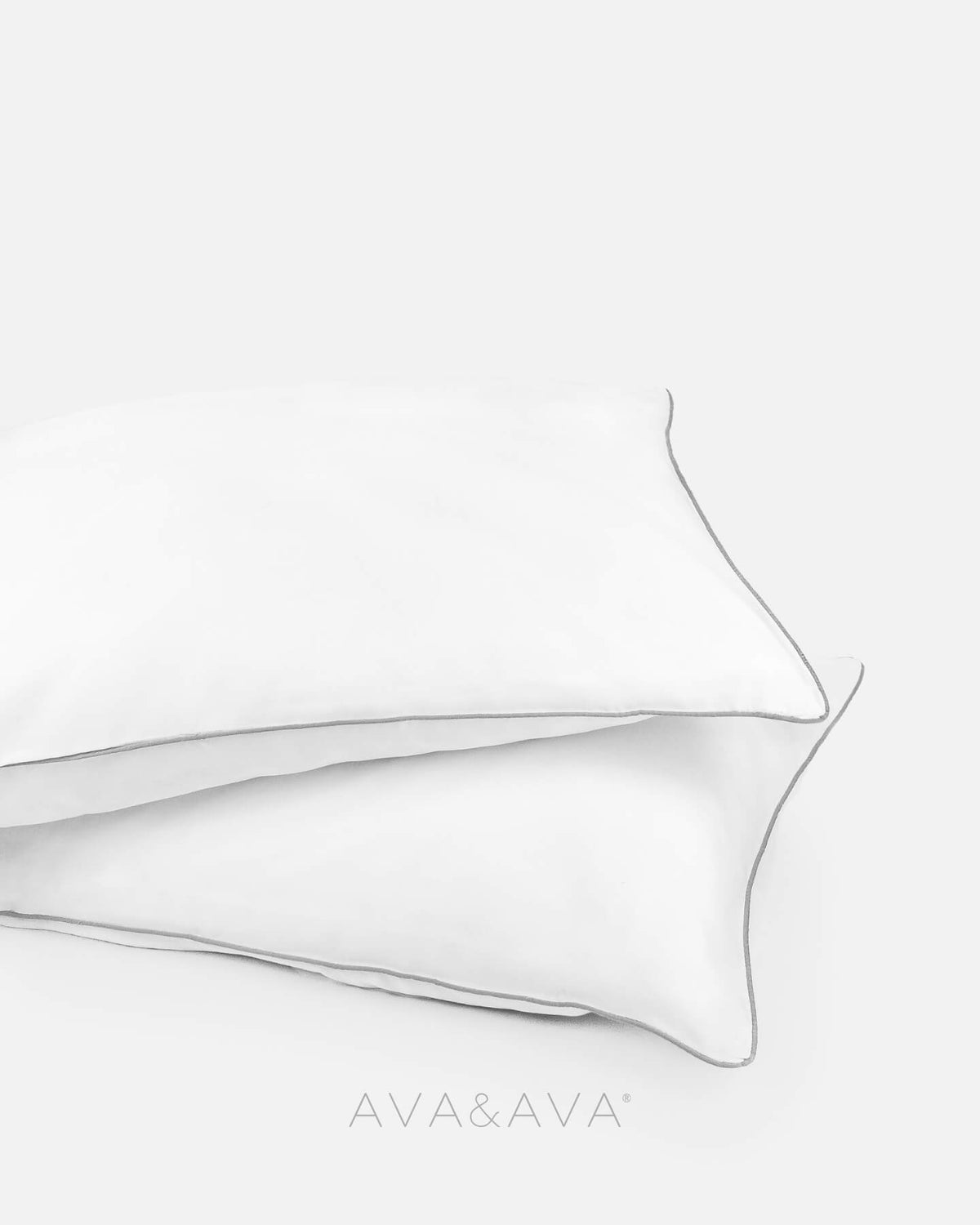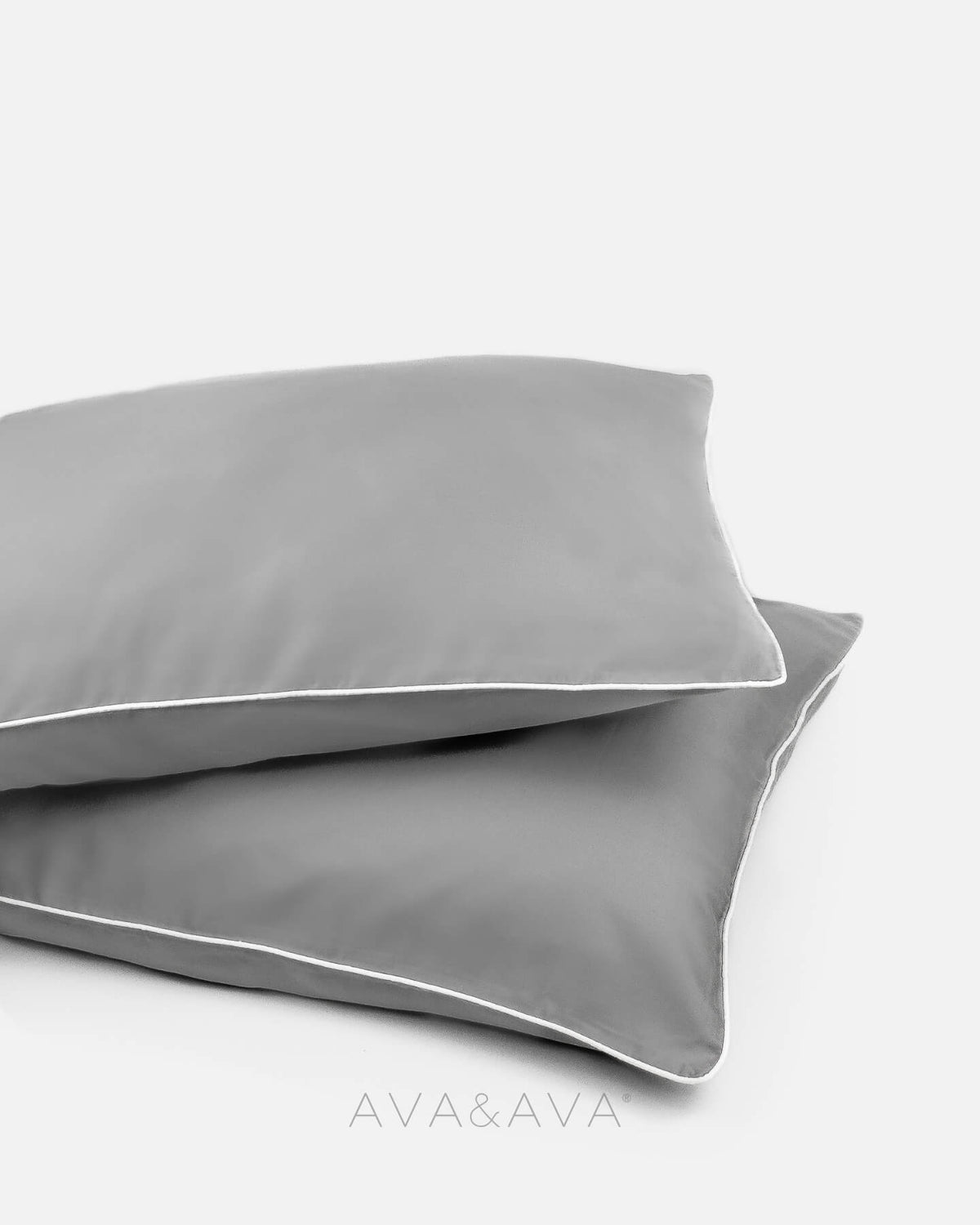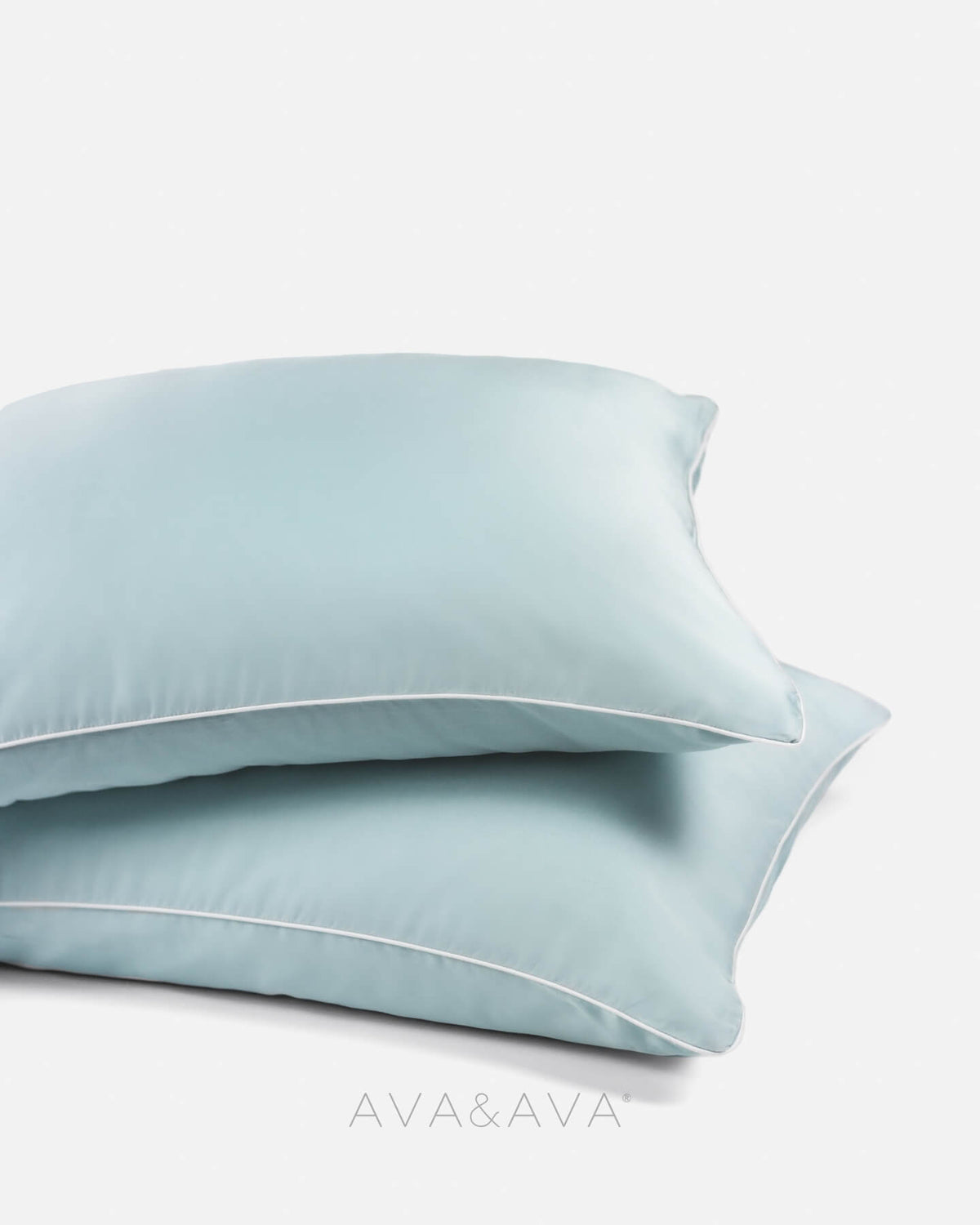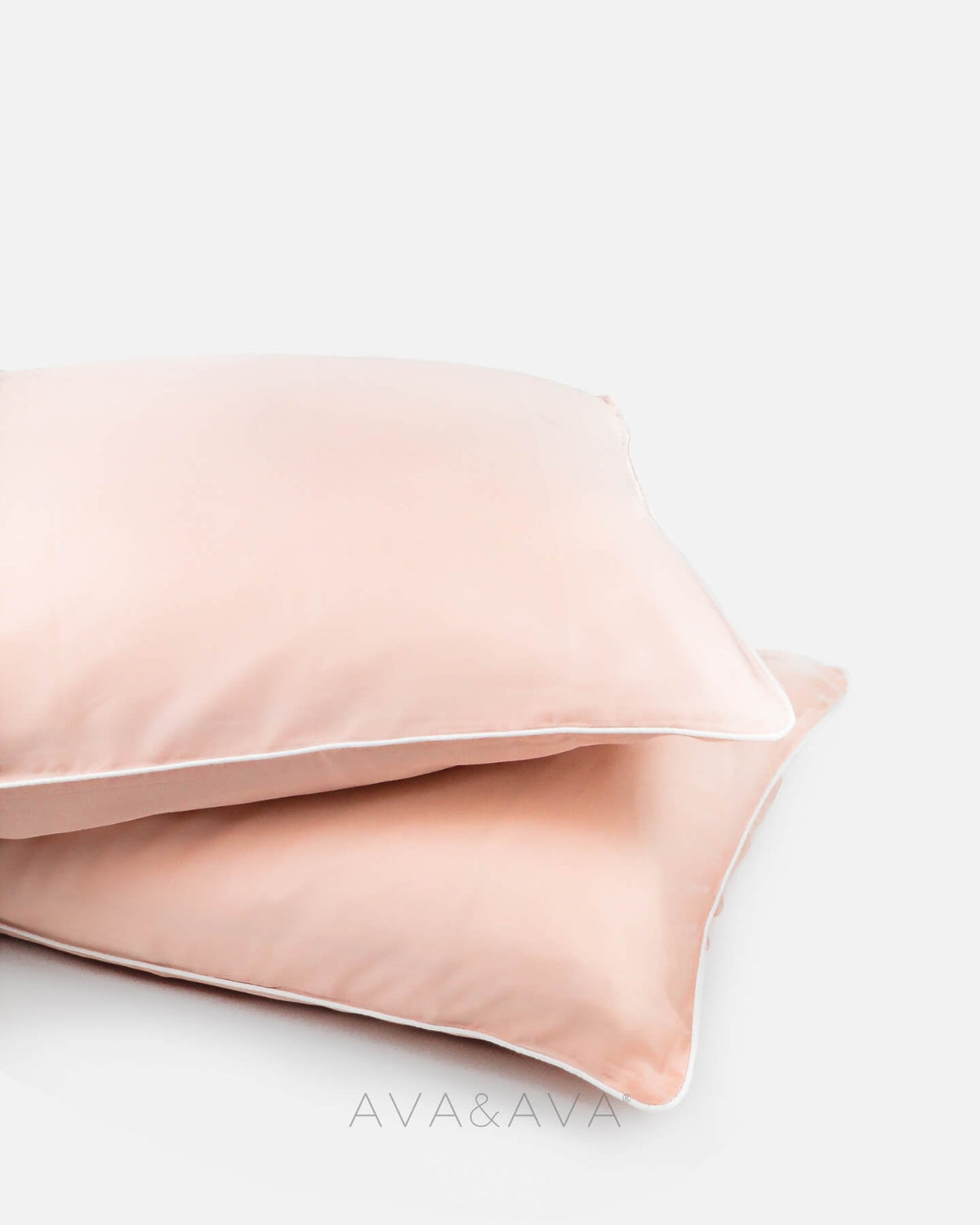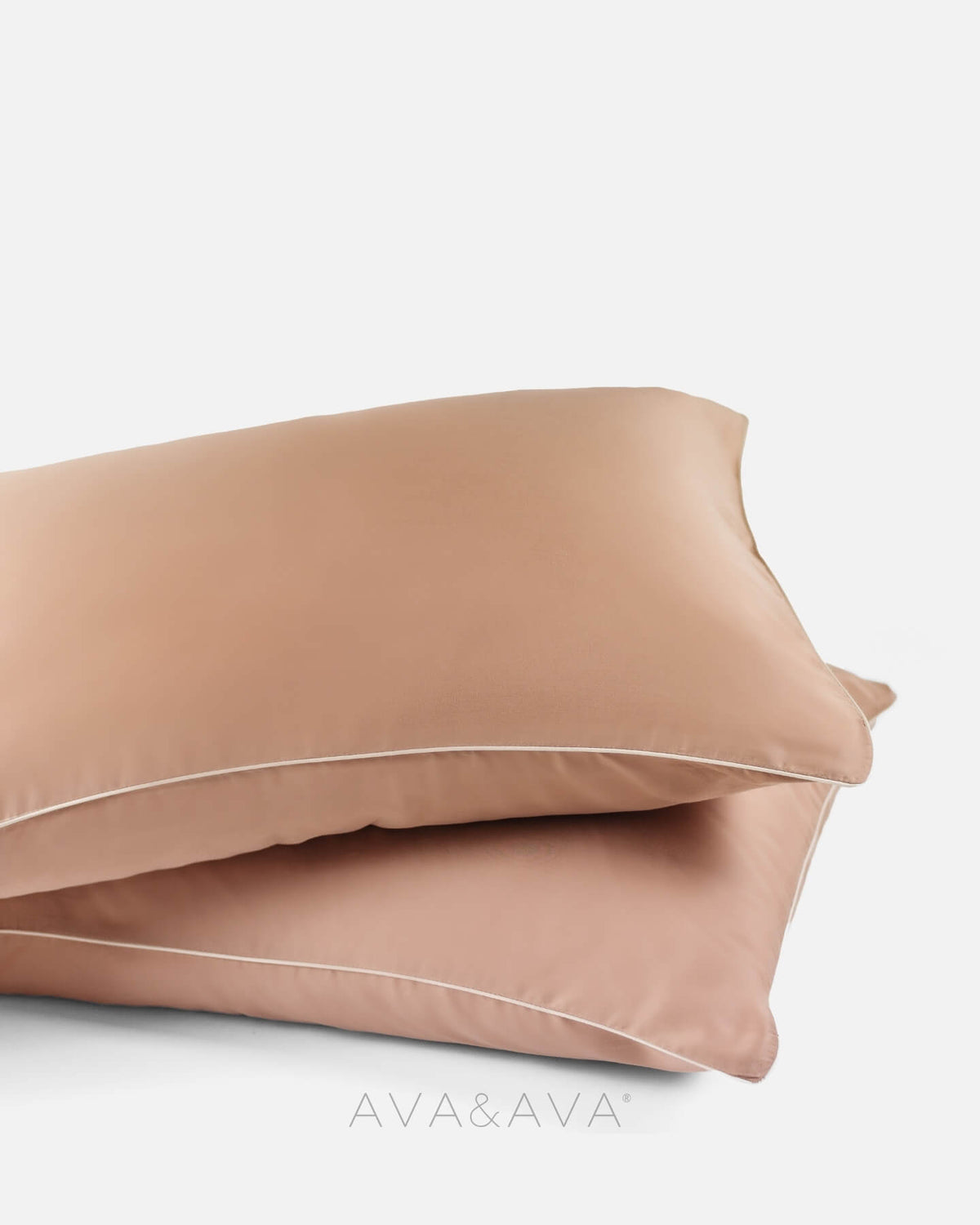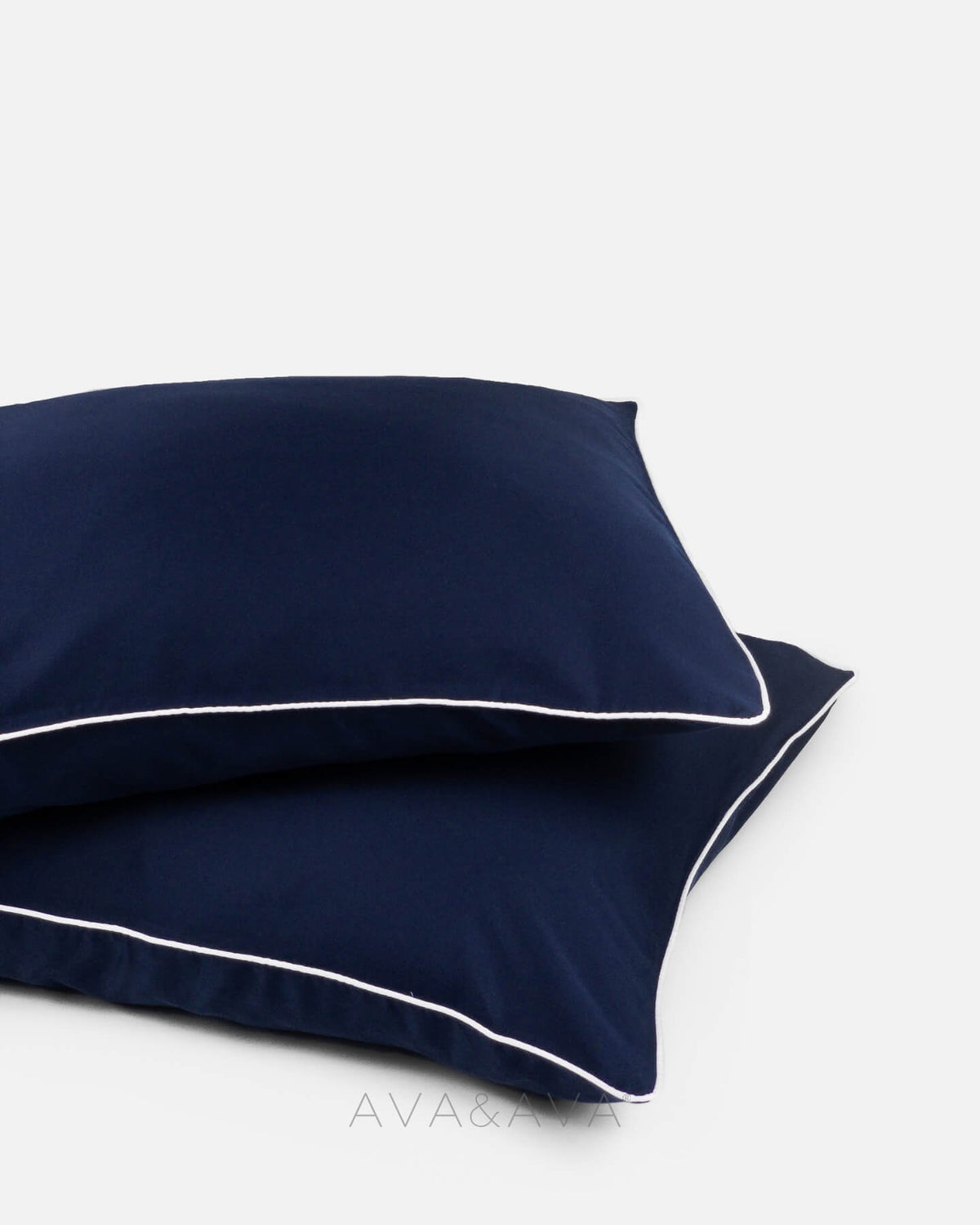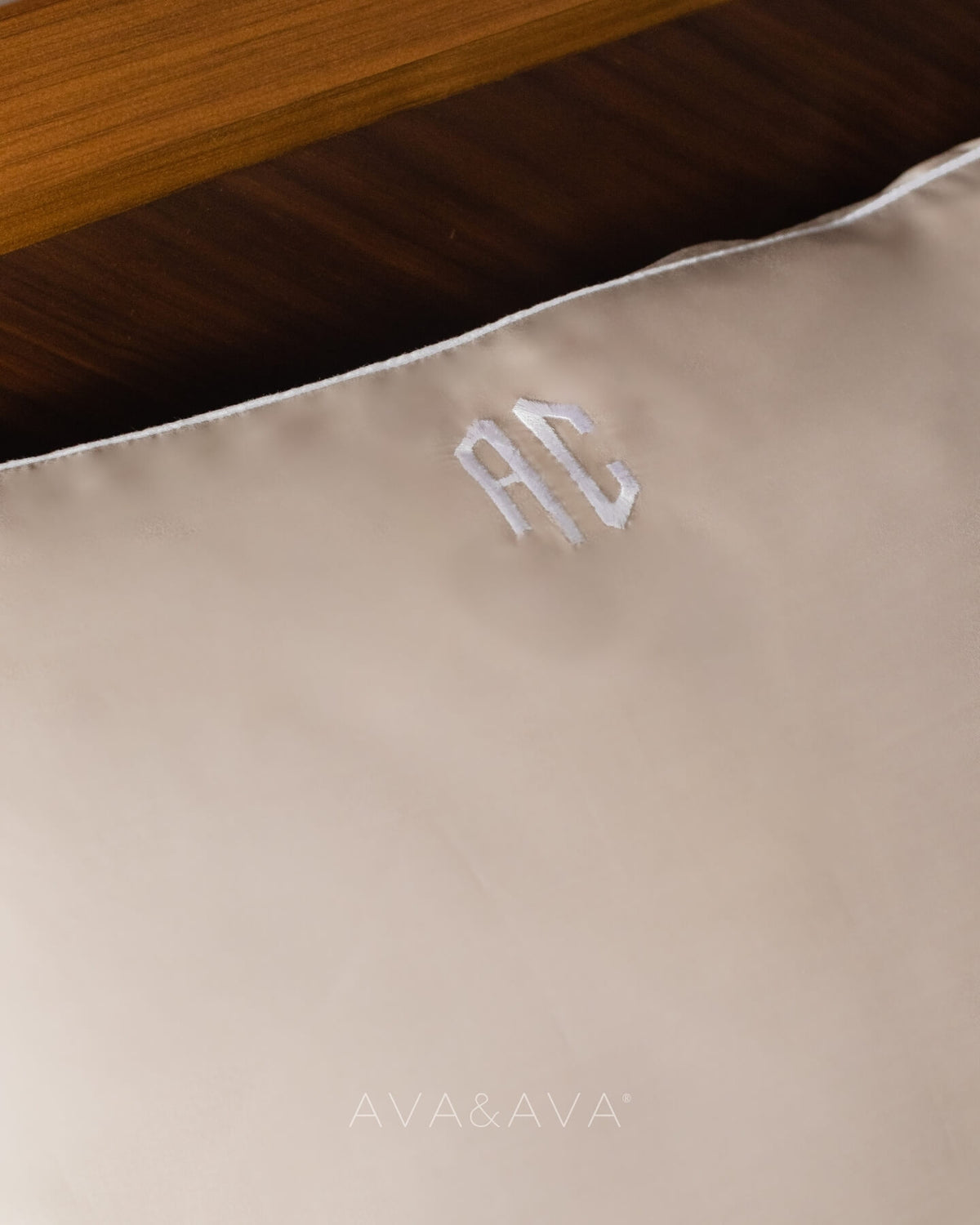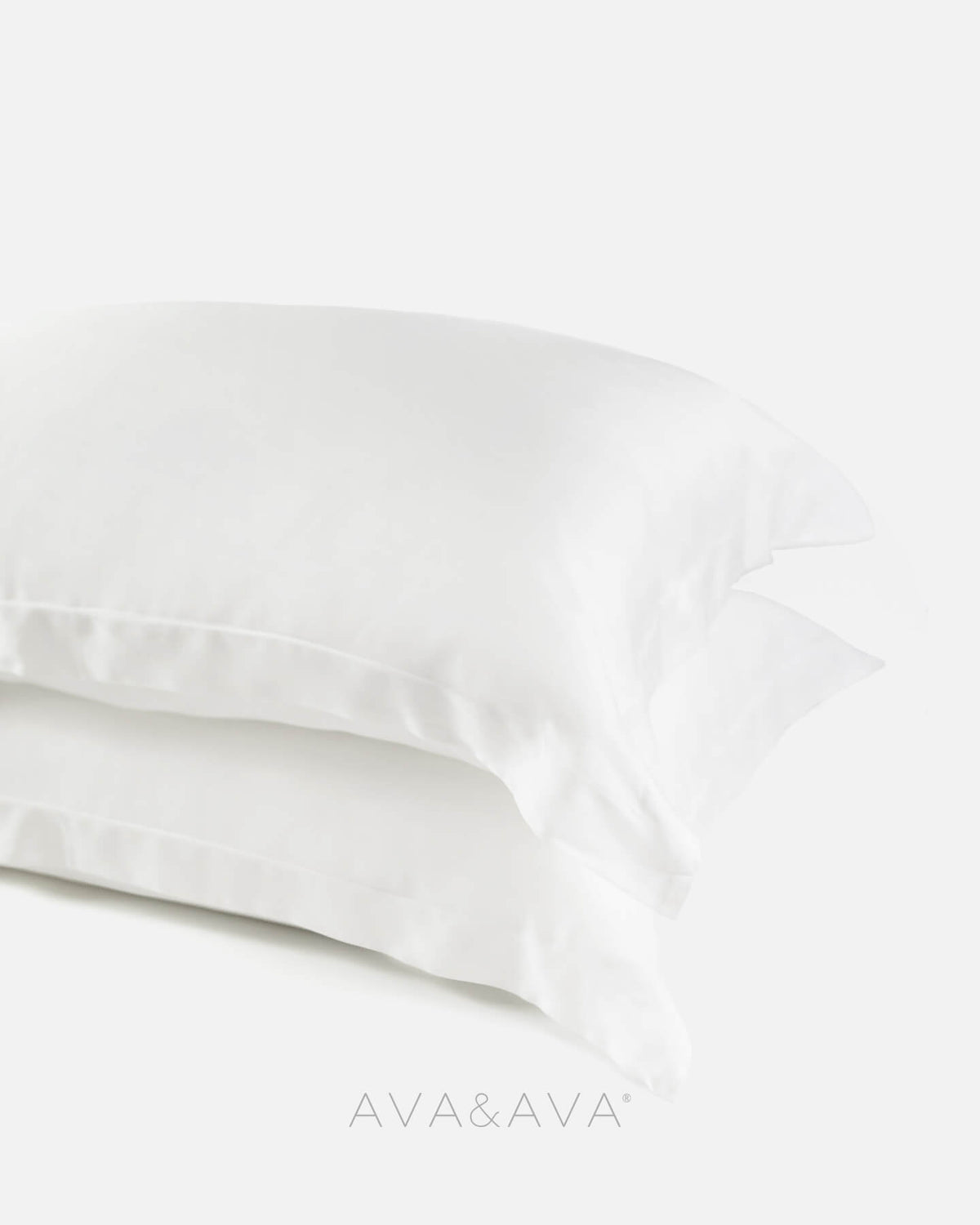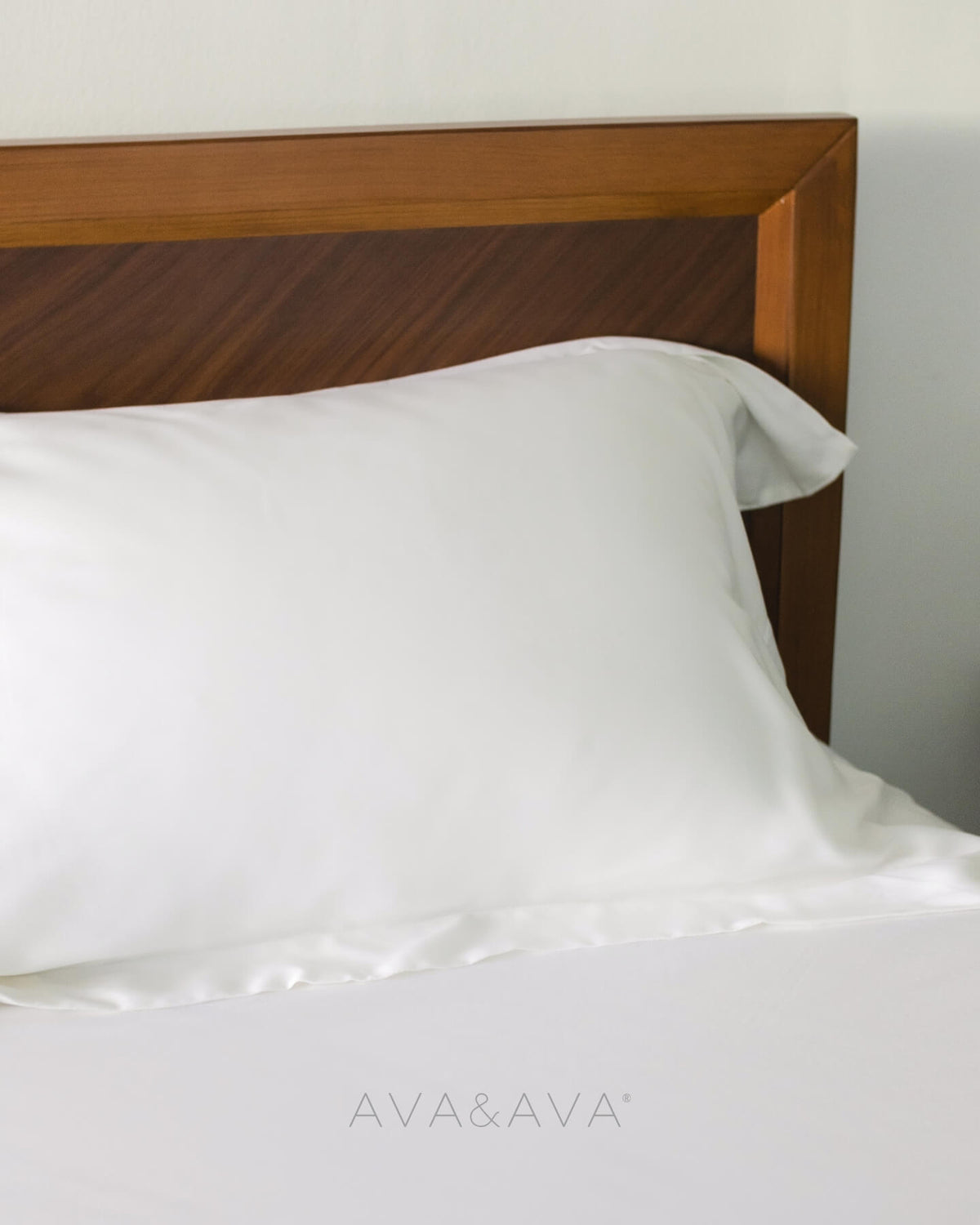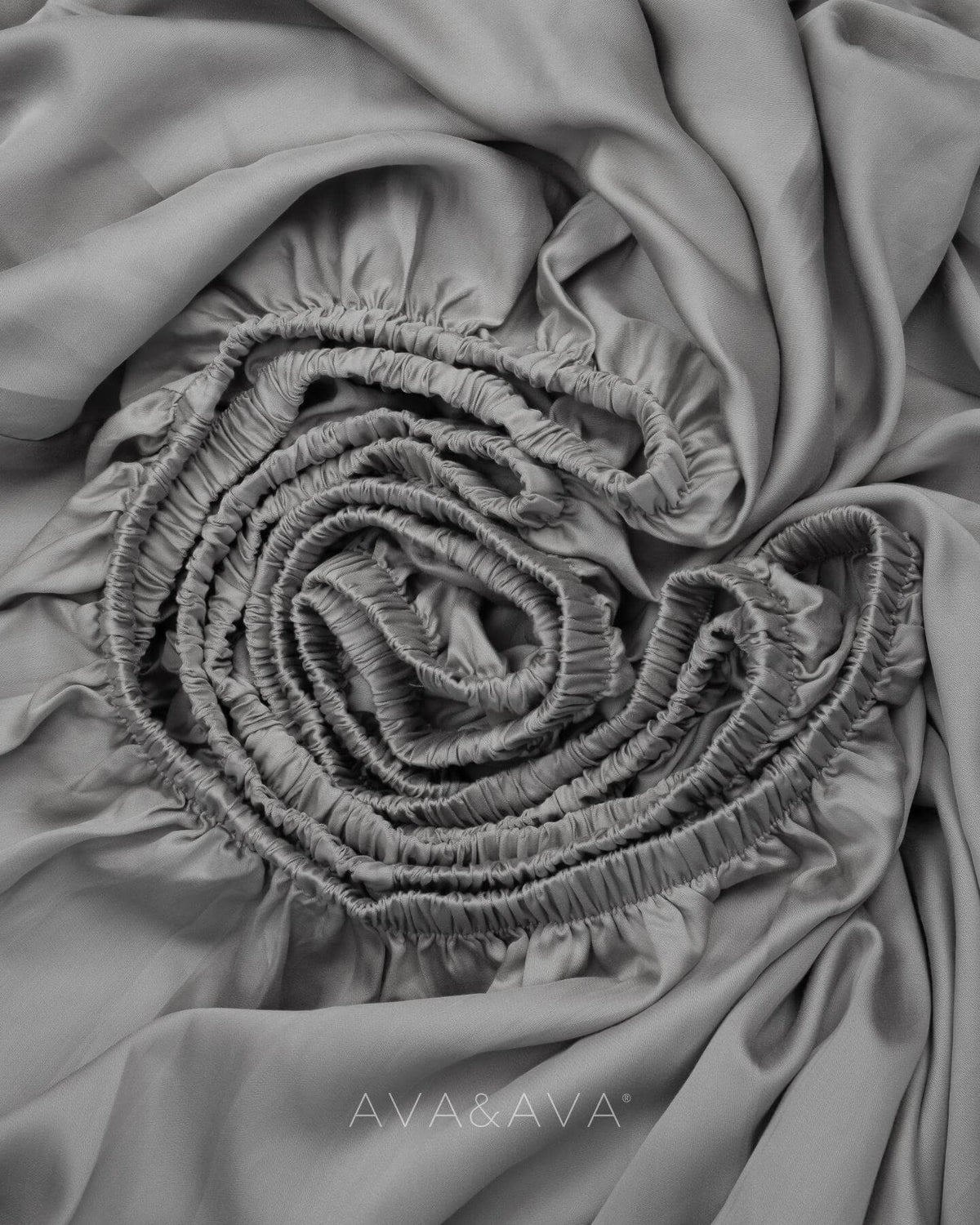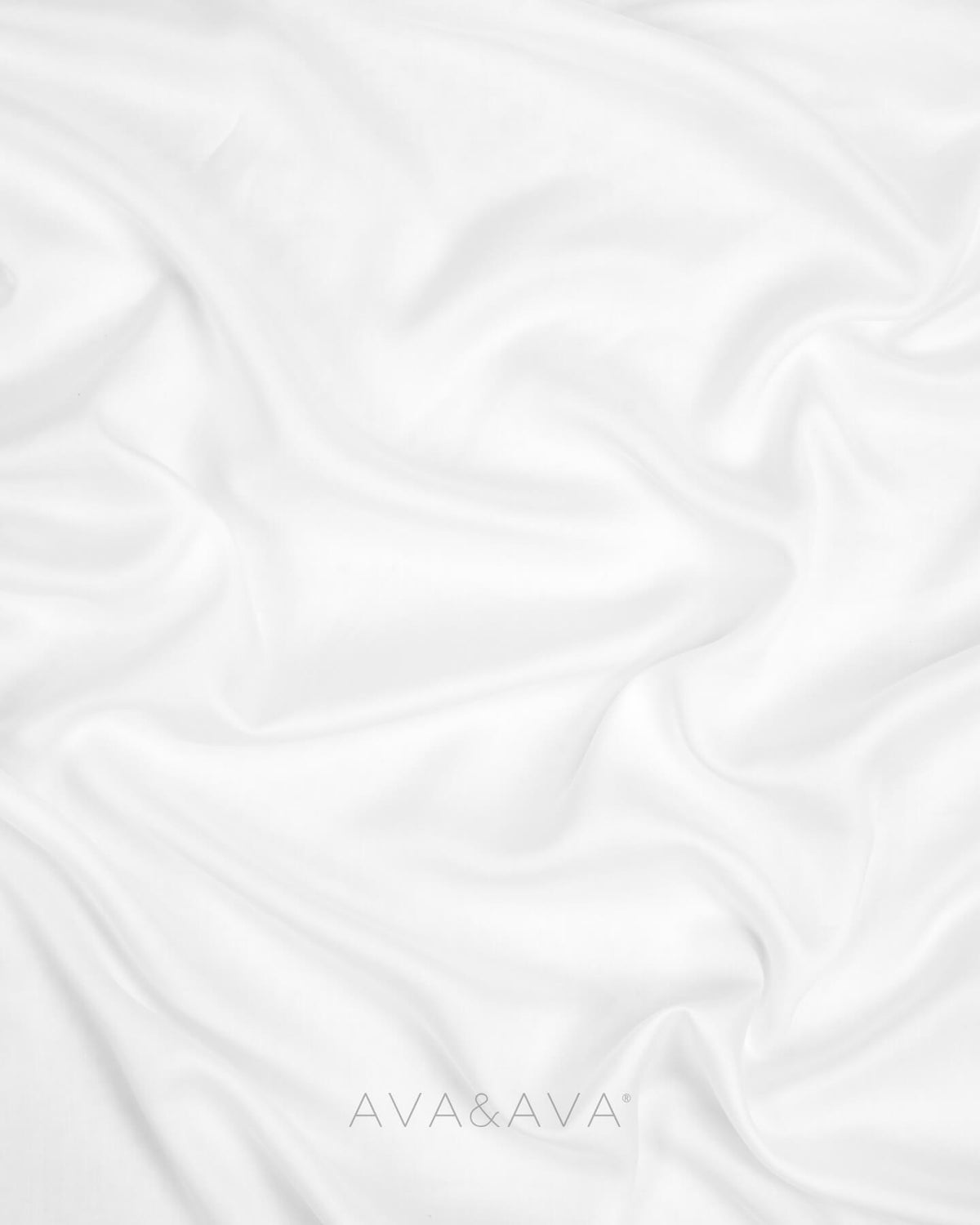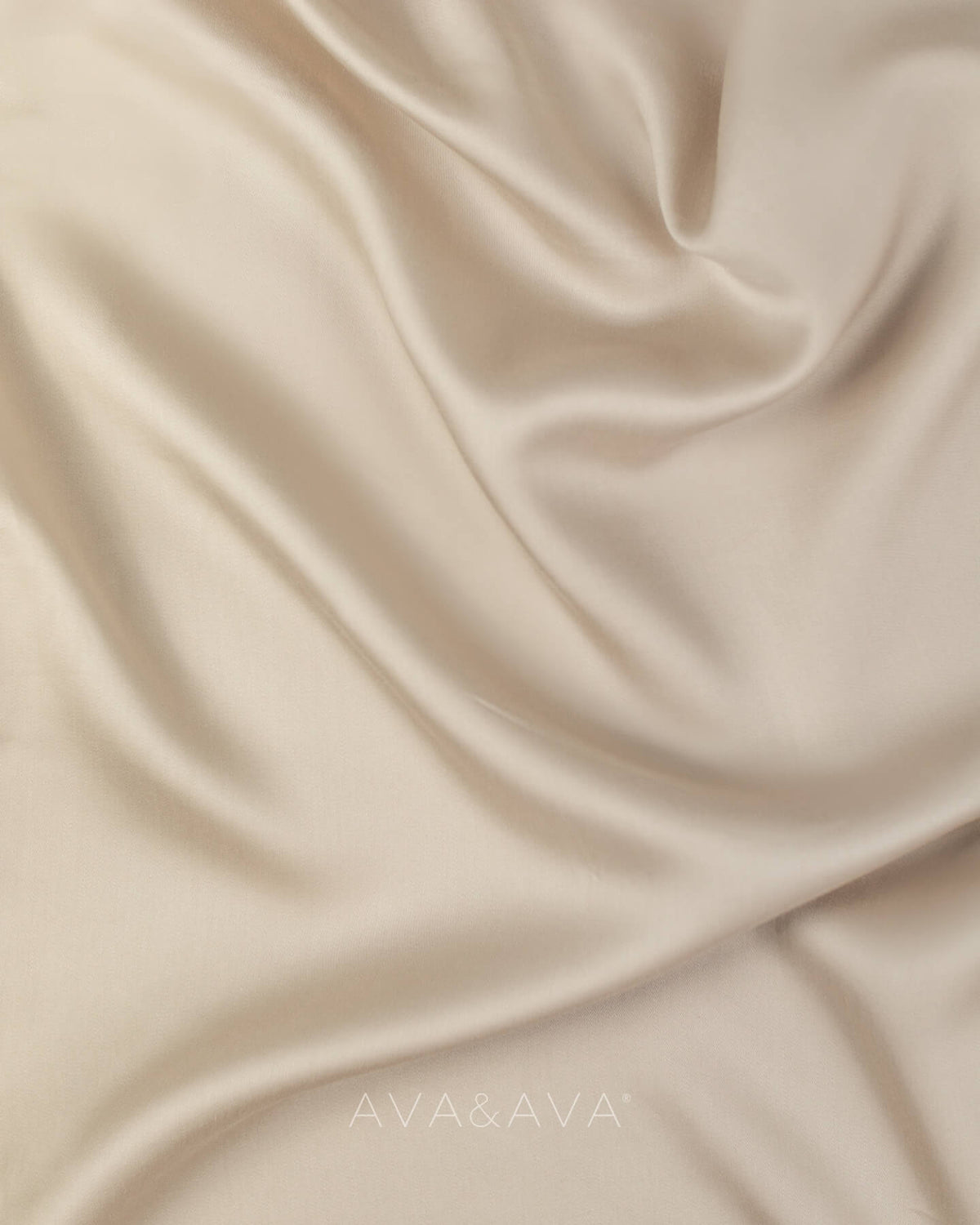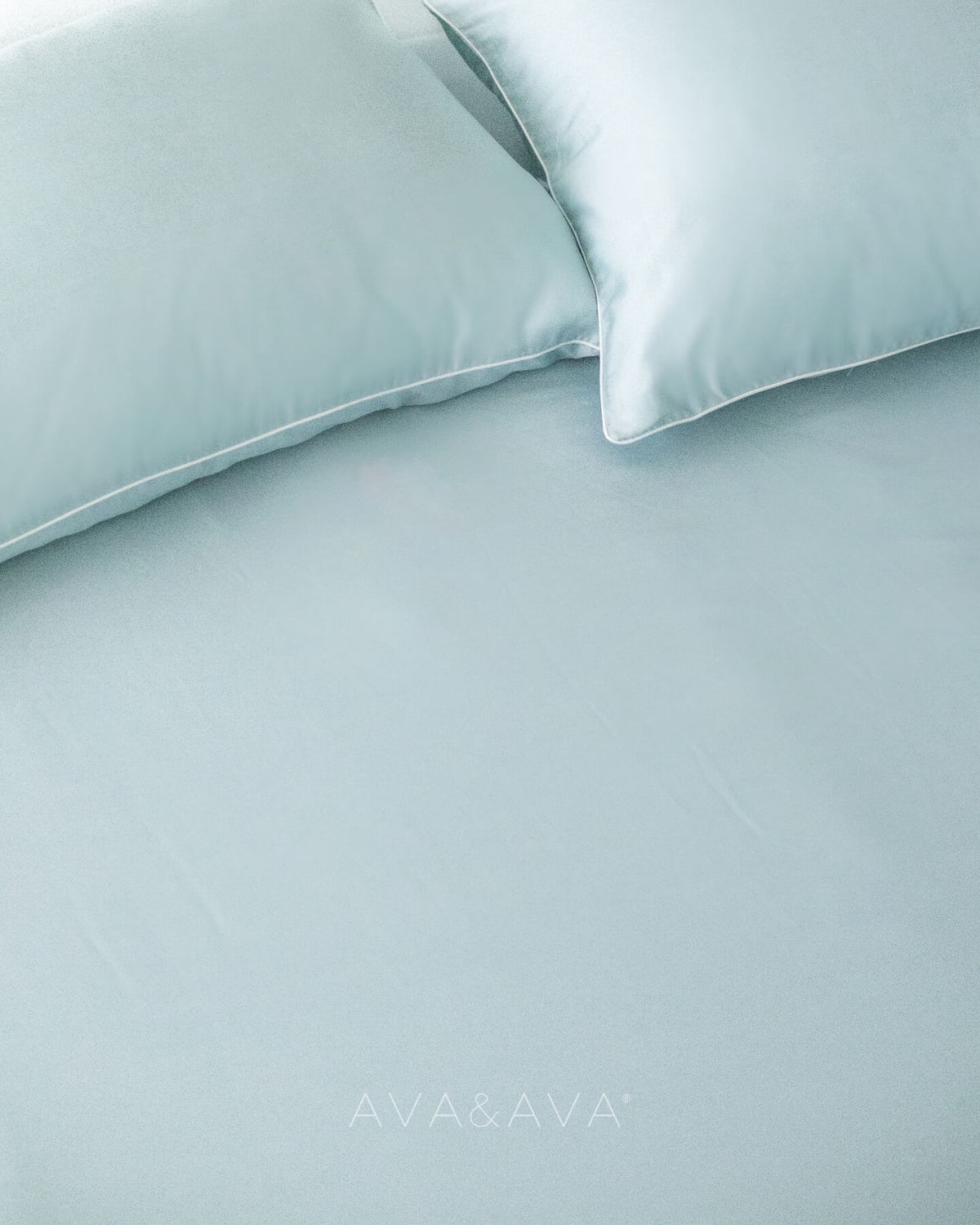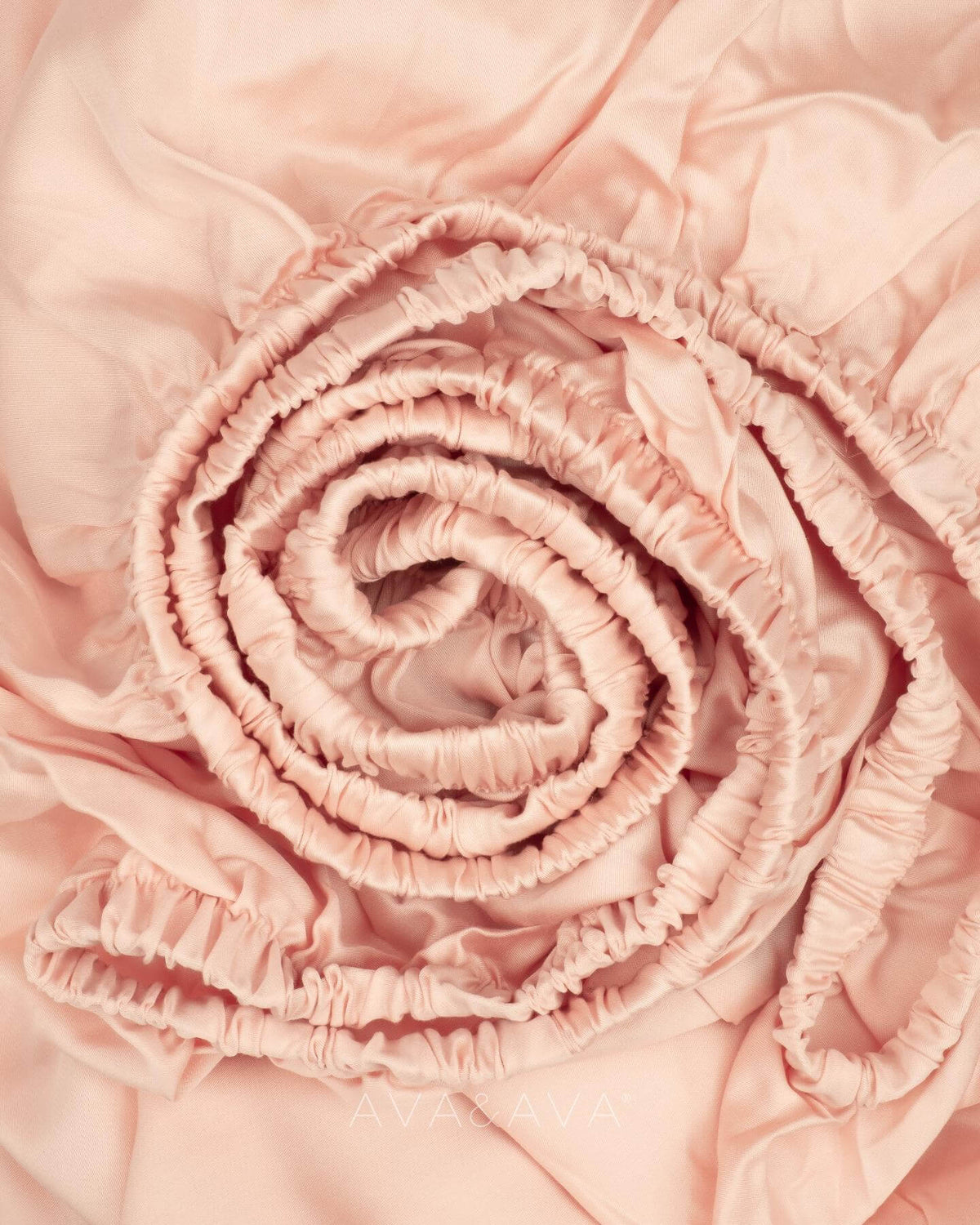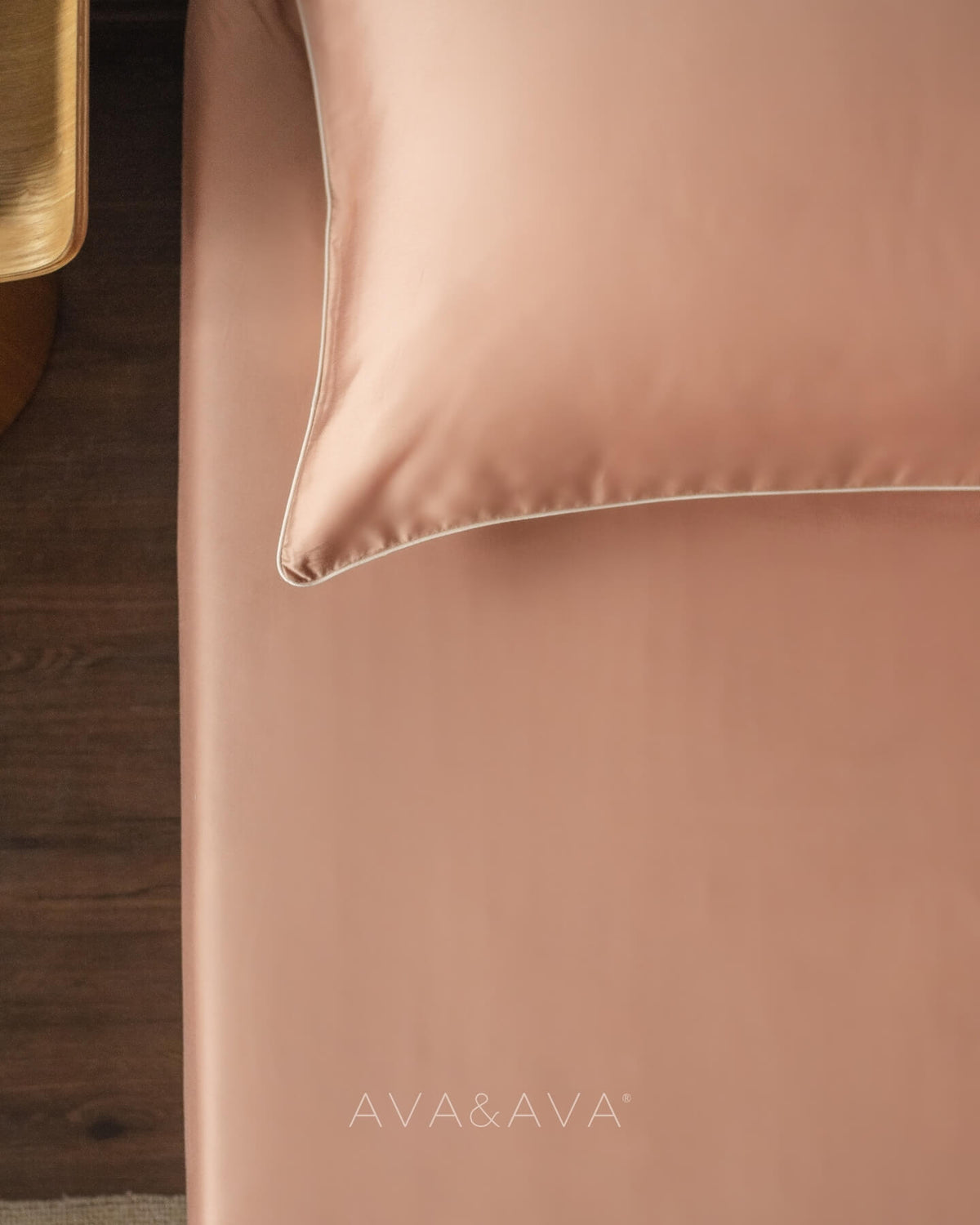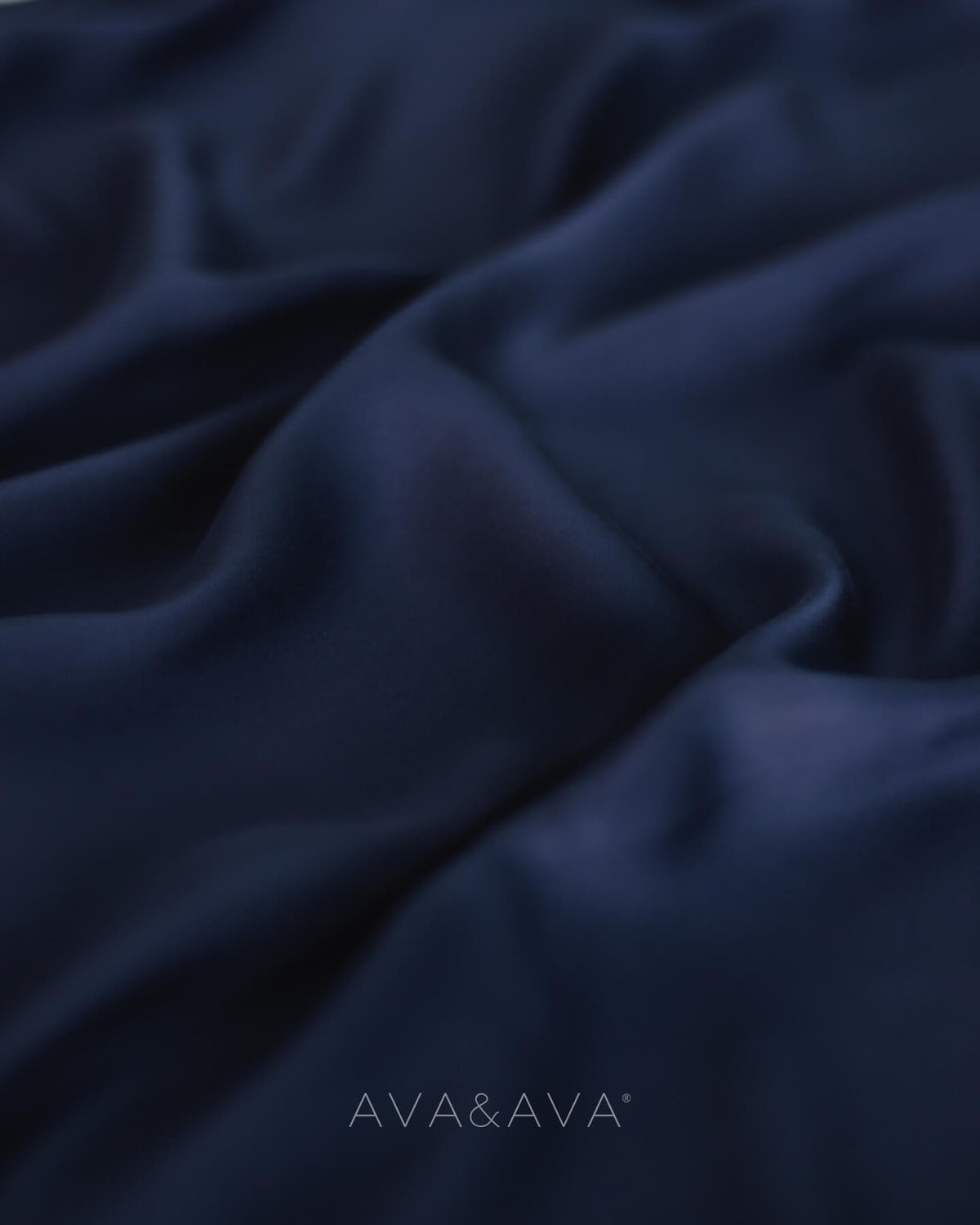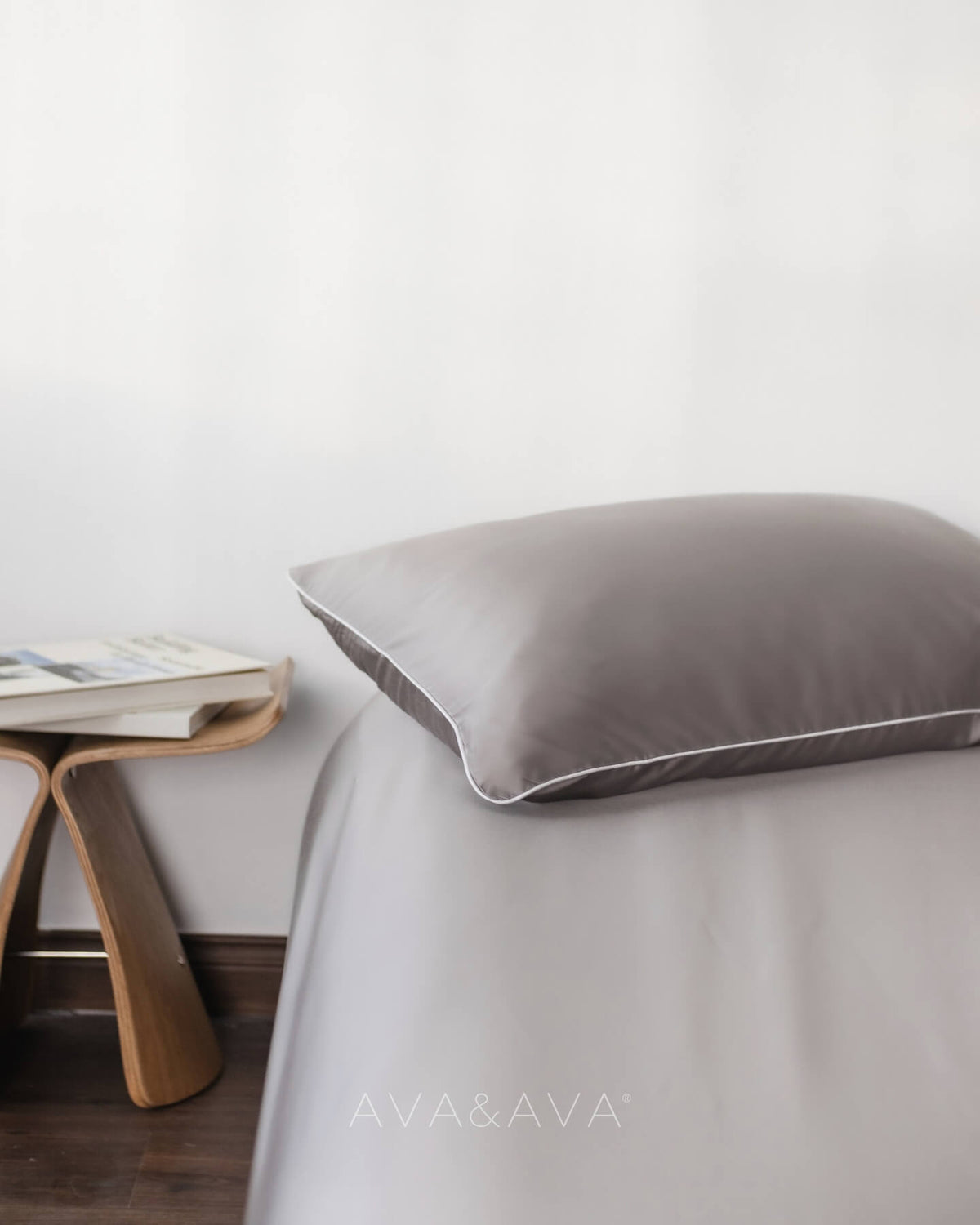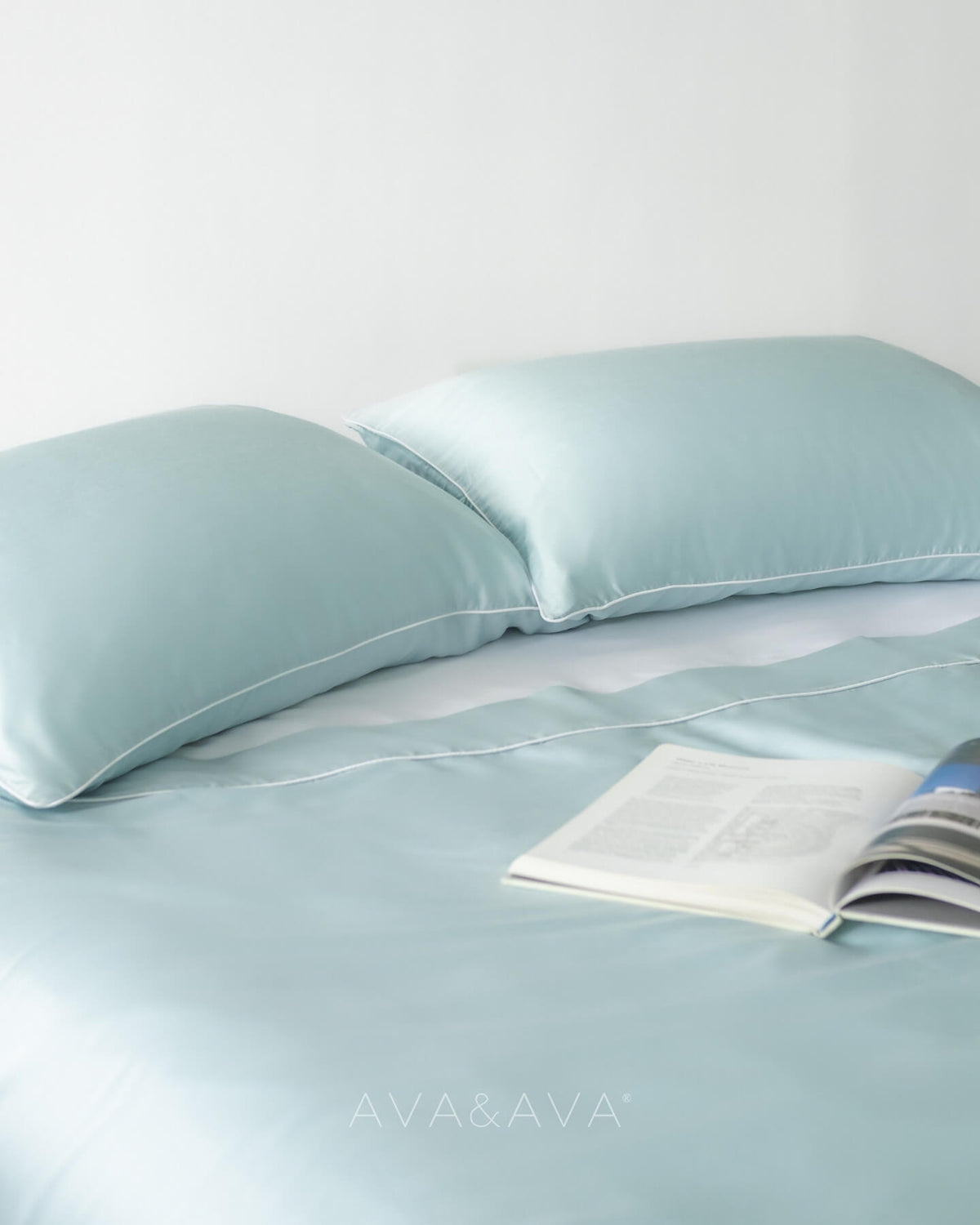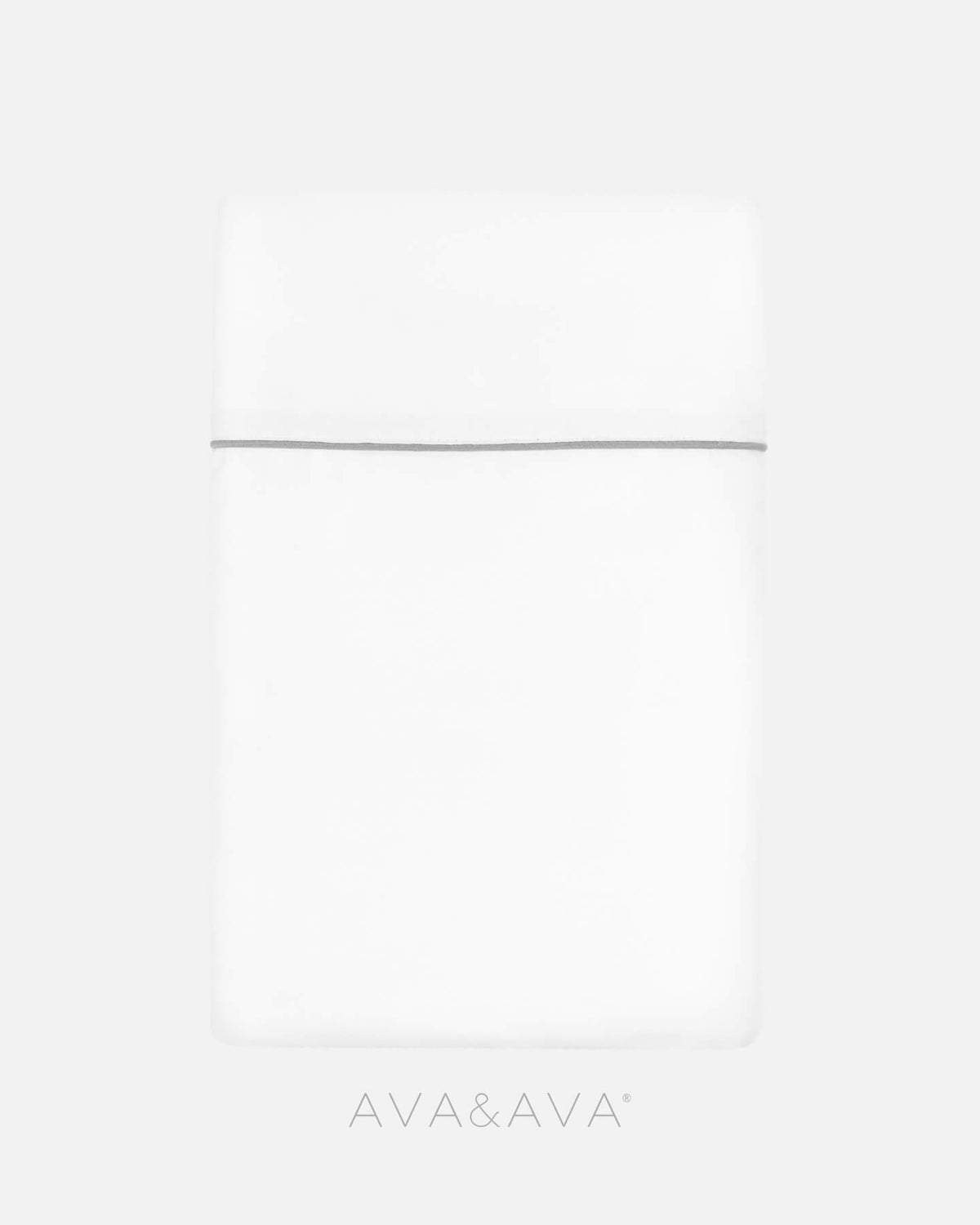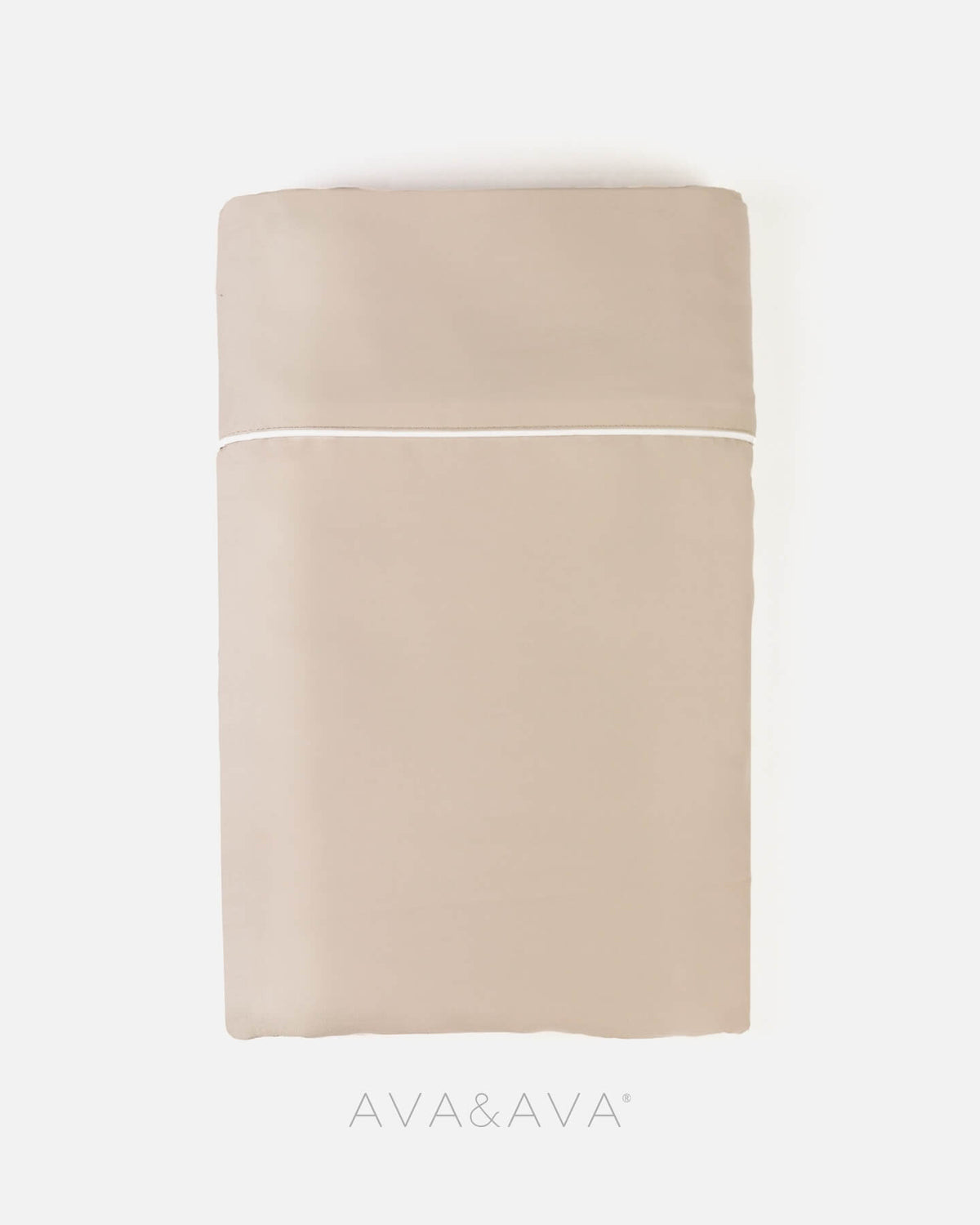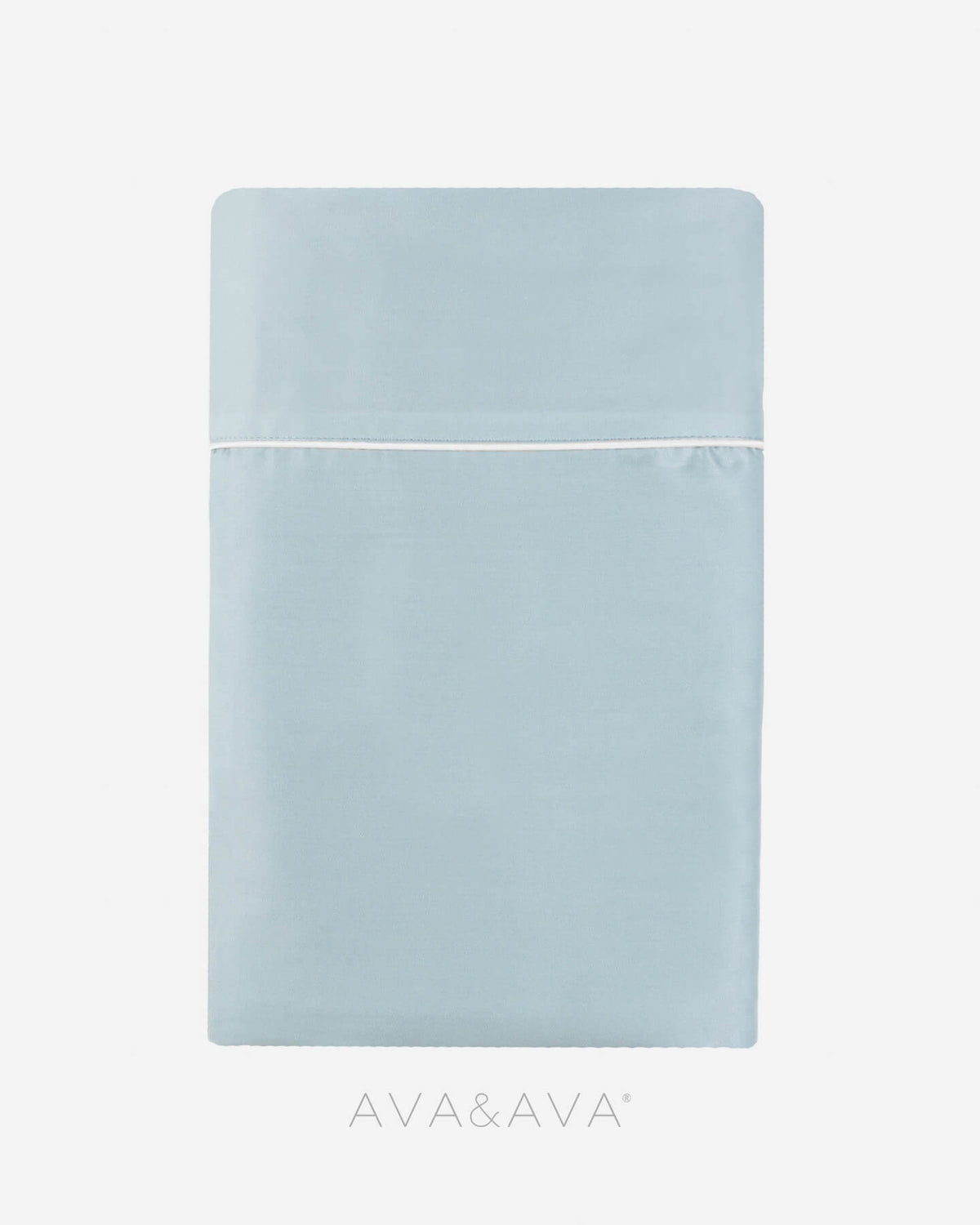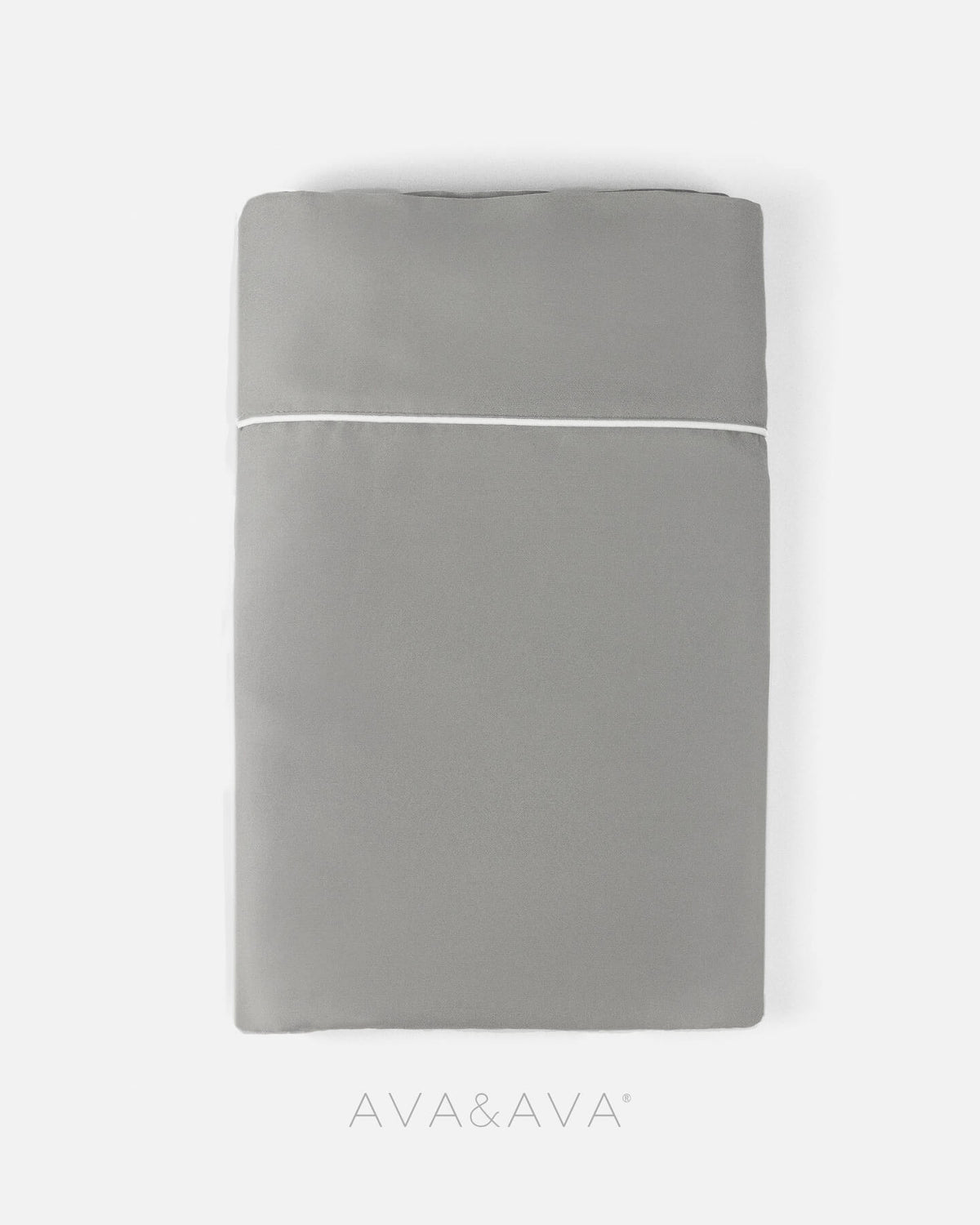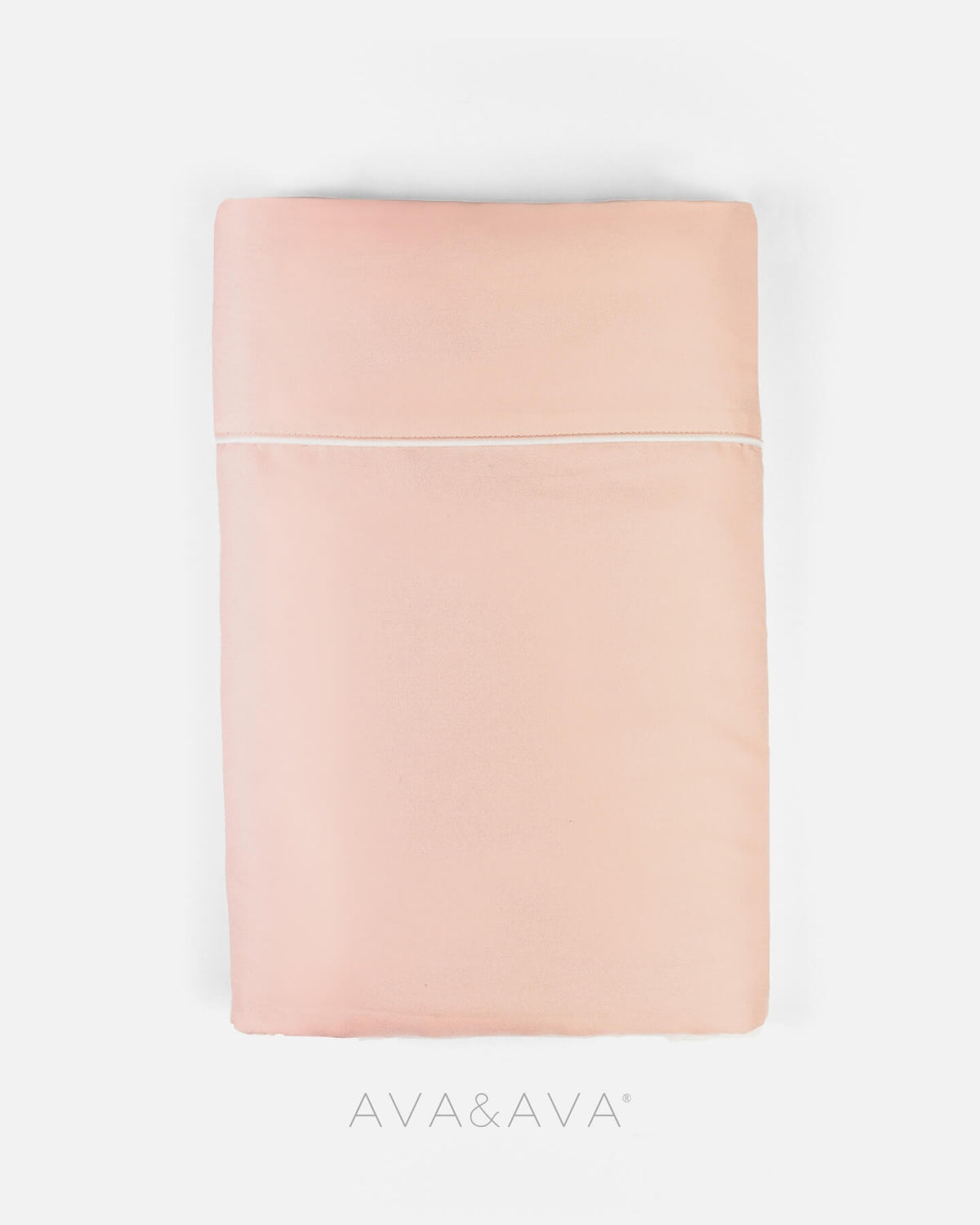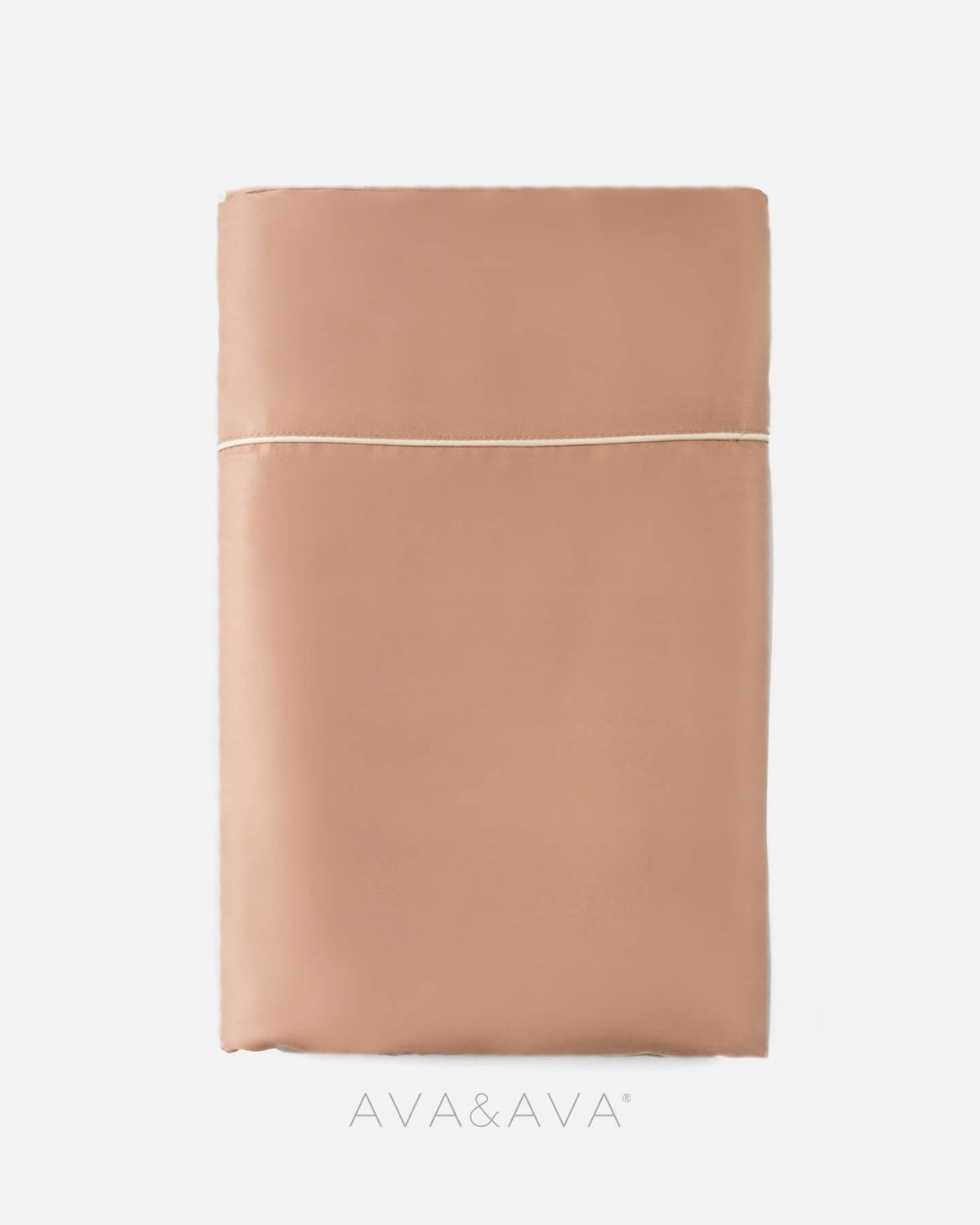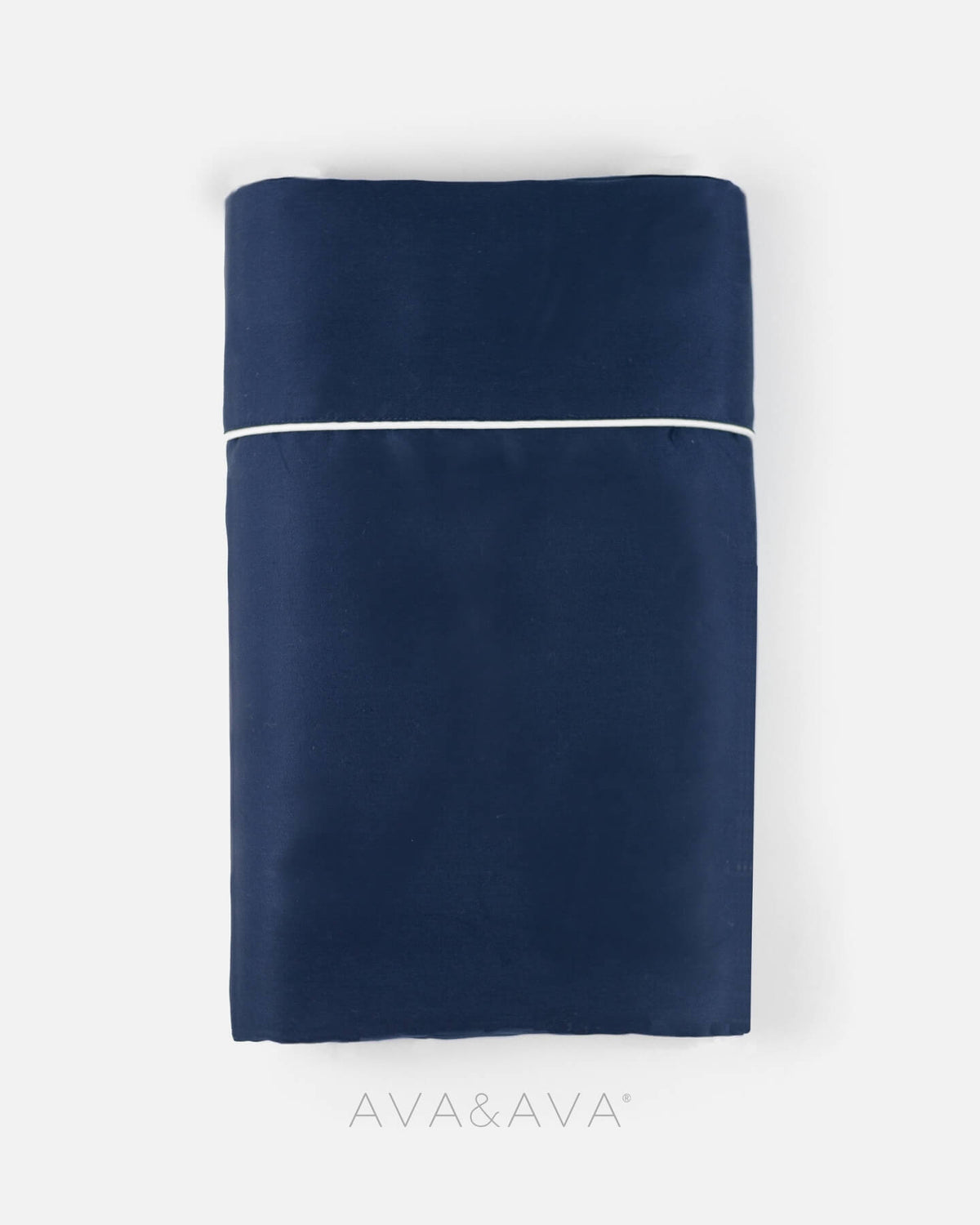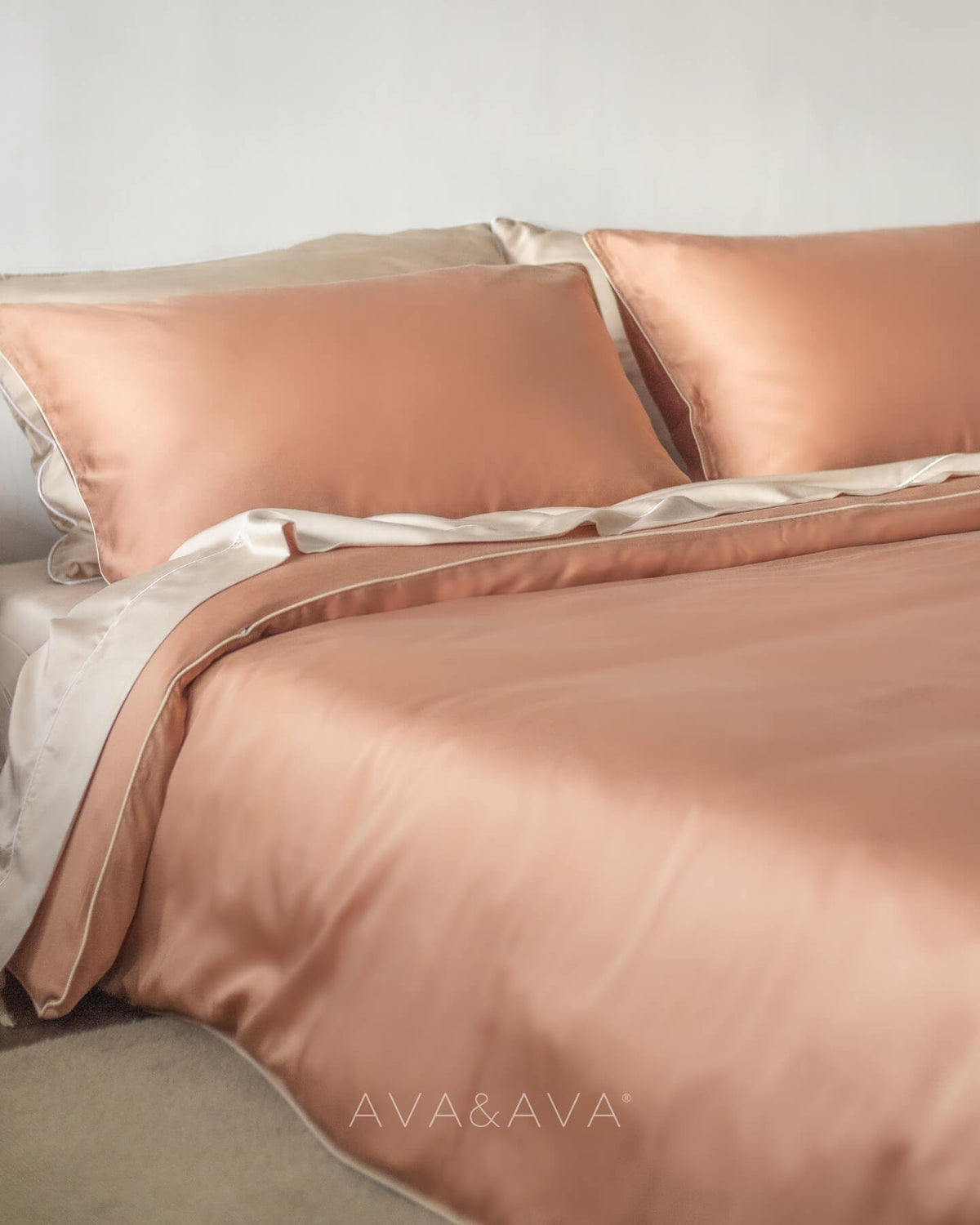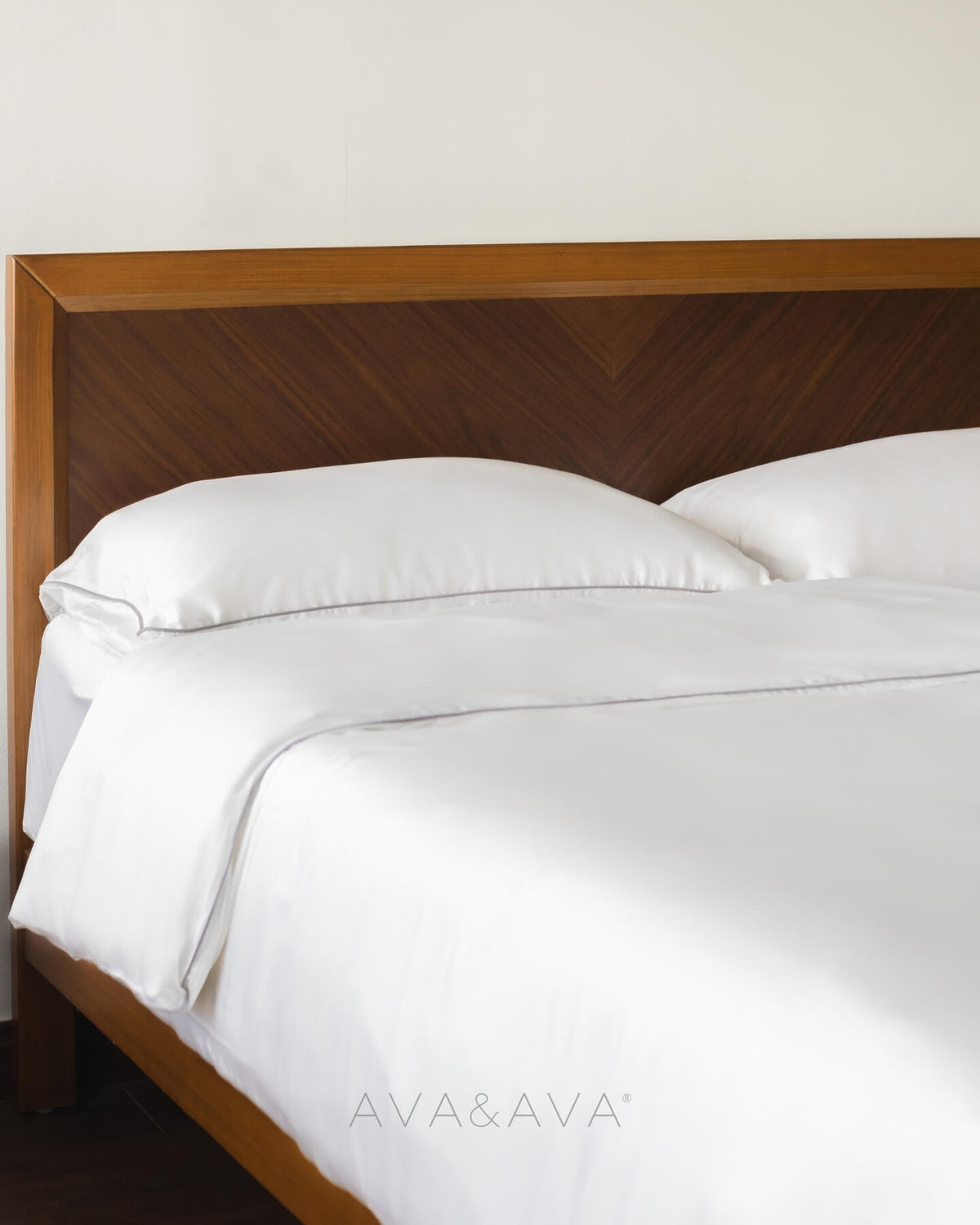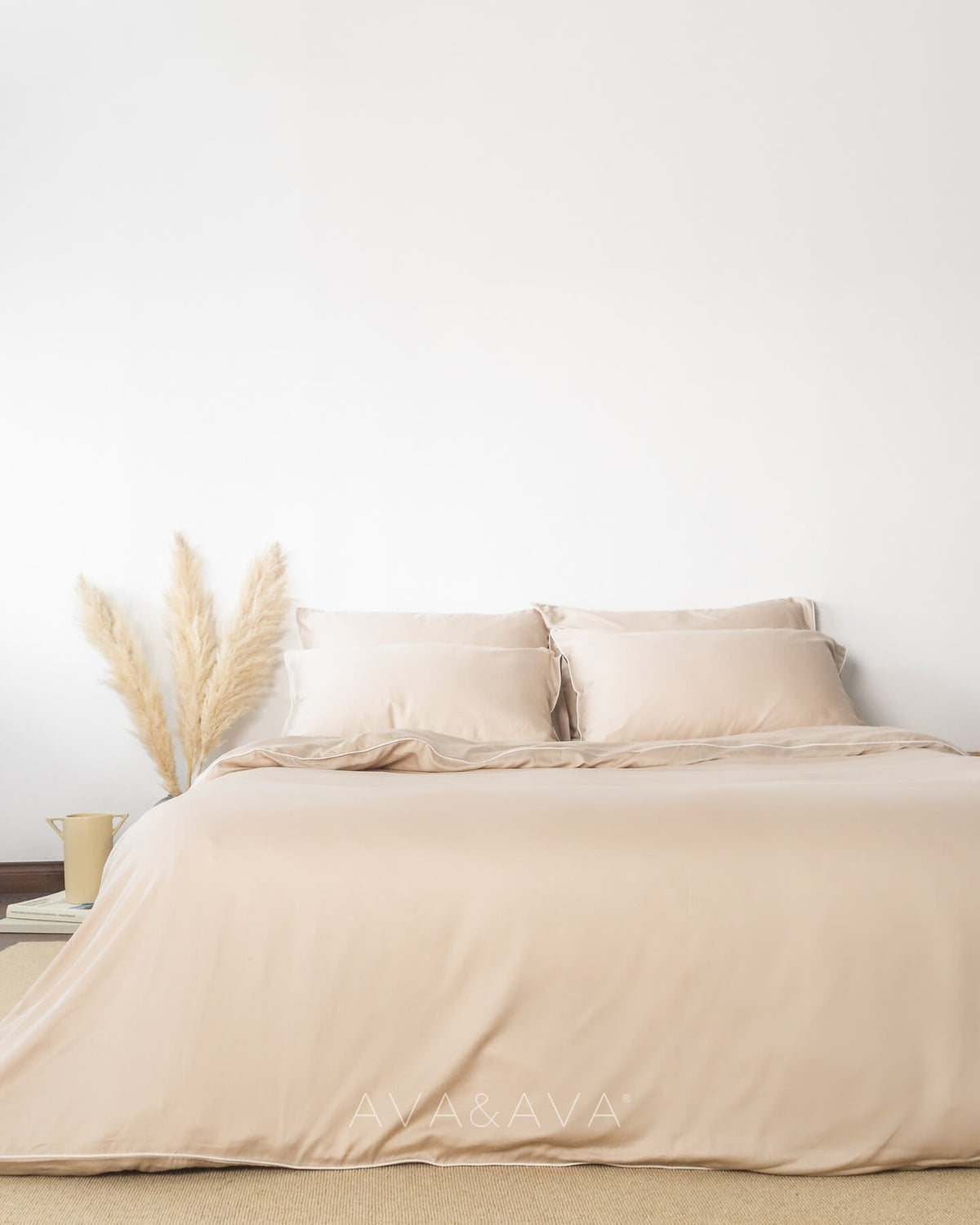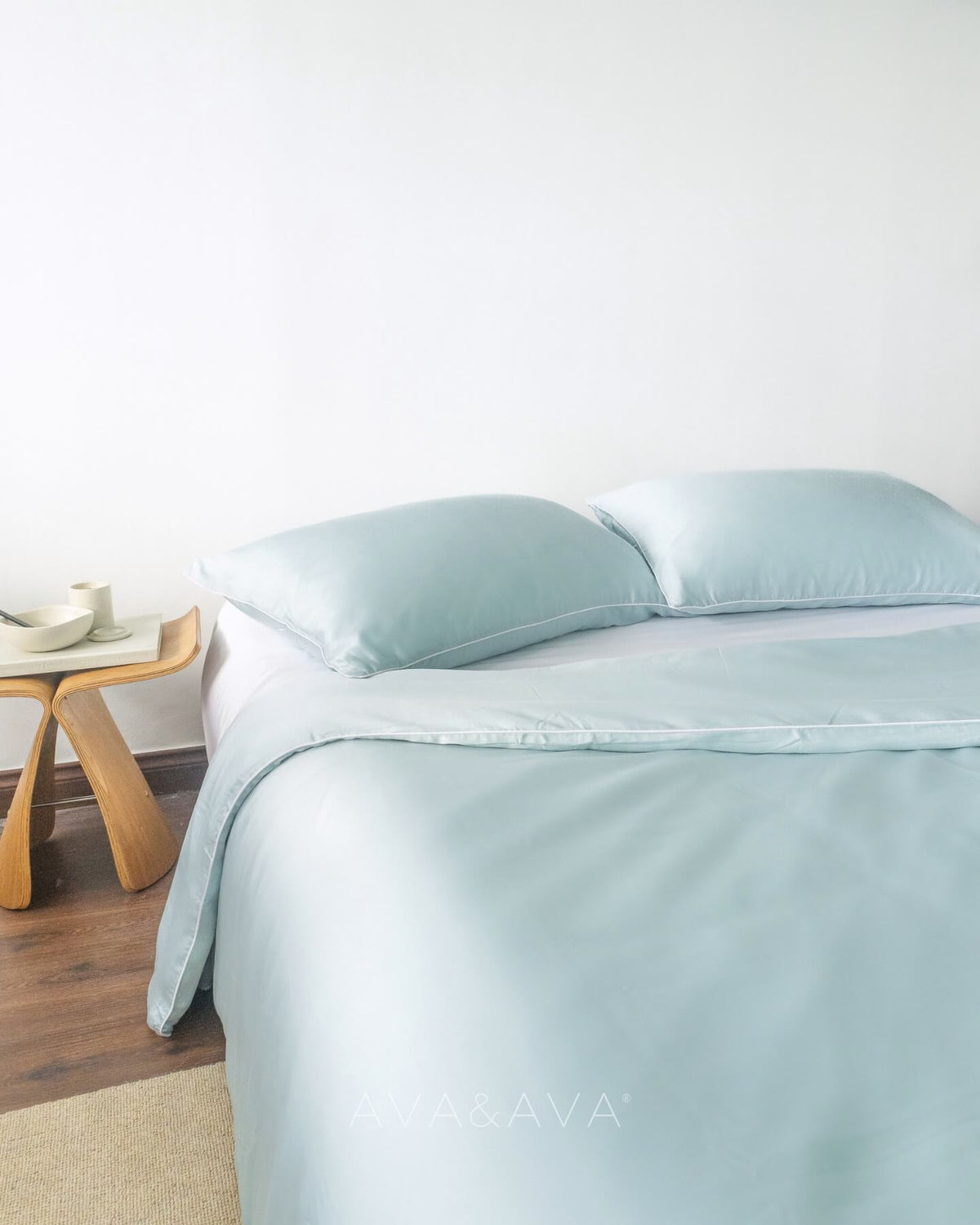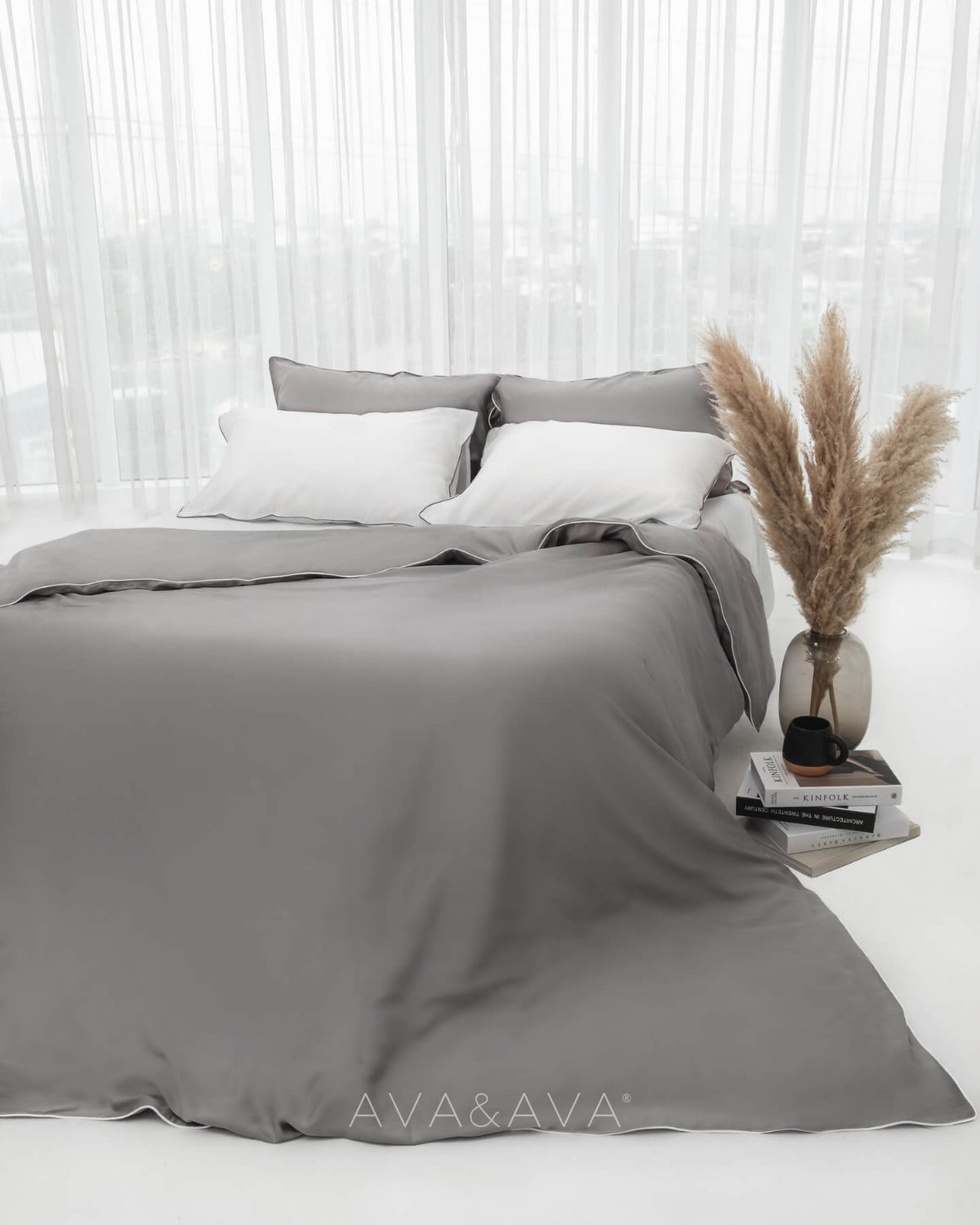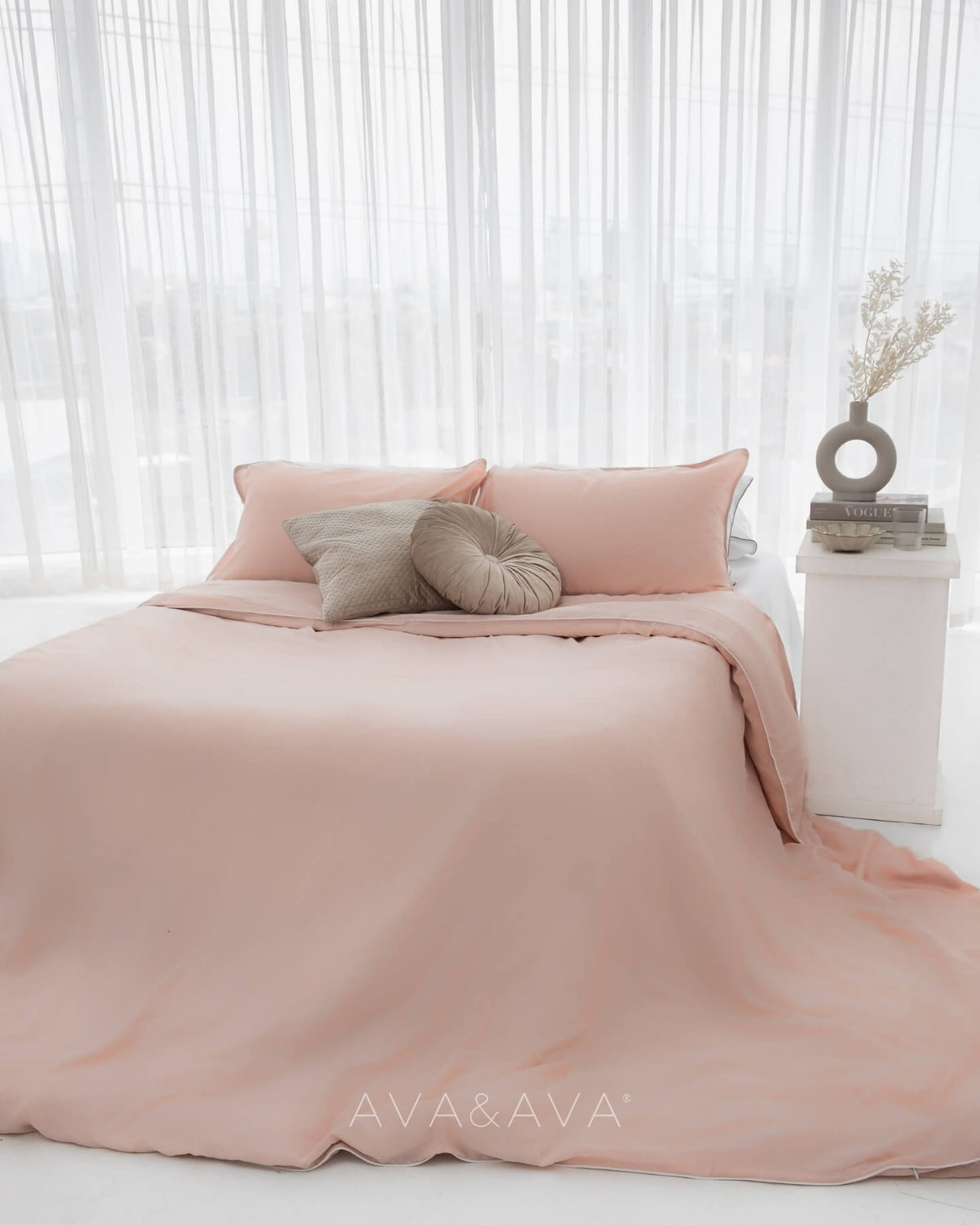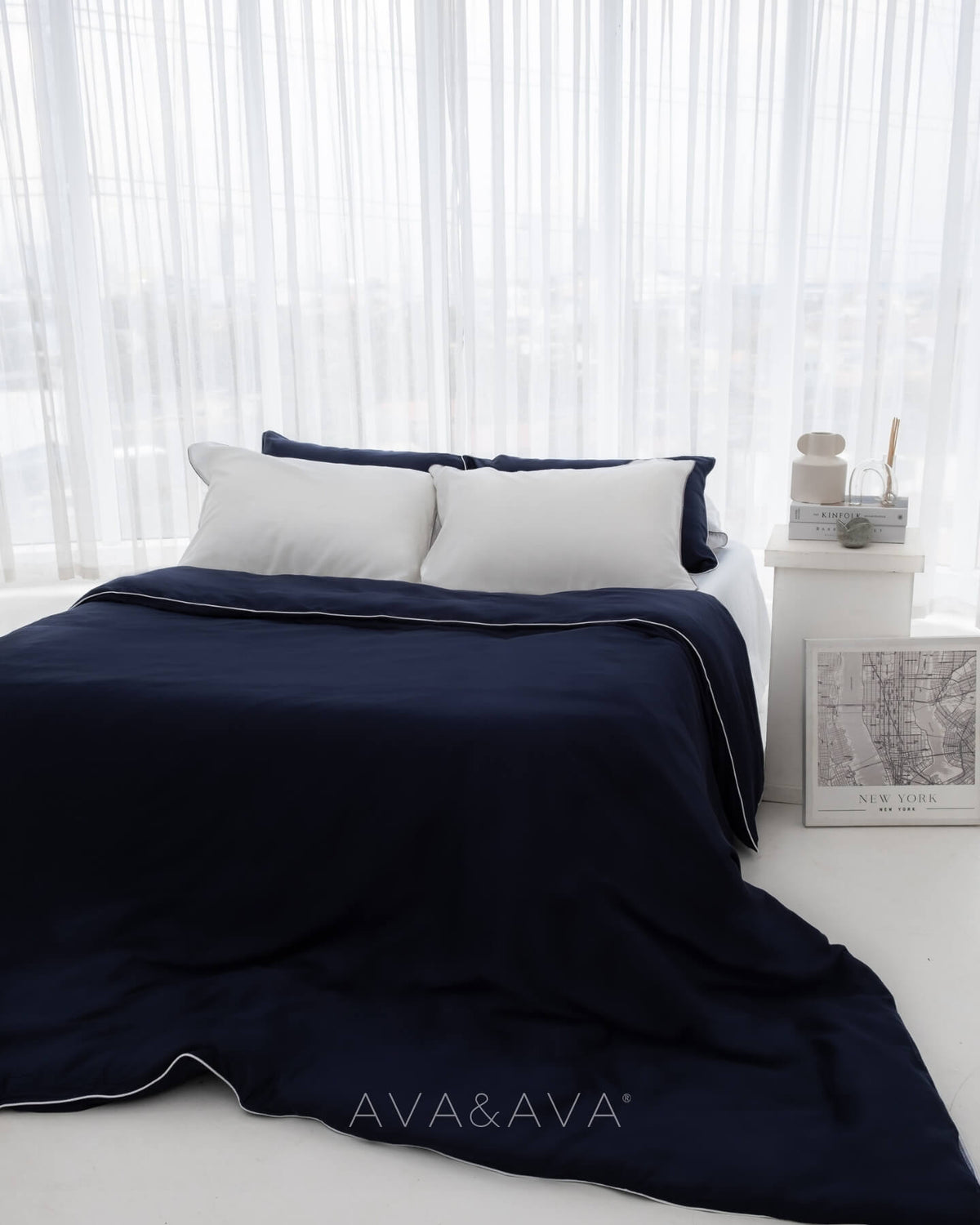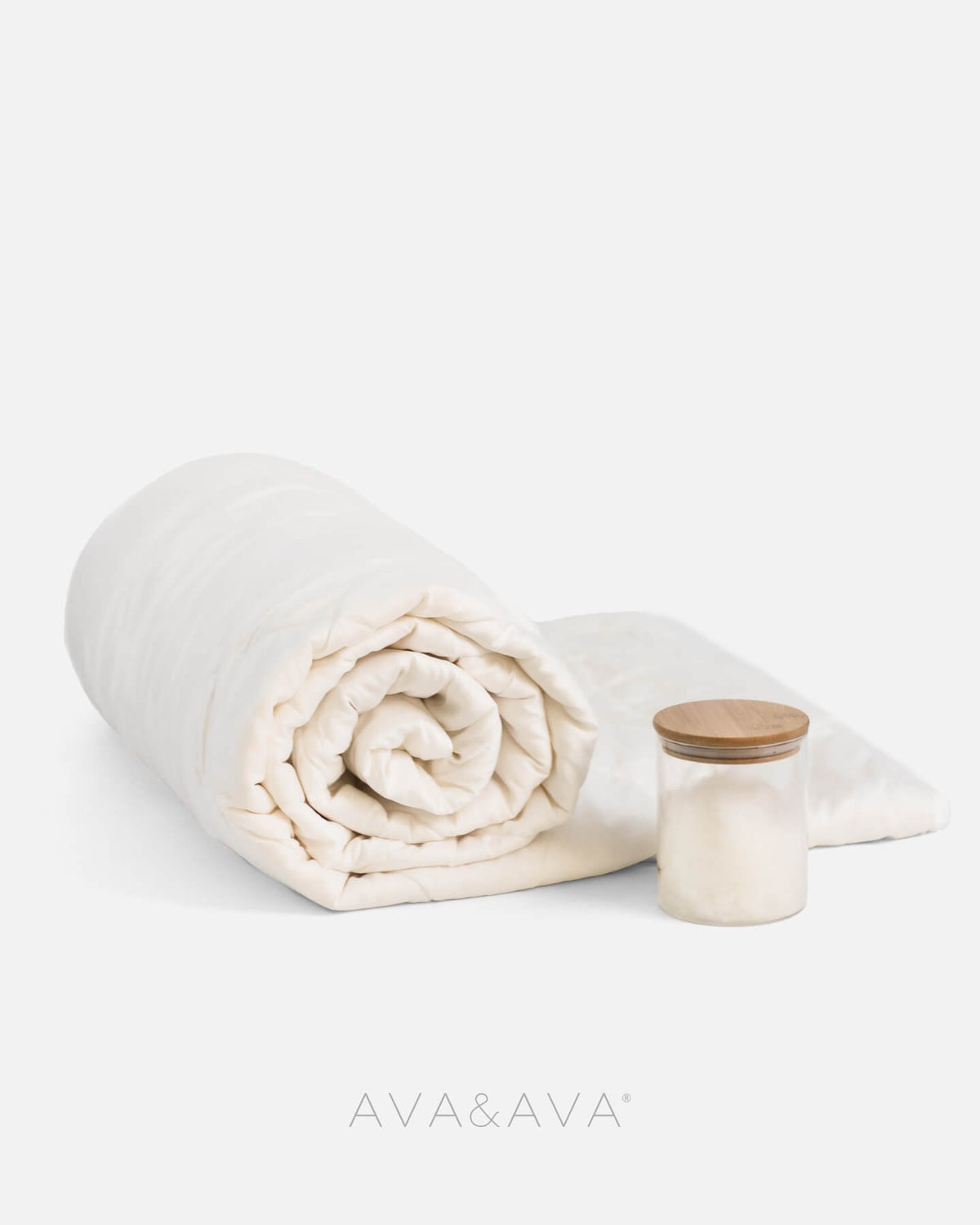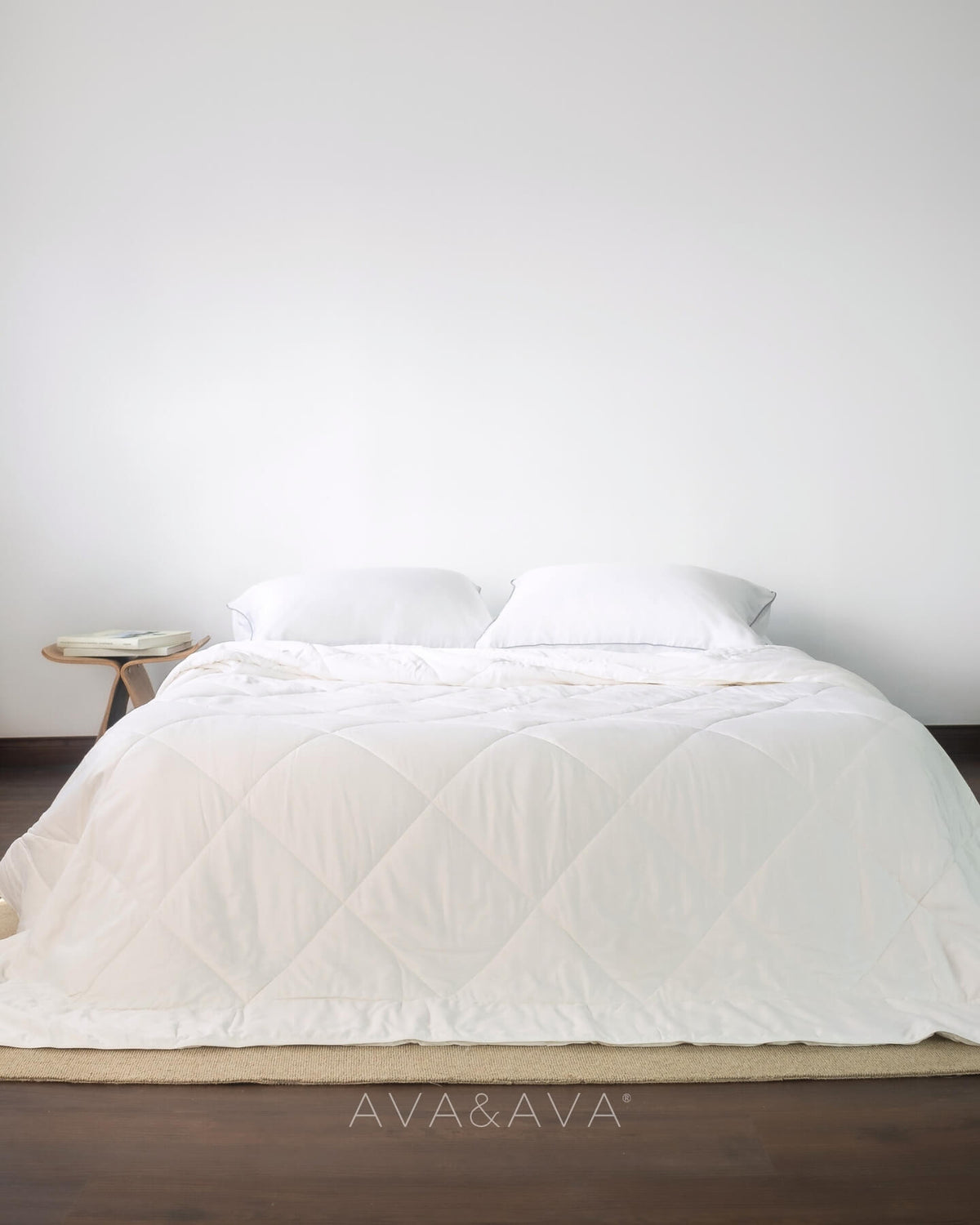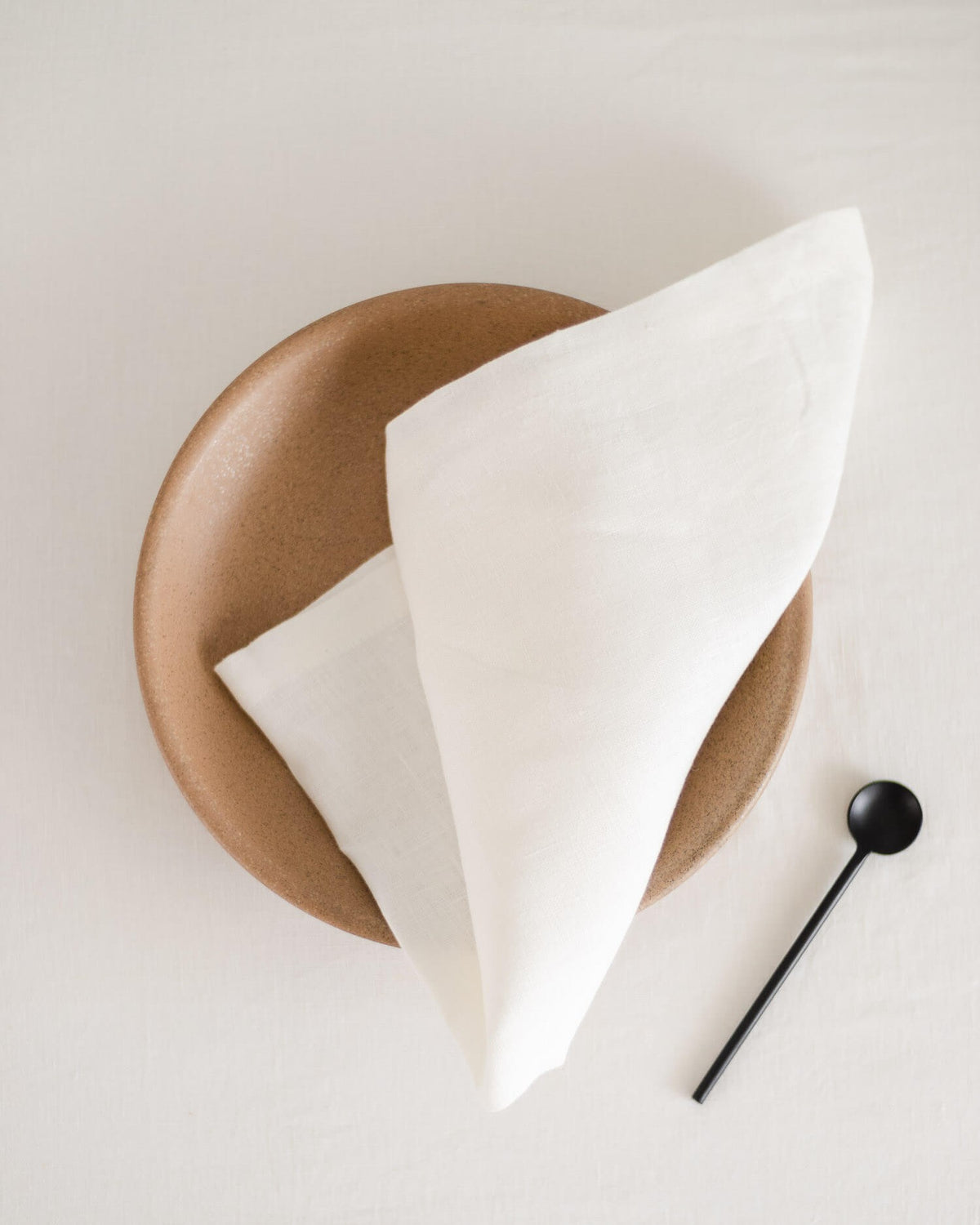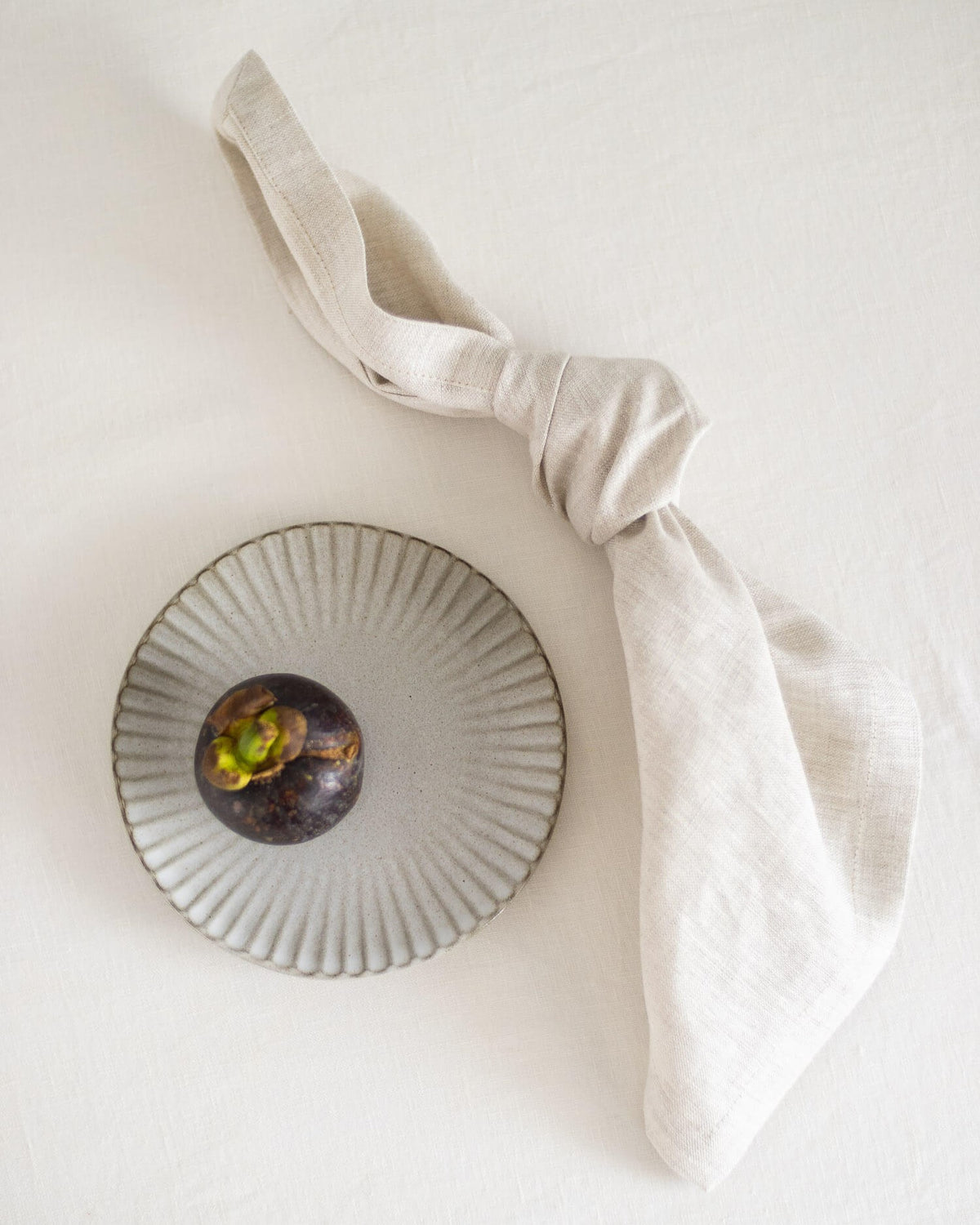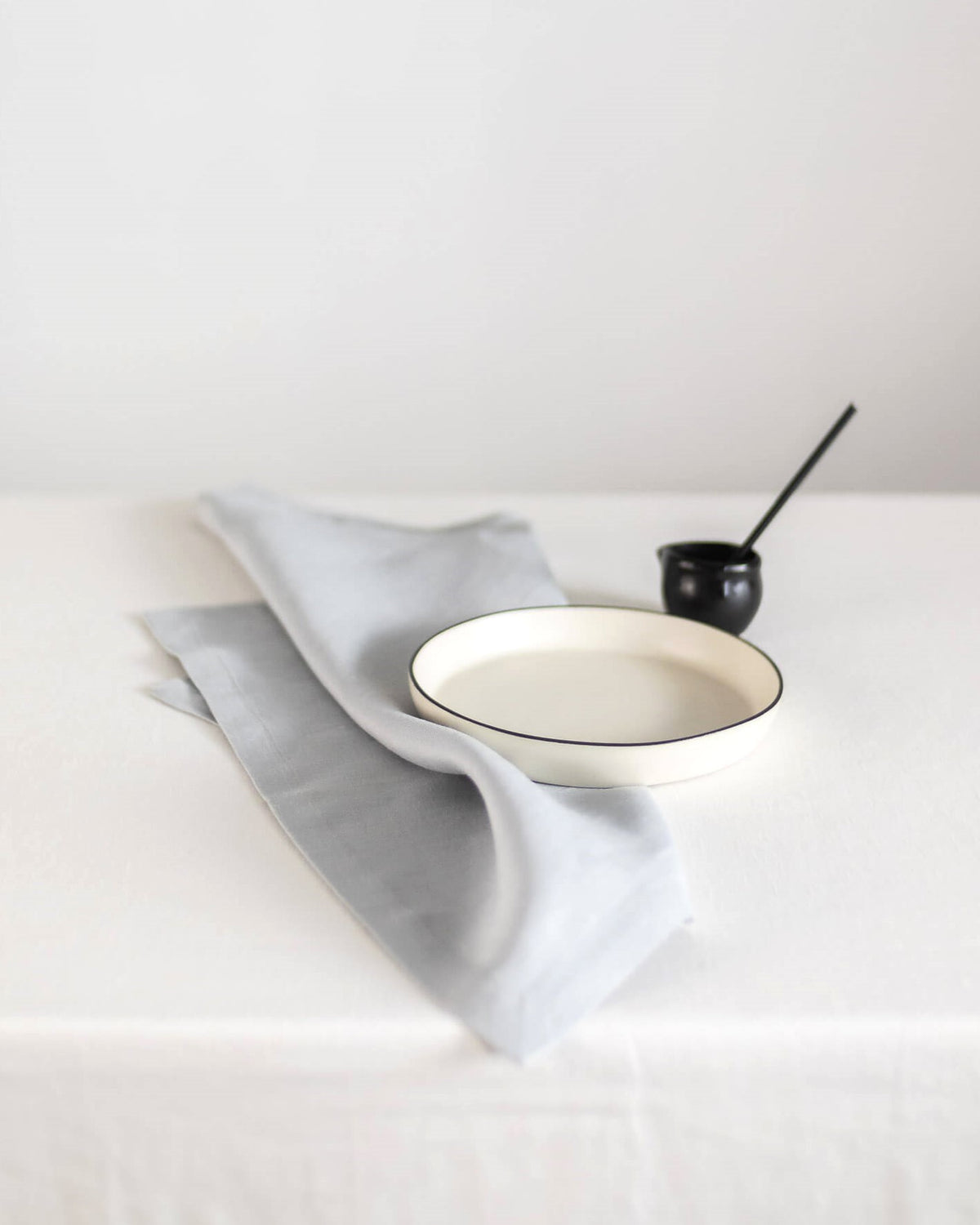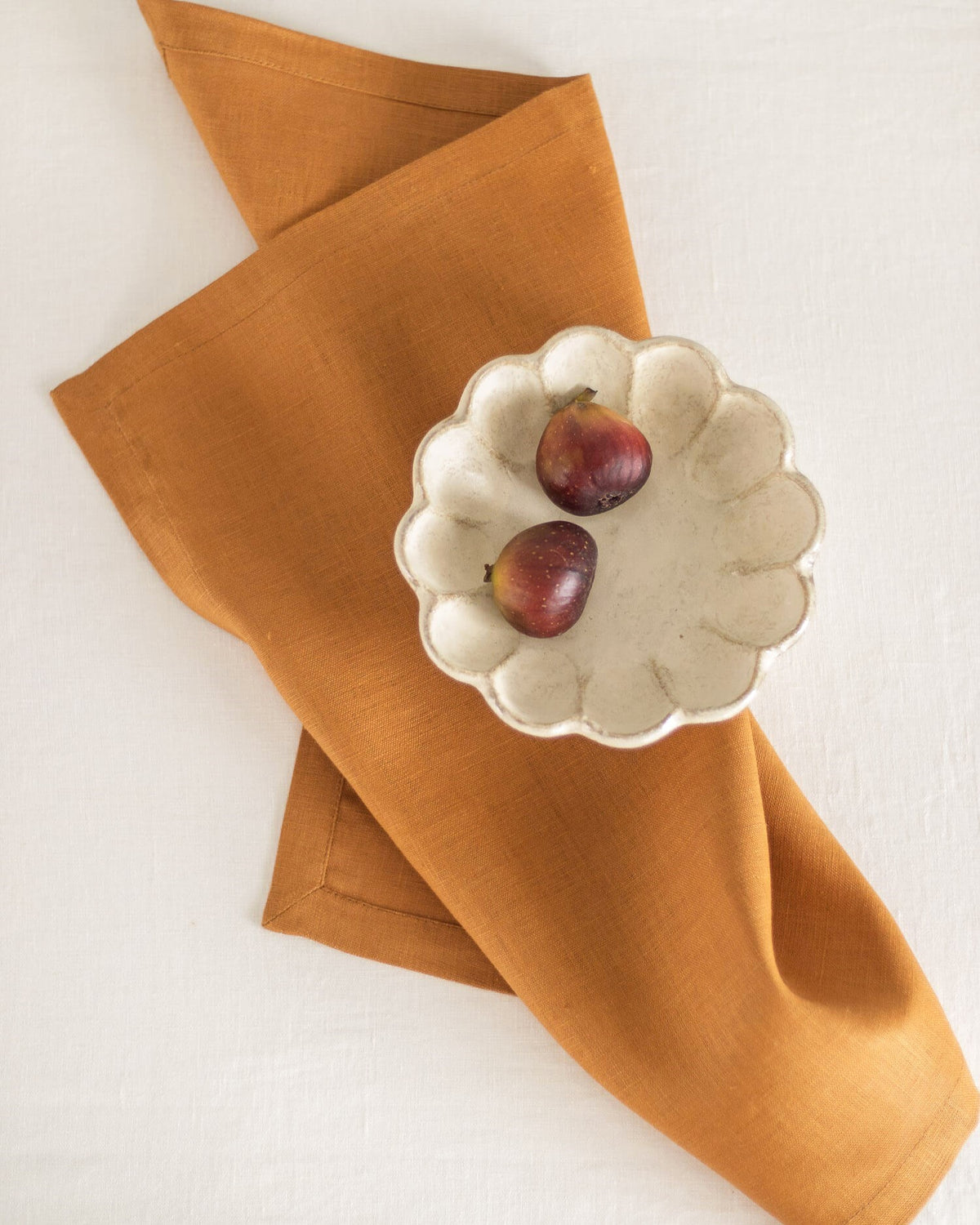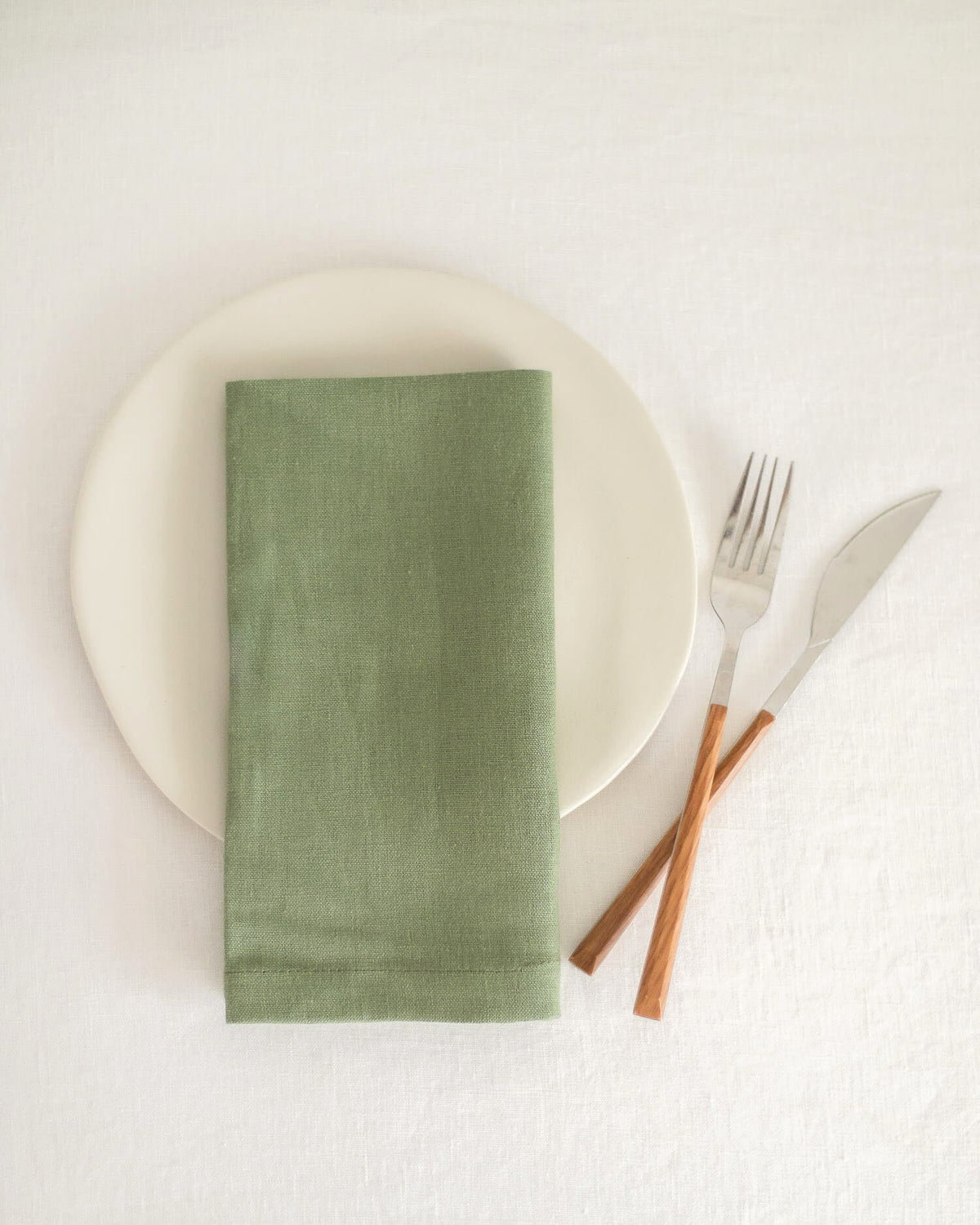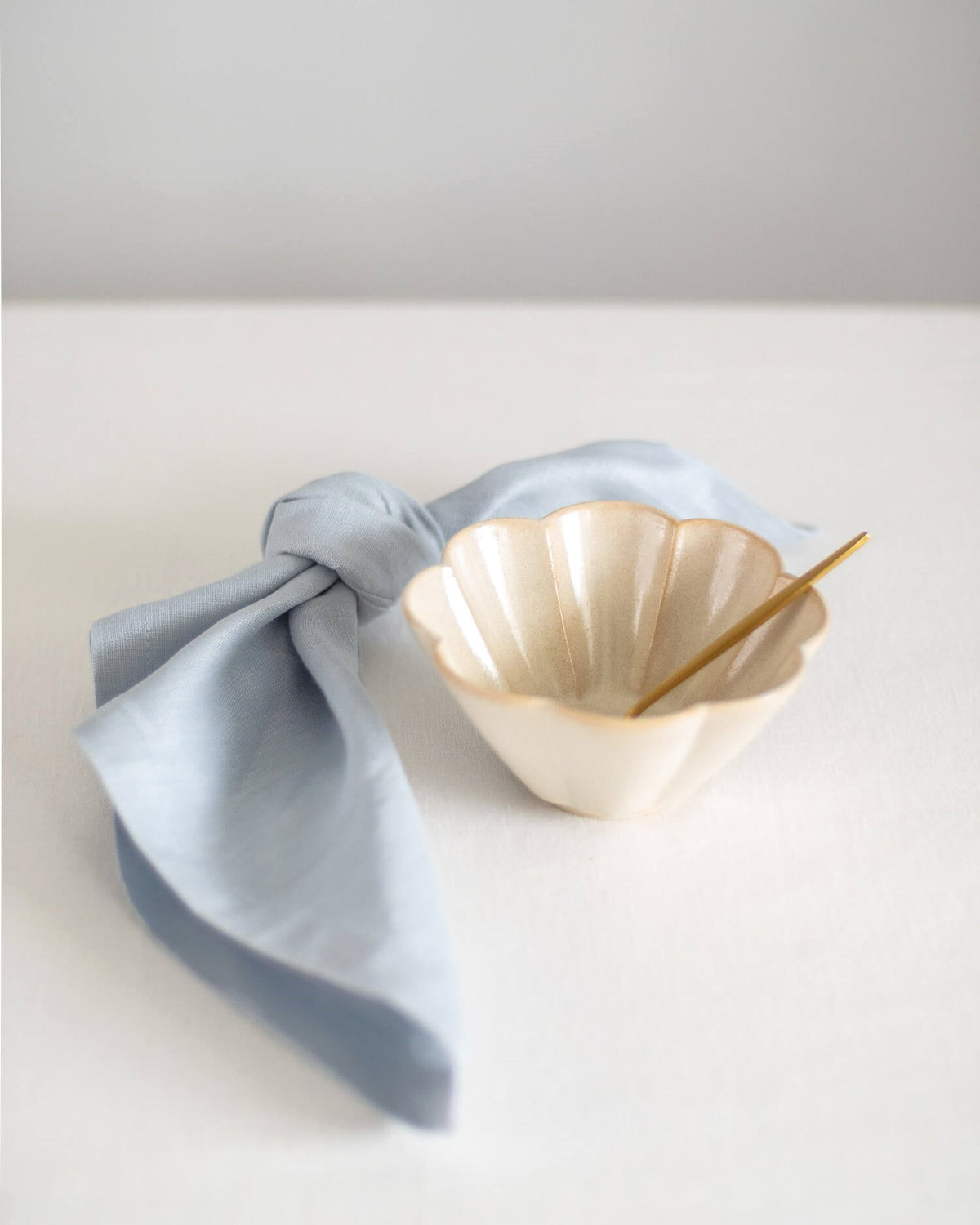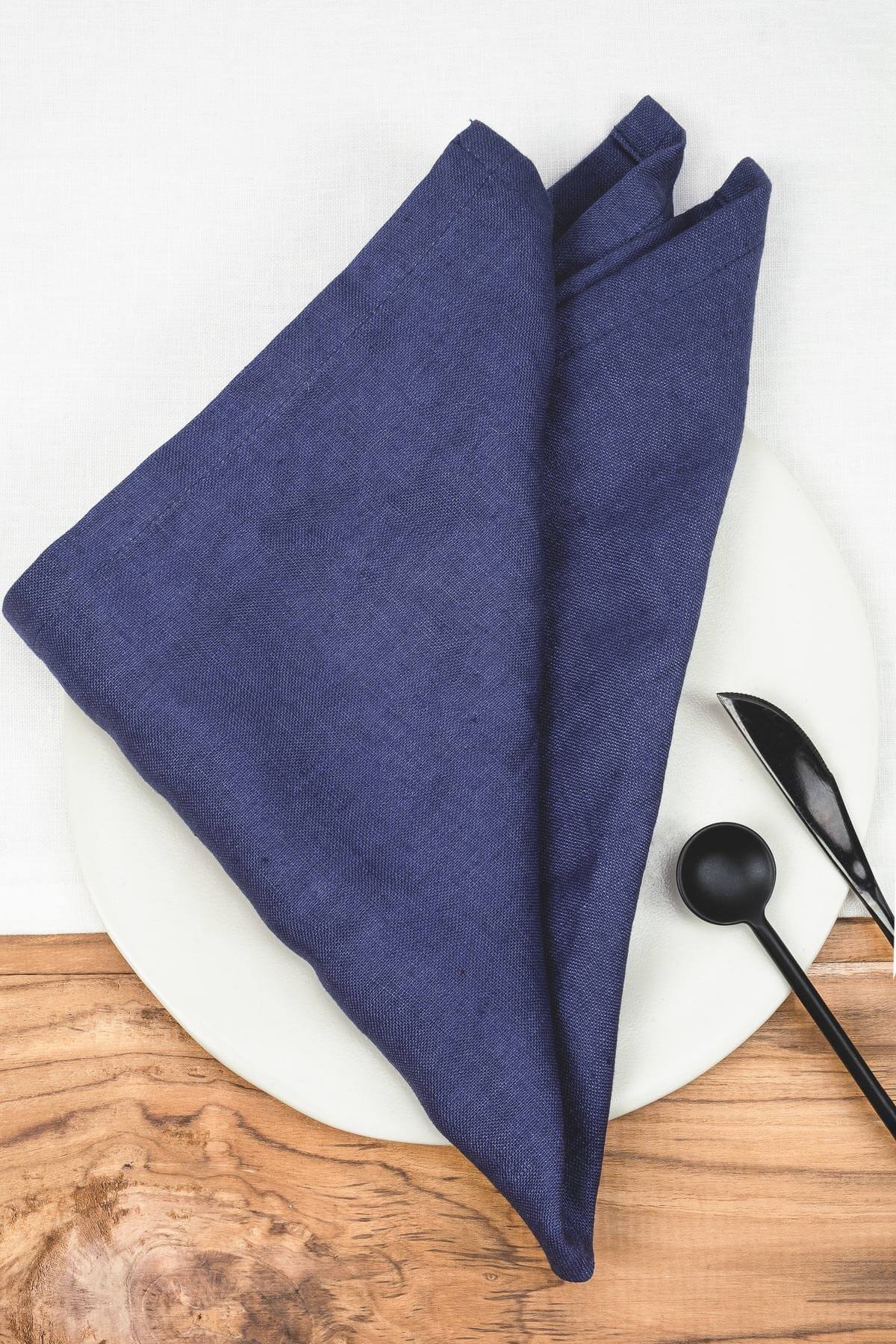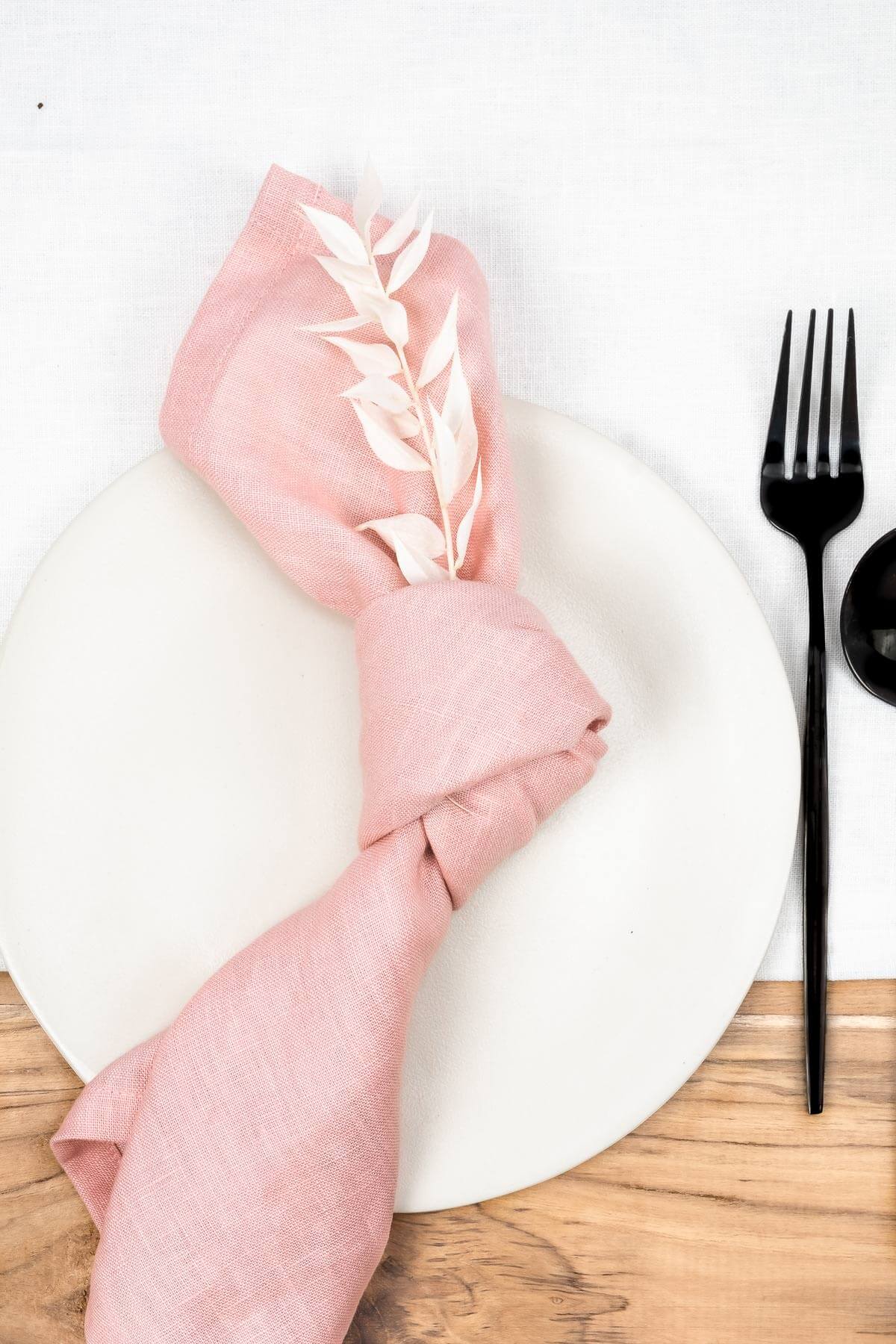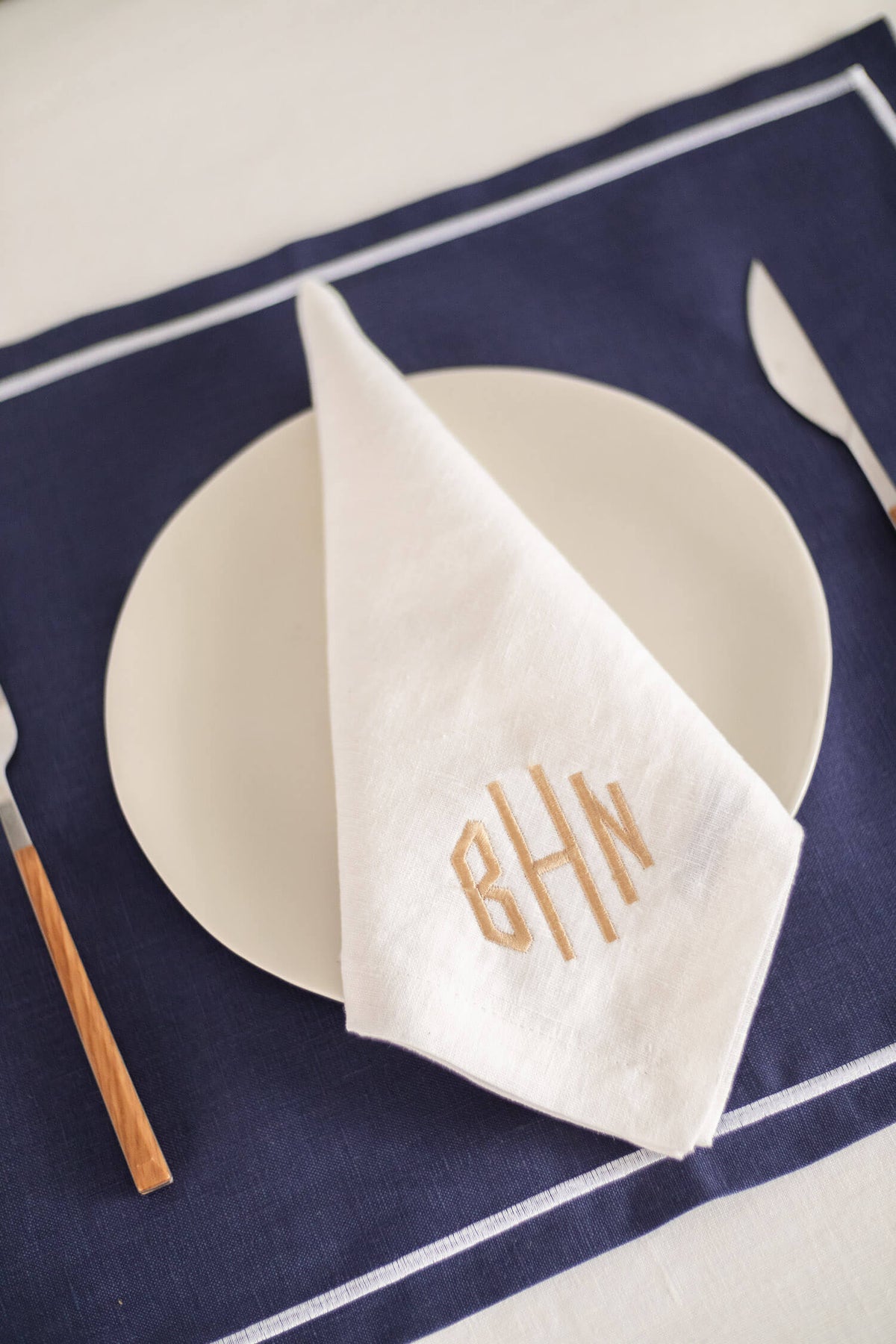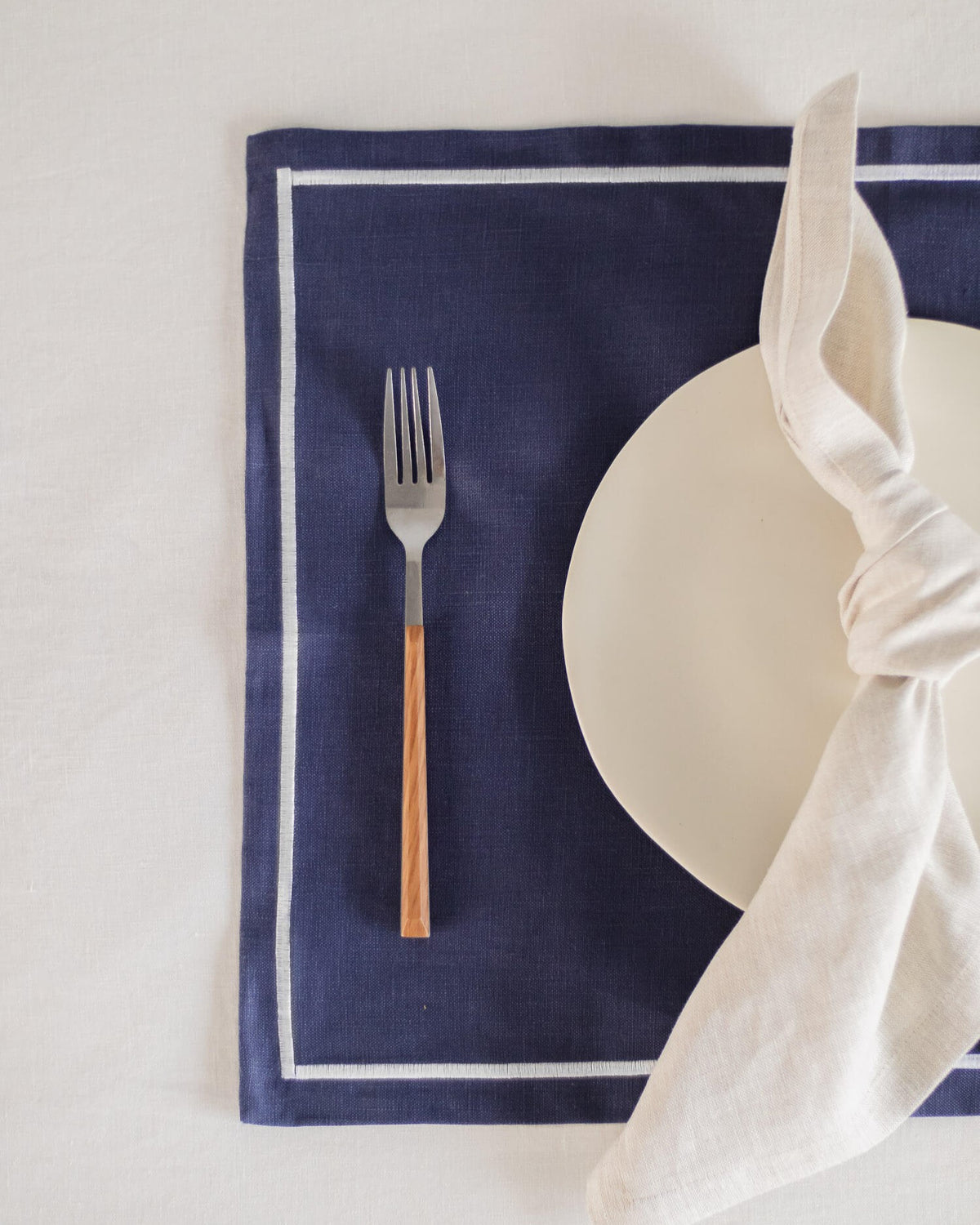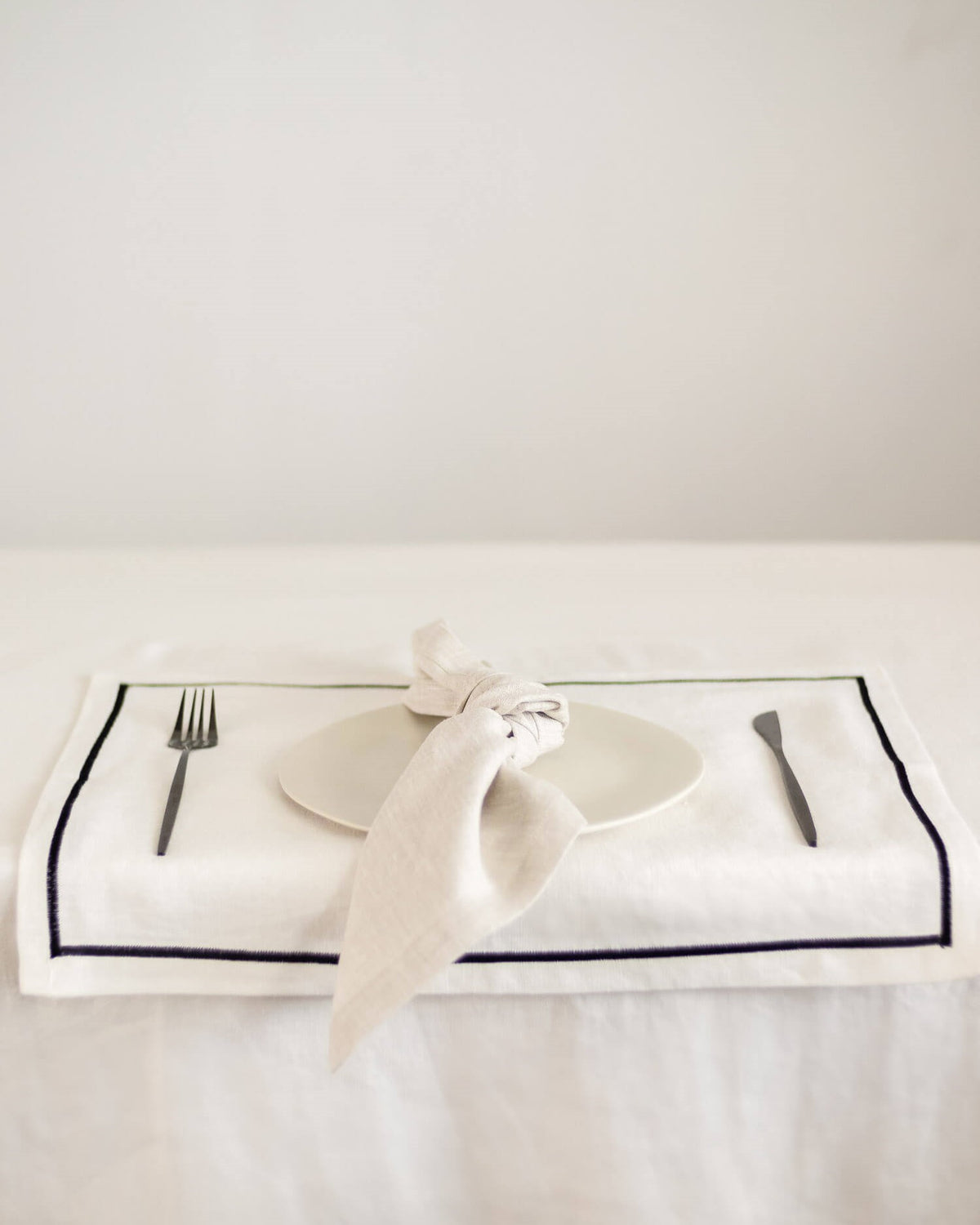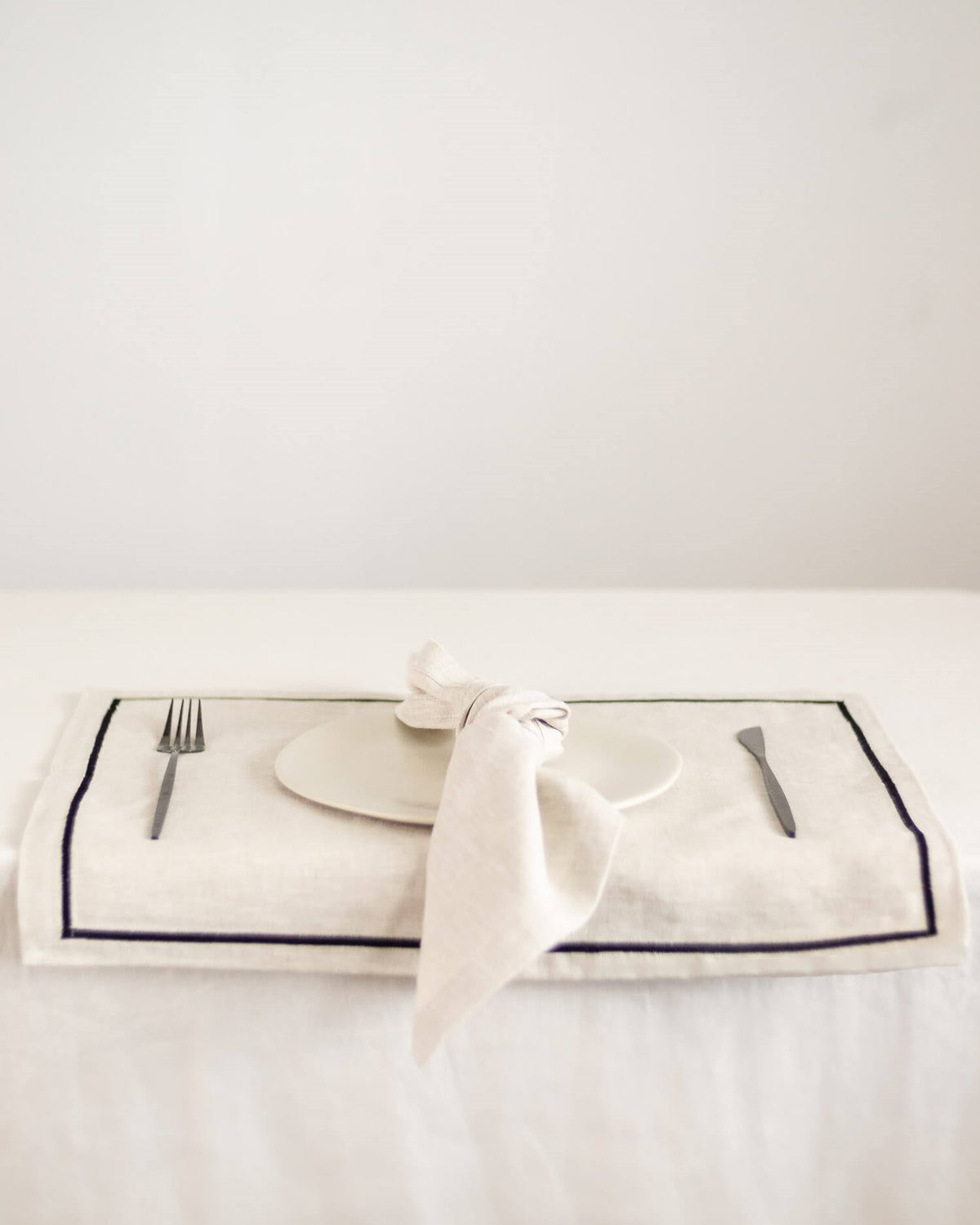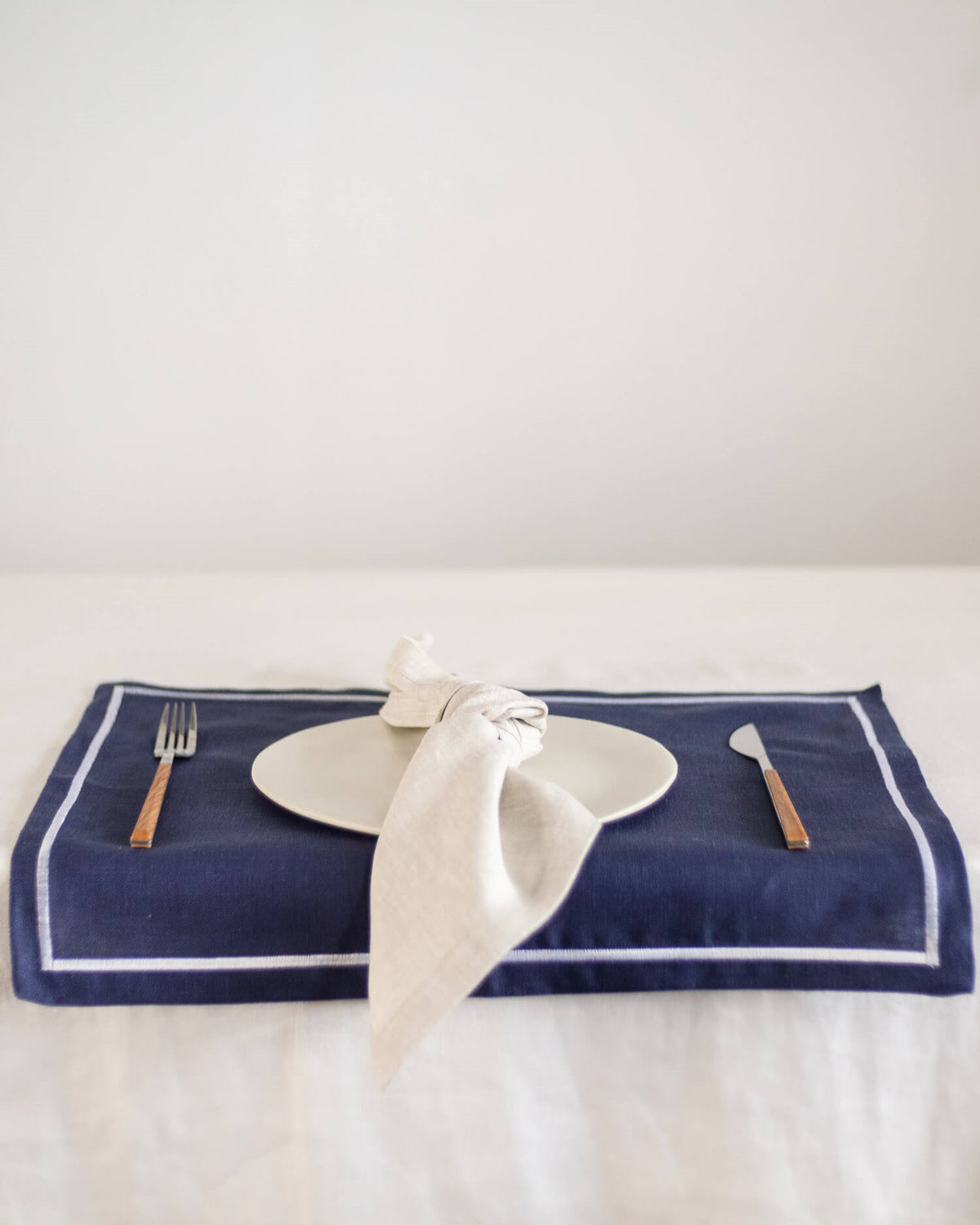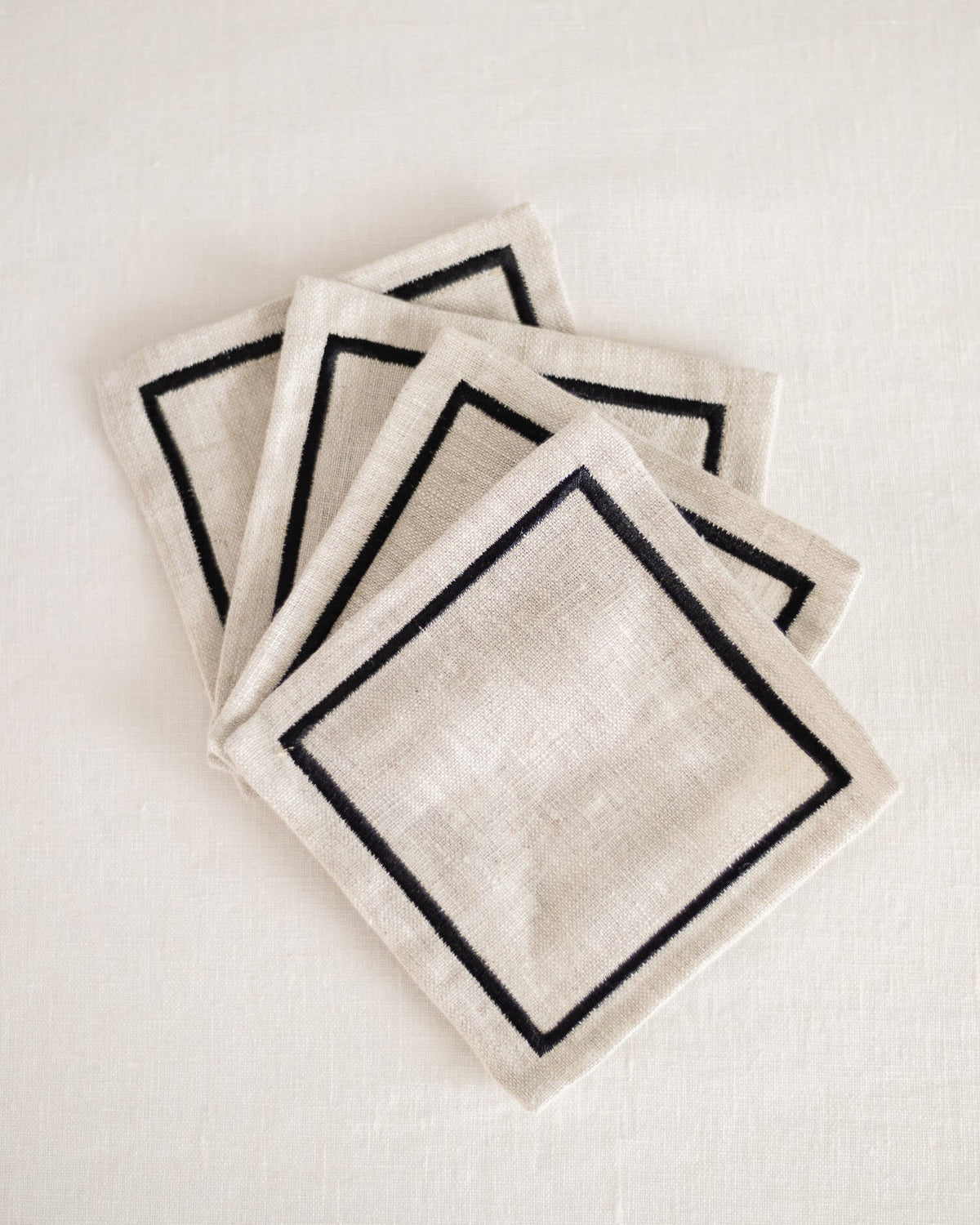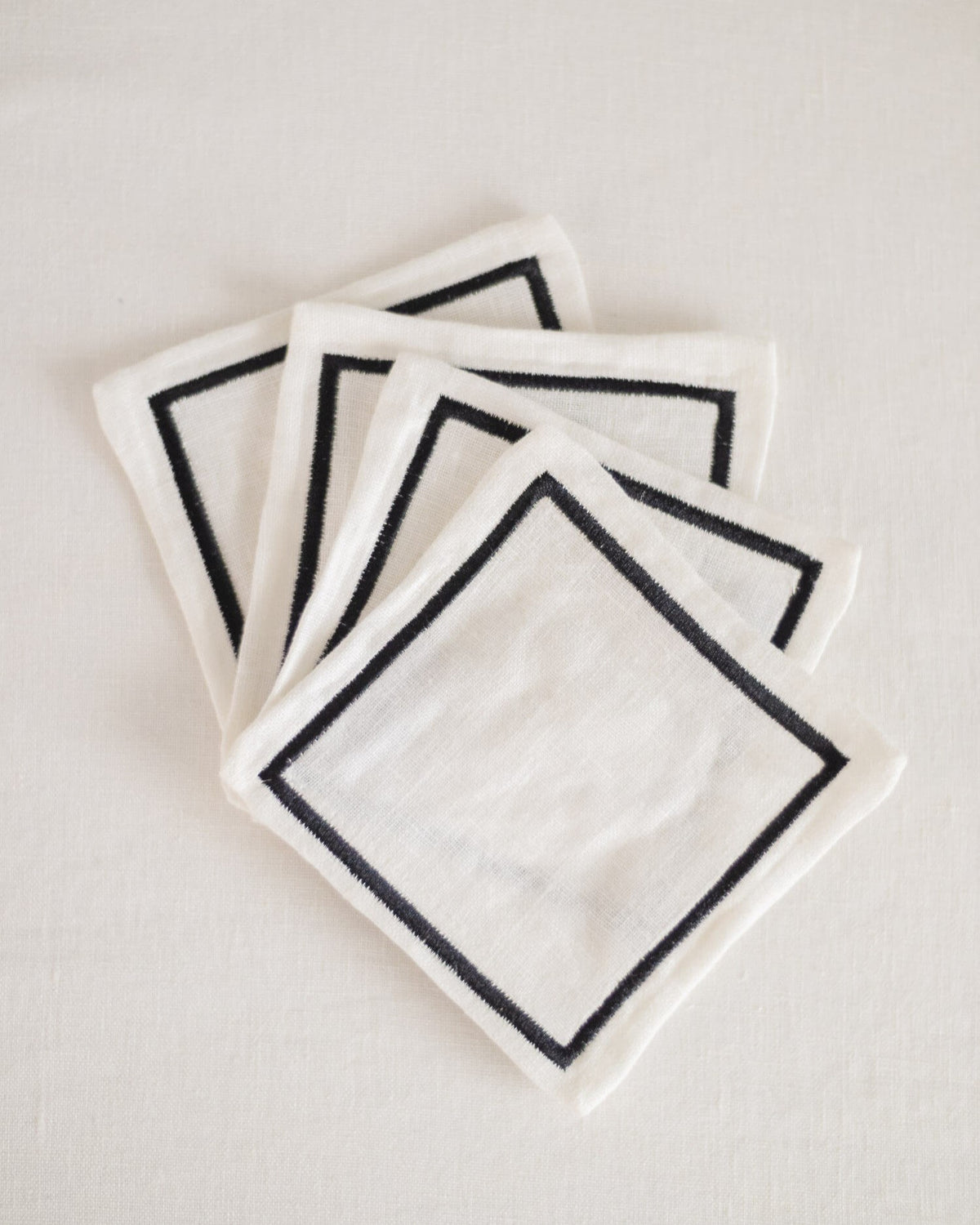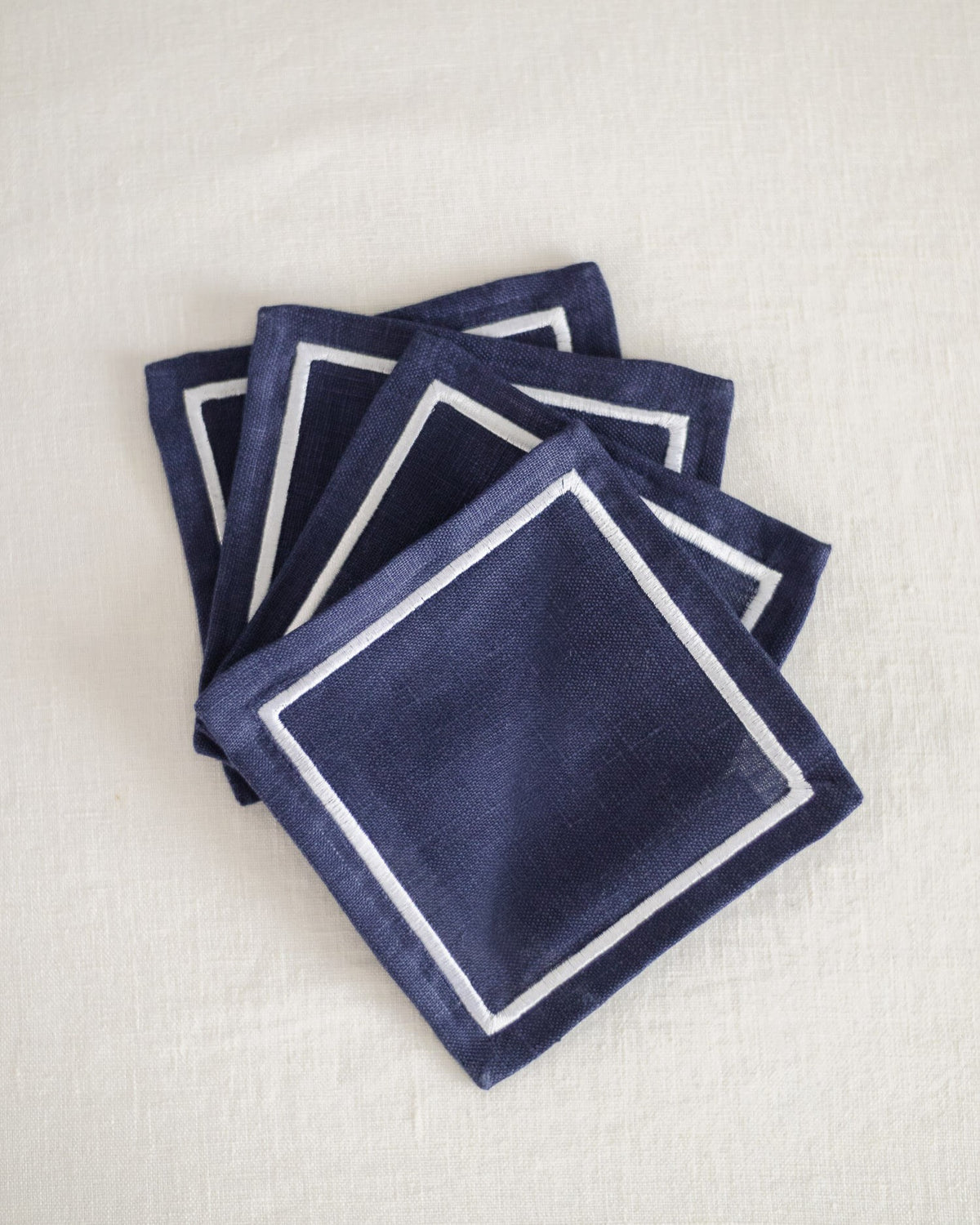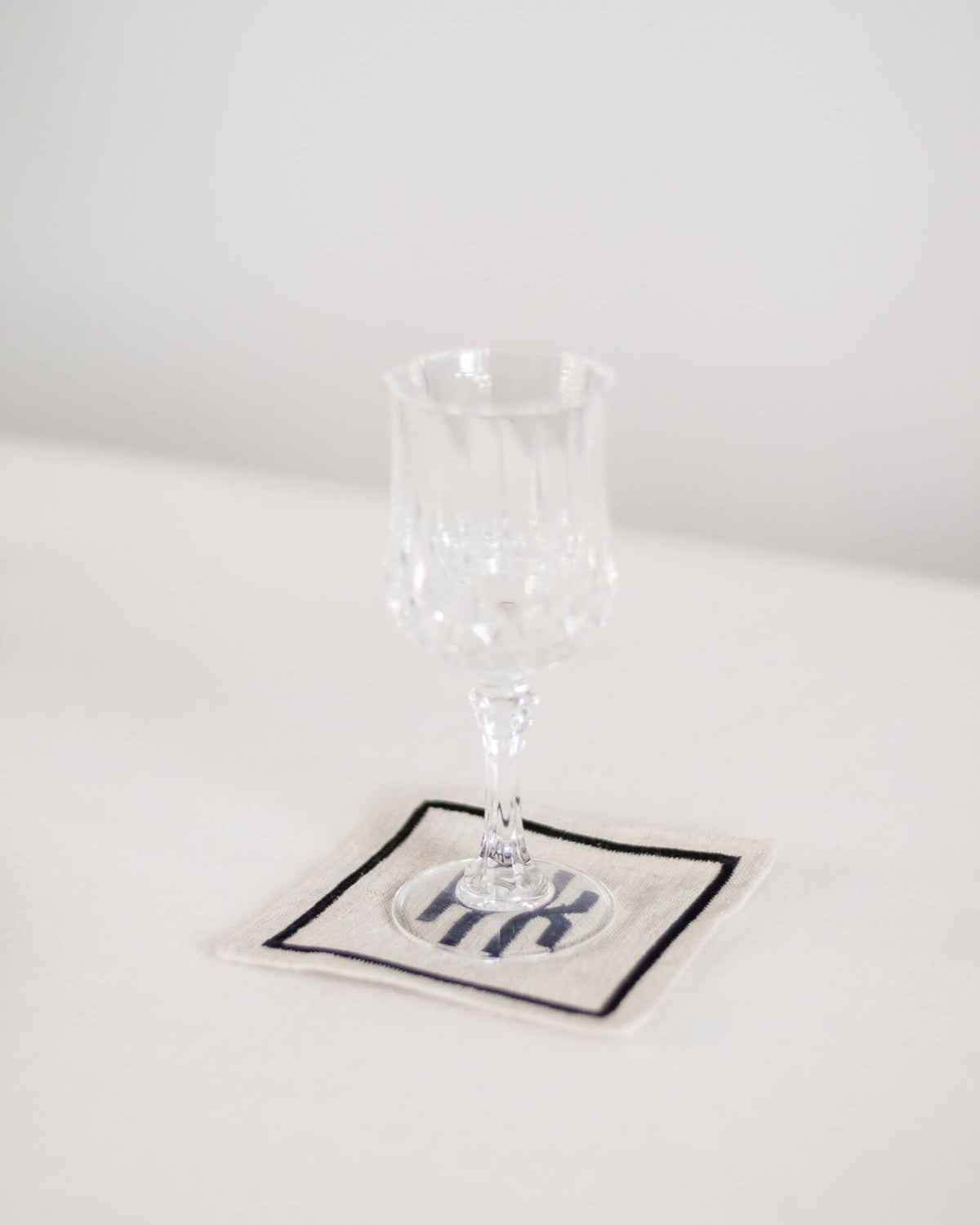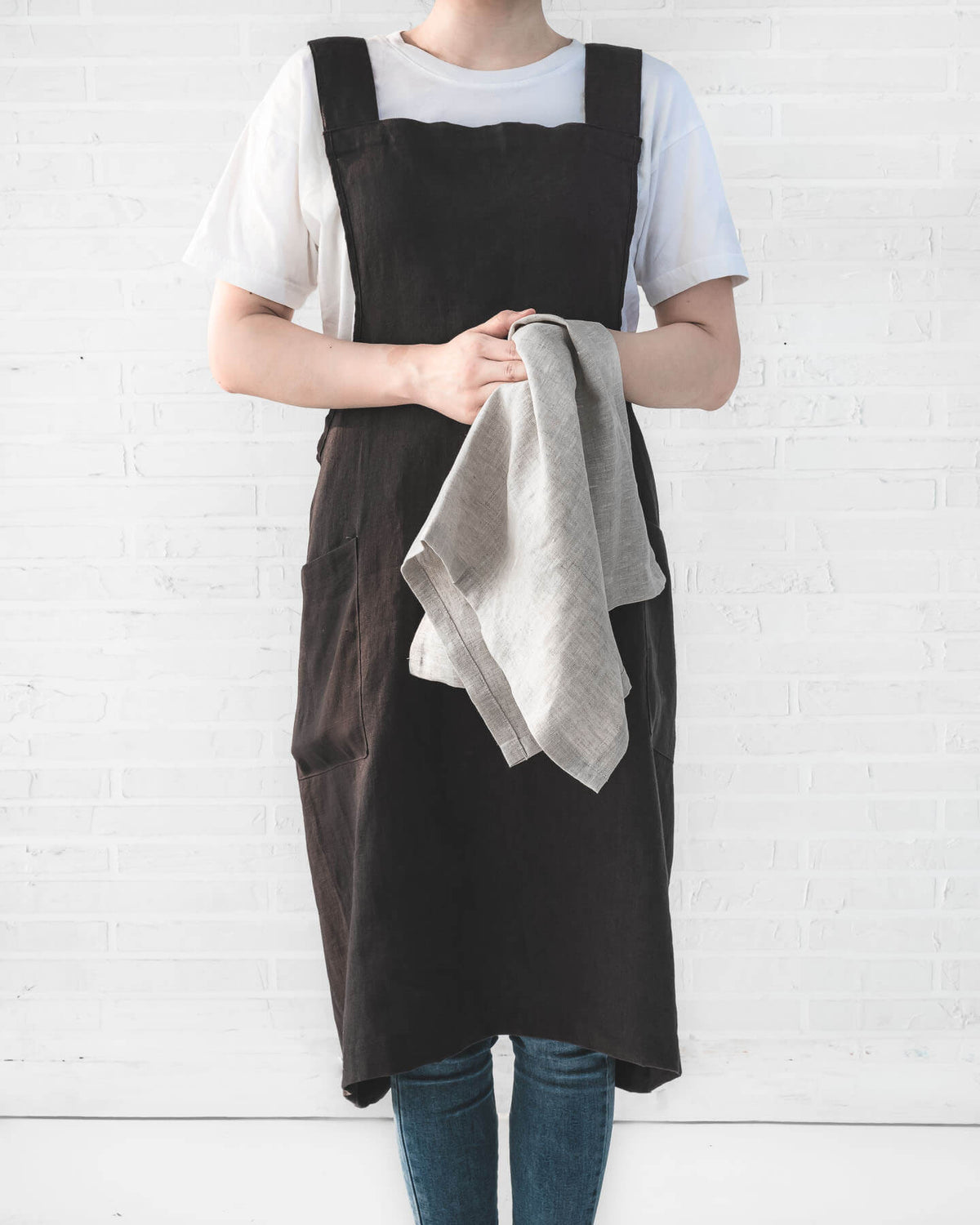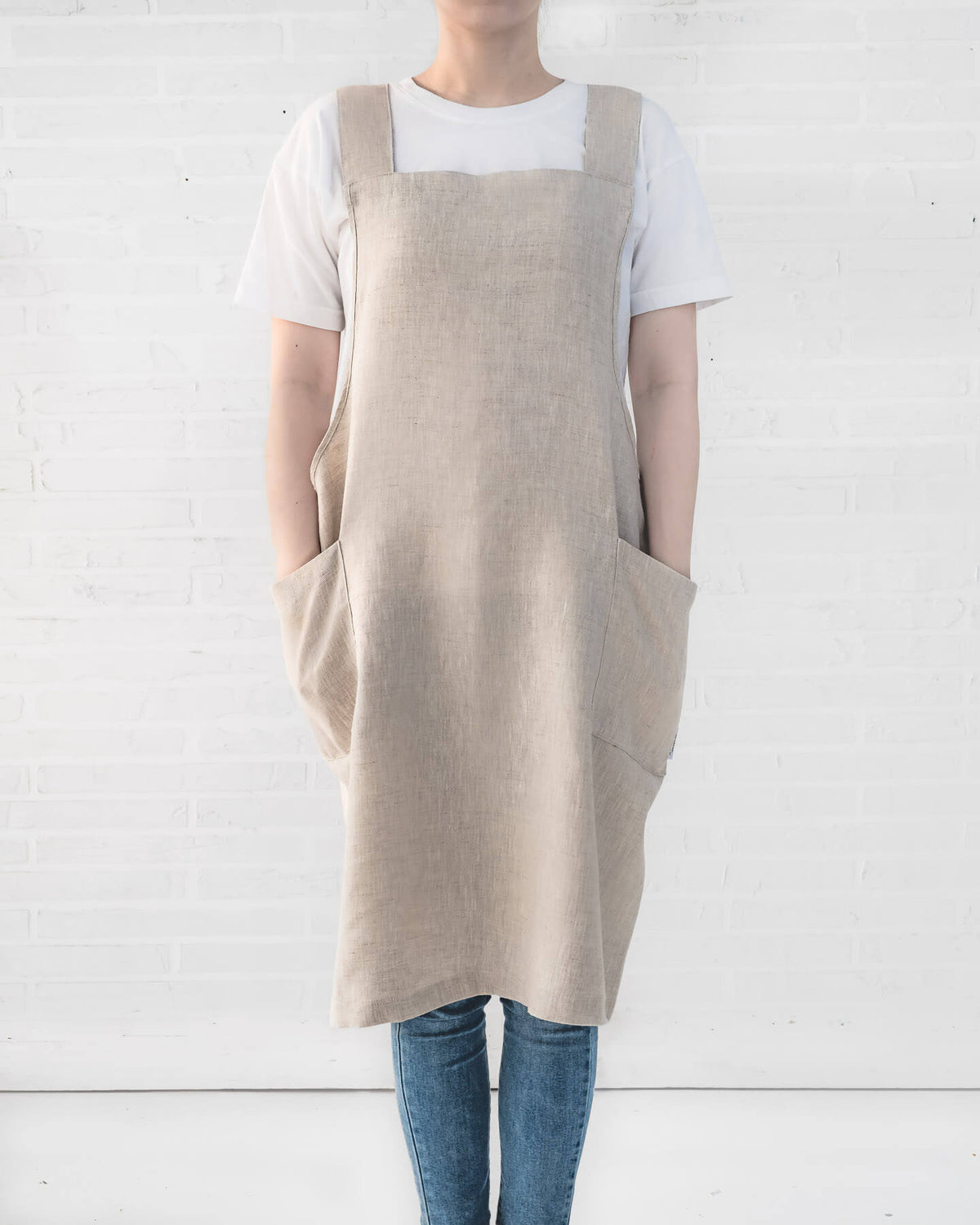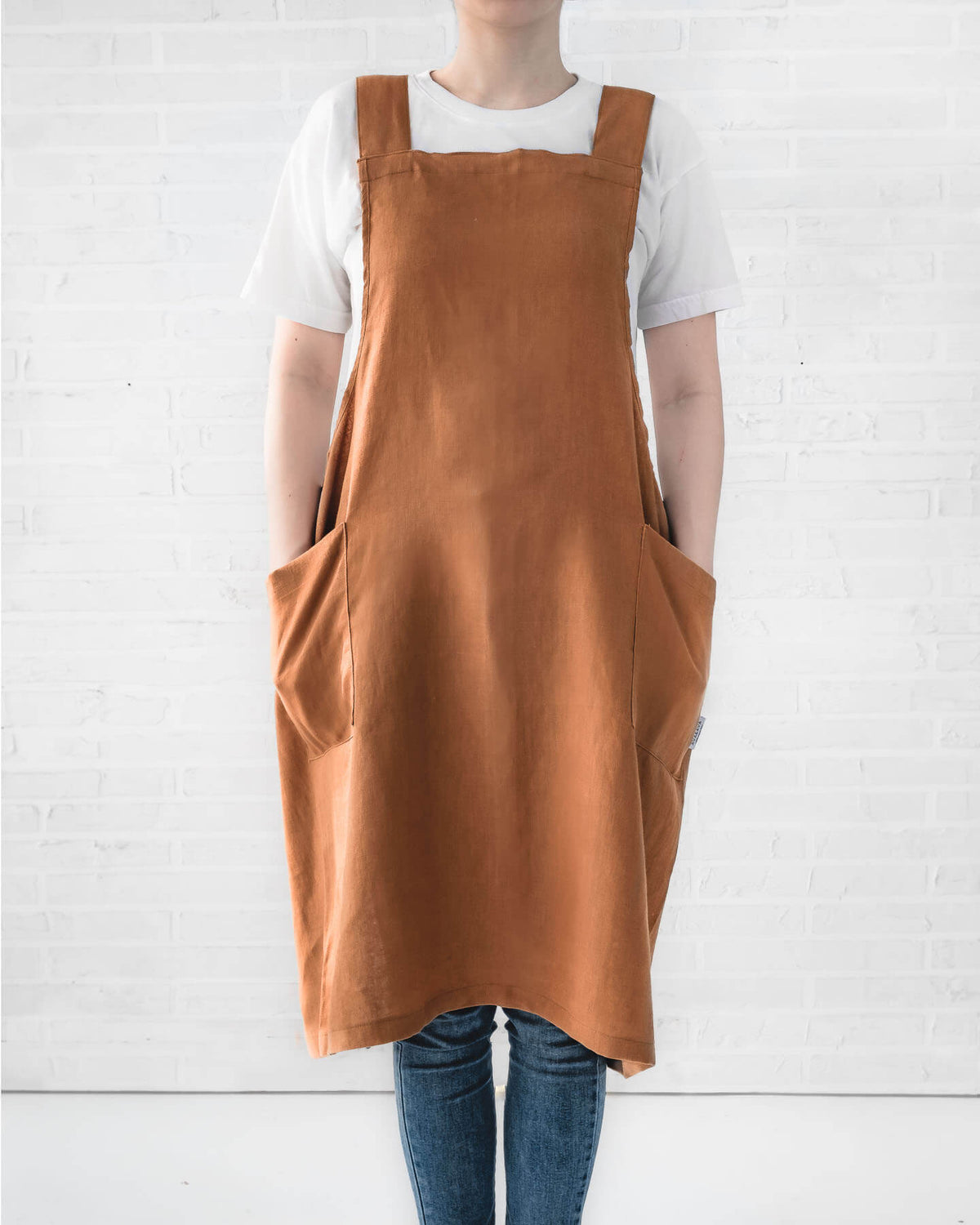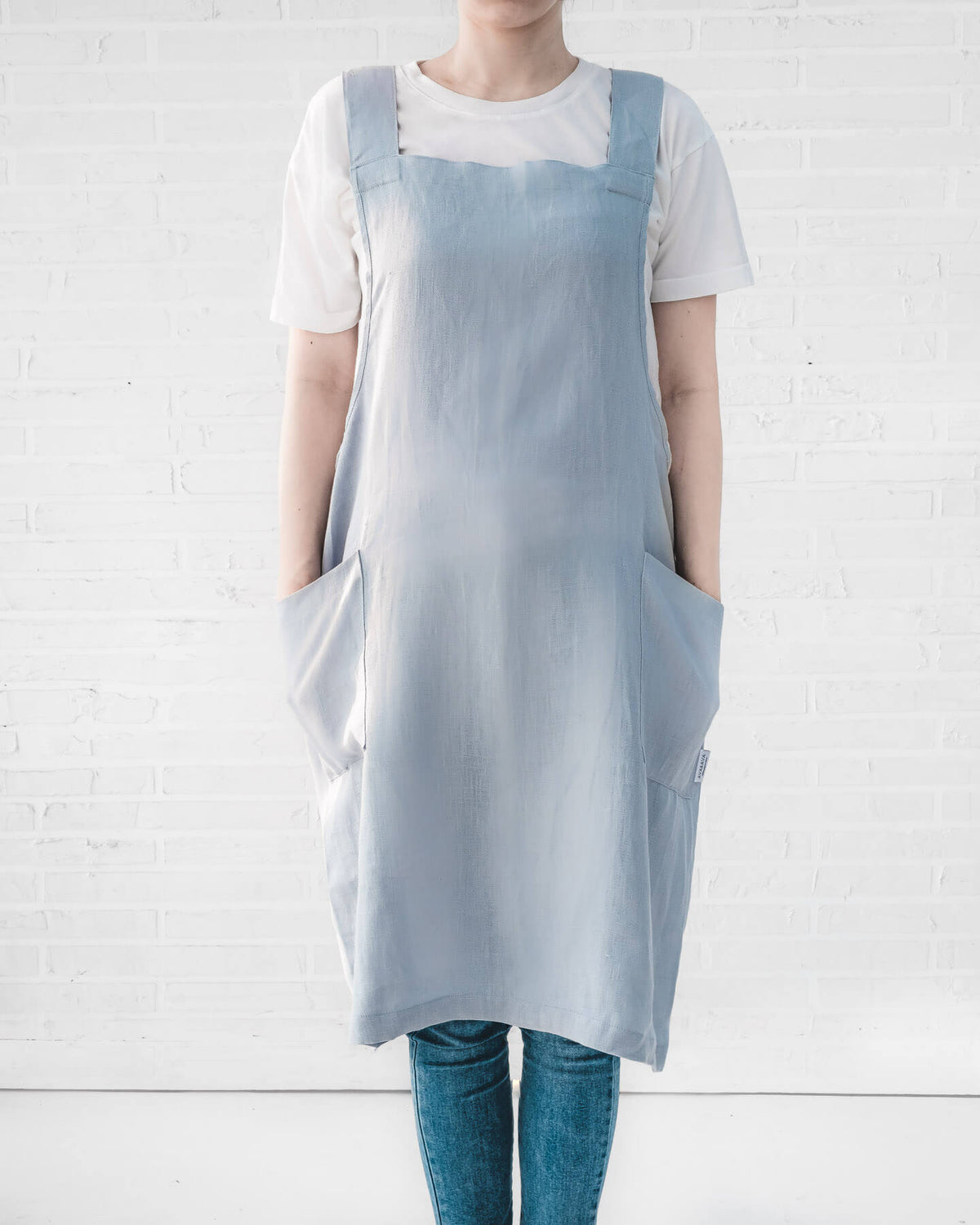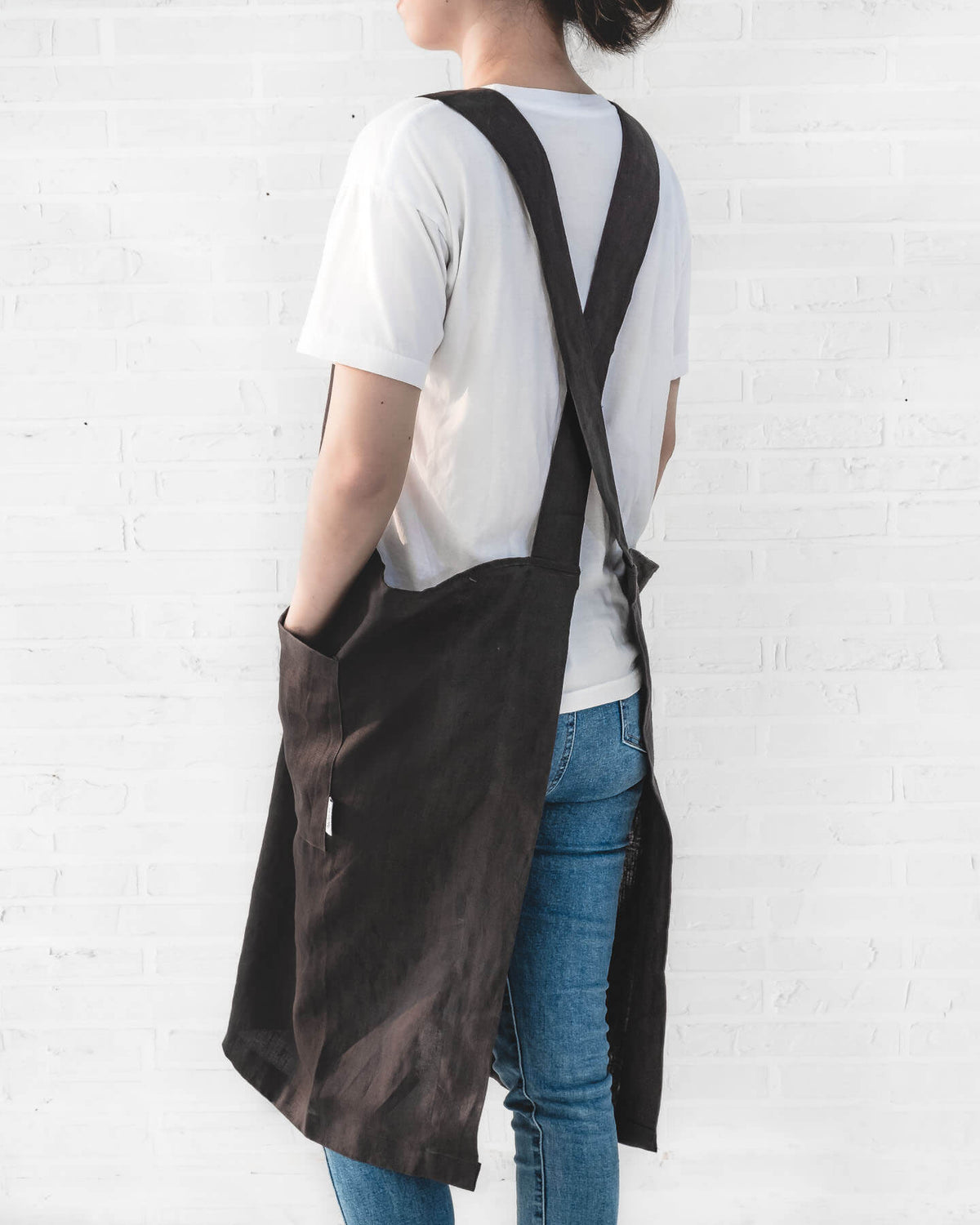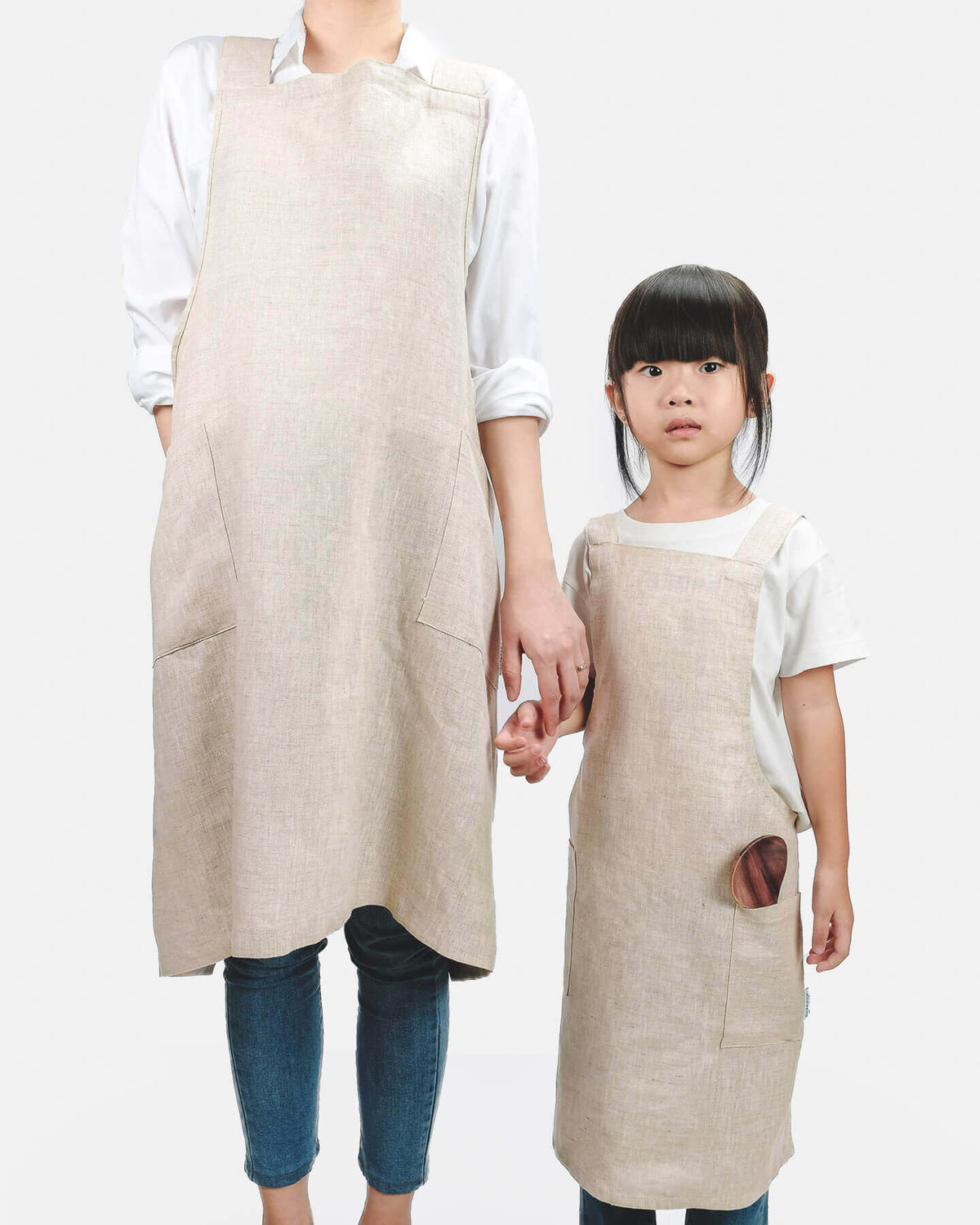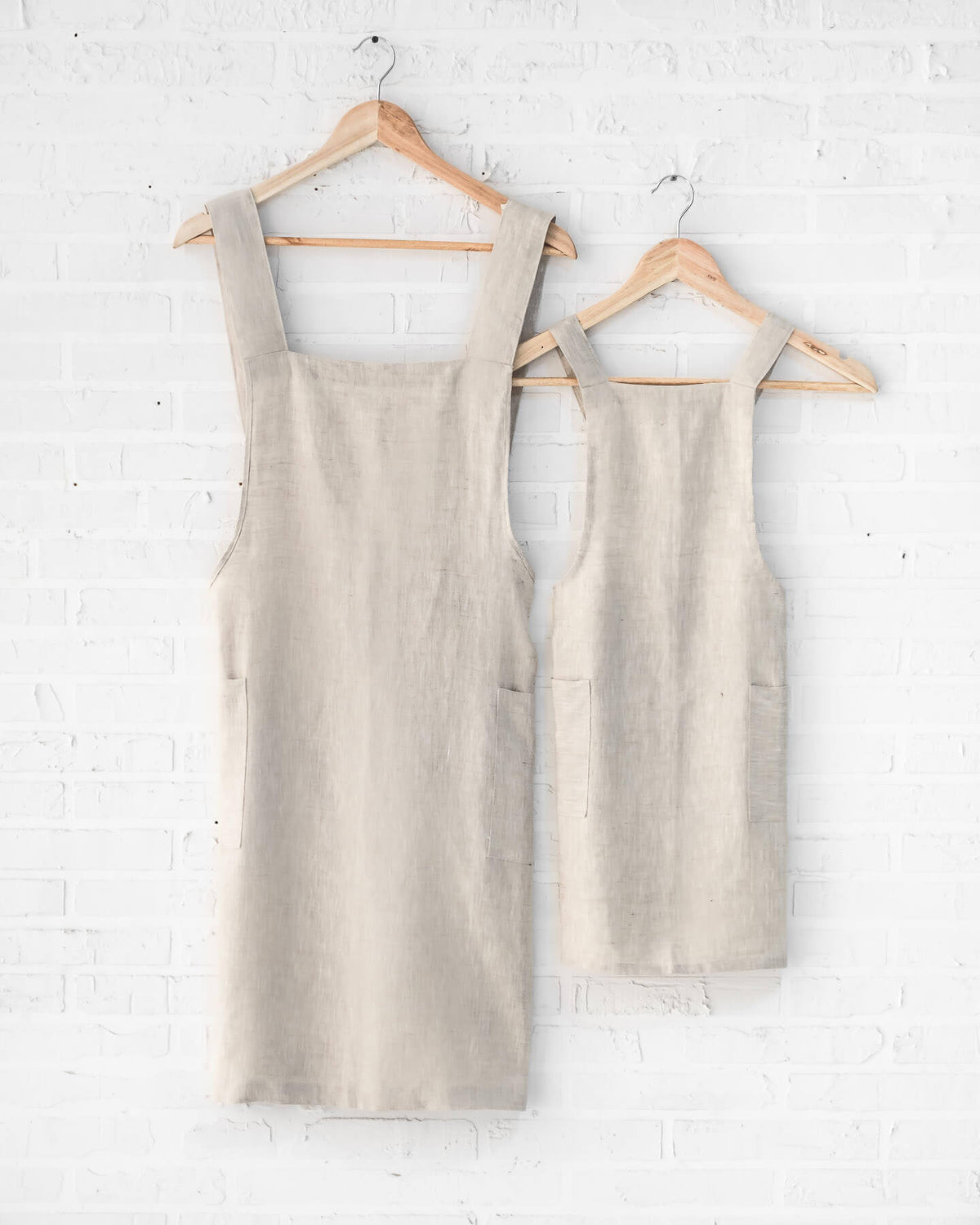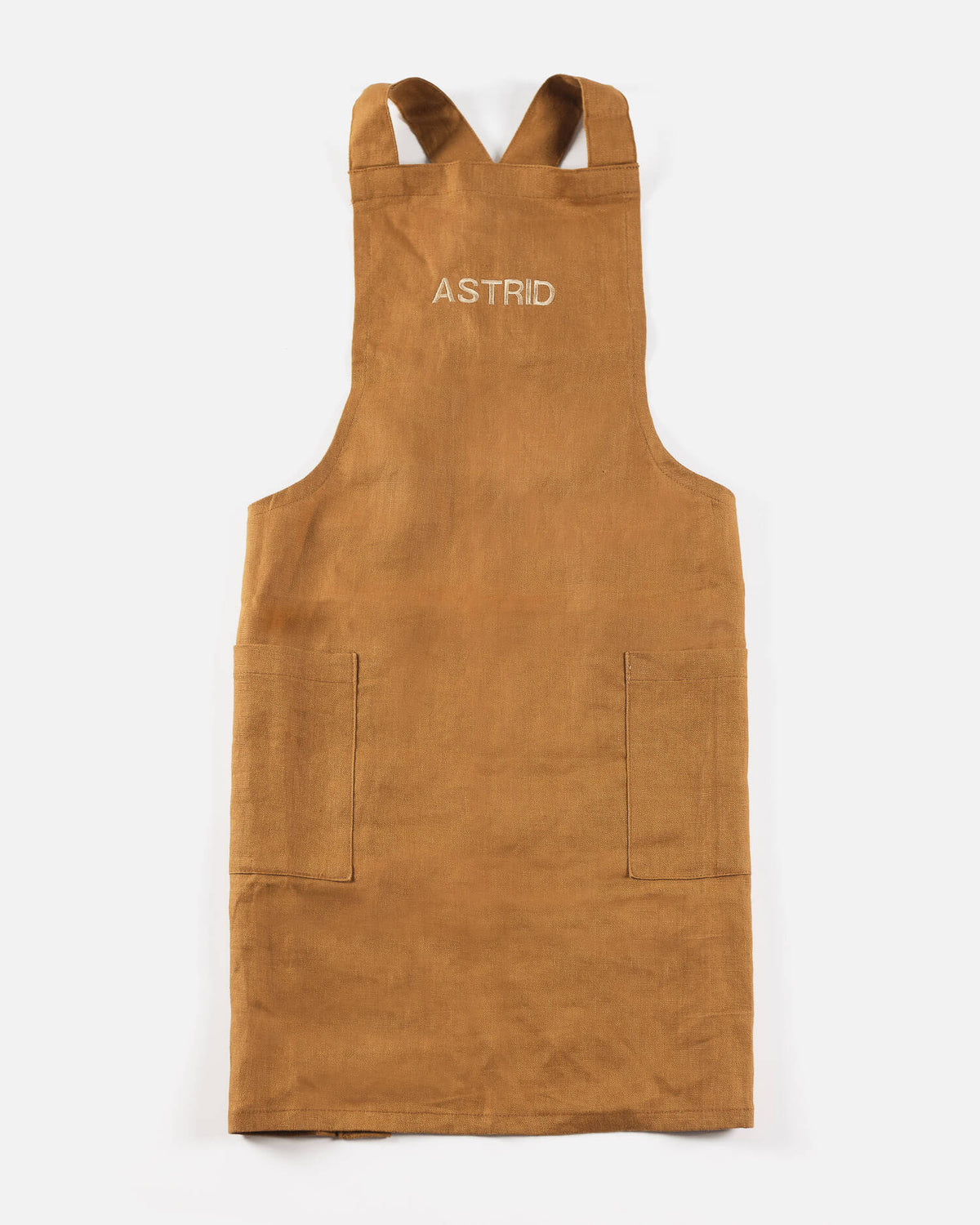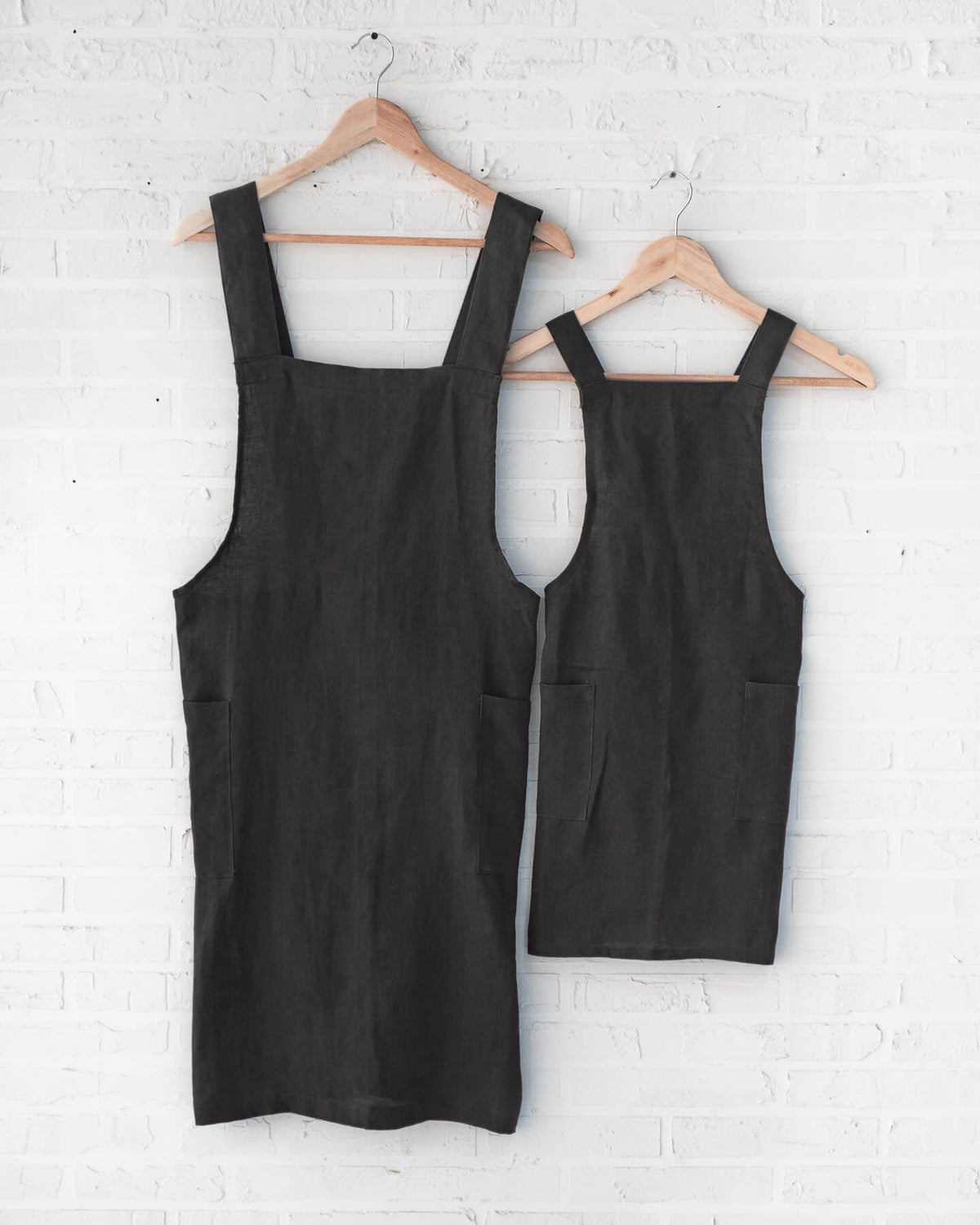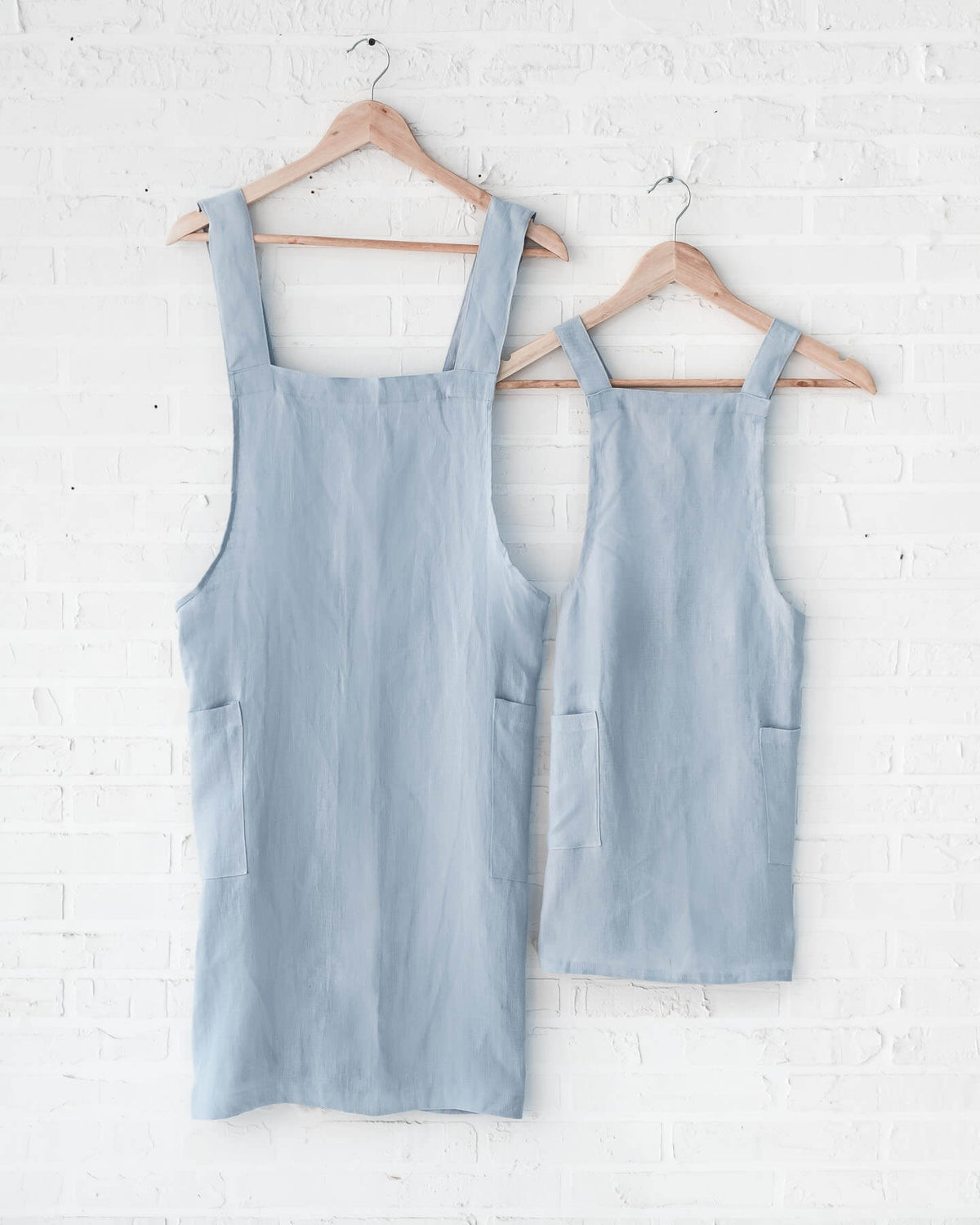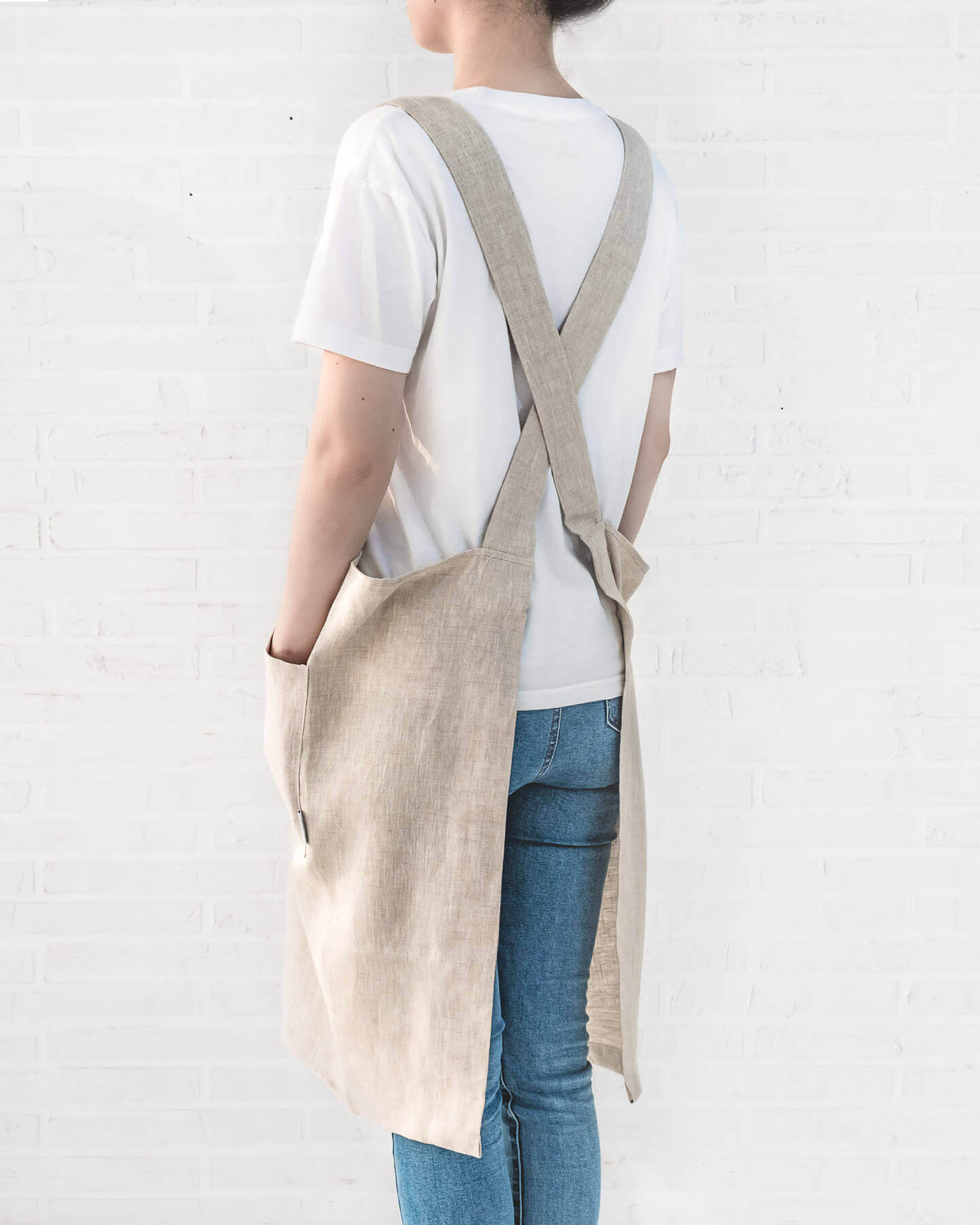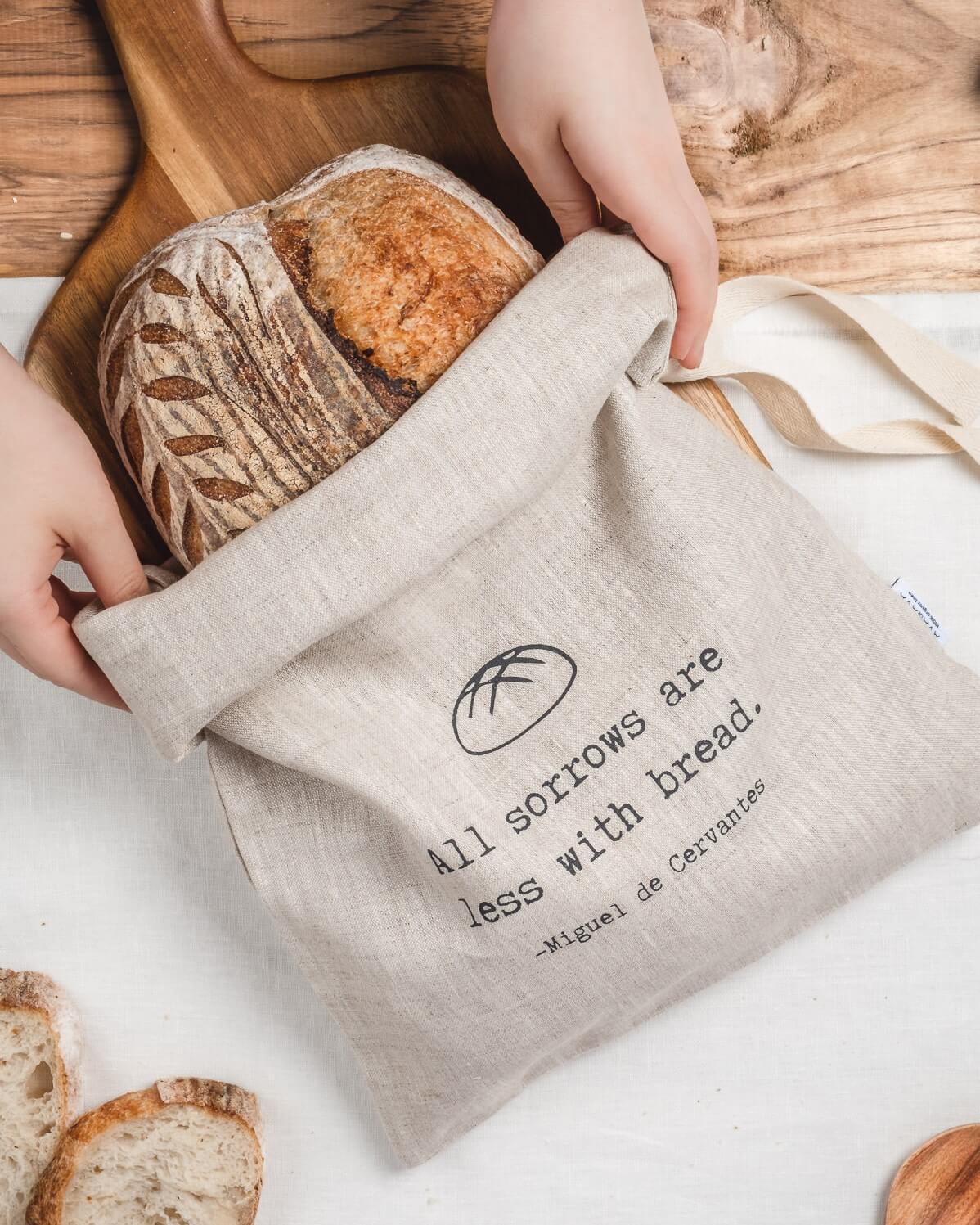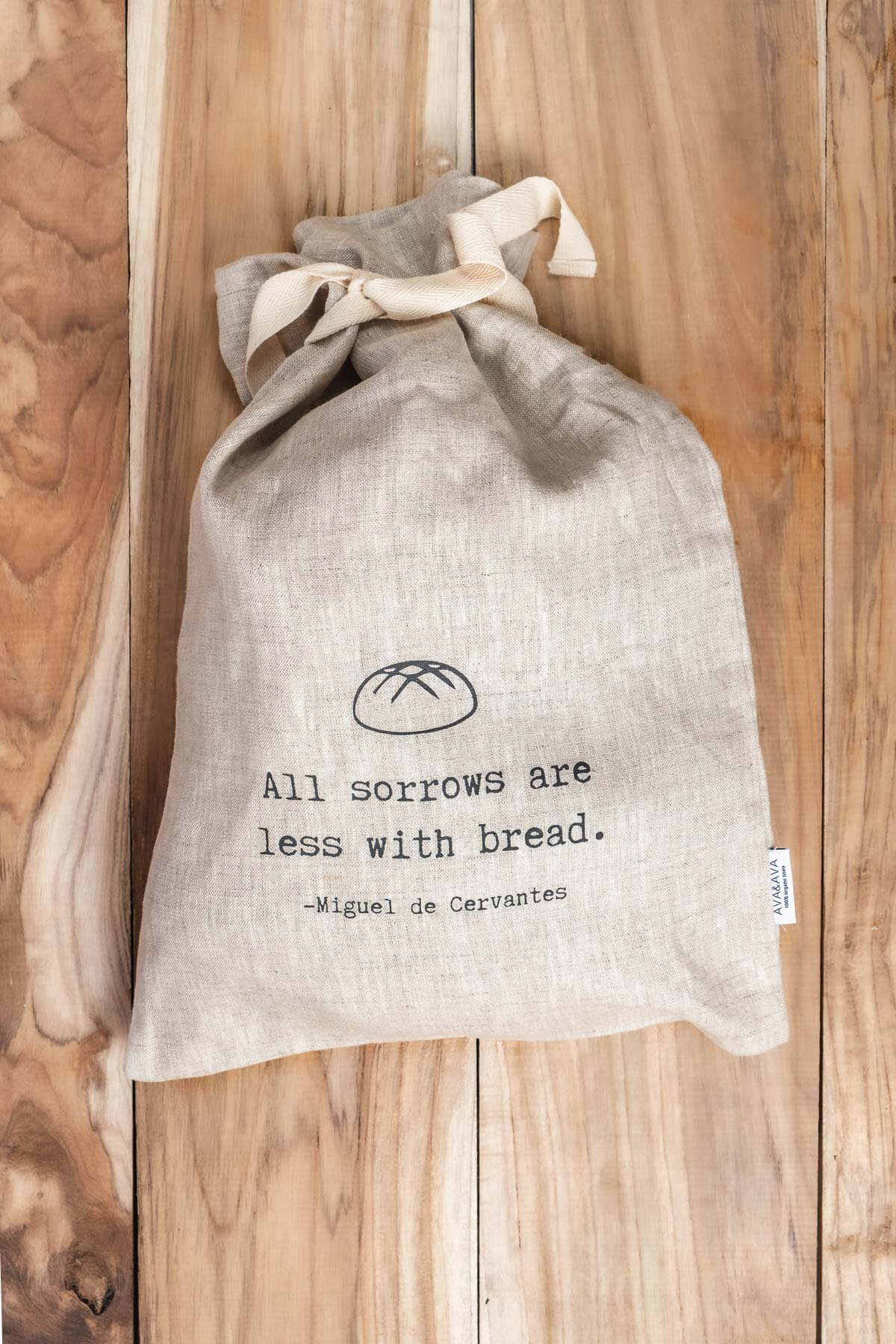1 | It's the most durable natural textile.
- Lasts 12x longer than cotton with 2-3x the tensile strength. By contrast, cotton is quickly weighed down by oils and moisture over time.
- Better with age. Due to its unique structure, linen gets softer, stronger, and more lustrous with every wash. It ages so beautifully, it's considered an heirloom in traditional European families.
- Easy care. Linen resists dirt and stains, doesn't pile, and can be machine-washed.
Did you know the Shroud of Turin (believed to be Jesus' burial shroud) is made of linen? It was still intact when it was found thousands of years later!
2 | It keeps our bodies and food at the perfect temperature.

Pure linen can help keep food fresh due to its antimicrobial and thermoregulating properties. Featuring the pure linen bread bag.
Linen's versatility is due to its unique ability to adapt to our body temp, keeping you cool in the summer and warm in the cold seasons.
This also comes in handy in keeping food fresh. Linen can keep veggies crisp fresh in the crisper without drying or over-cooling.
How does it do these? Unlike synthetic fabrics and airtight containers, linen lets your skin and food breath, wicks moisture away without over-drying, and is naturally resistant to bacteria, insects, moths, and mold.
This is why linen has been often used for summer clothes, bandages, and even proofing and storing bread and produce.
3 | It's effortlessly beautiful.

Wrinkles are part of linen's charm which makes it look effortless yet refined and elegant. Matching adult and kids pure linen crossback apron in Winter Sky
There's nothing quite like linen's soft textured feeling and effortless look. Some may see its wrinkles as imperfection, but they're actually the mark of its purity. You can spot pure linen as it is more wrinkled and textured than linen blends.
We loved this so much that it inspired our brand's ethos. We believe linens should be easy and beautiful, and eco living to be about small changes and progress, not perfection. #effortlesslyeco
4 | It's sustainable.
Like bamboo, flax is one of the most efficient plants.
- No pesticides. Flax can be cultivated even under poor soil conditions with no pesticides. By contrast, even though cotton covers 2.4% of the world's cultivated land, it uses 16% of the world's insecticides and 6% of pesticides—more than any other crop!
- Less water. Flax grows well even with just rainwater. Only 6.4 liters of water are needed to produce a linen shirt—compared to 2,700 liters for a non-organic cotton shirt.
- Every plant part used. None of the flax plant go to waste—the best fibers go to making linen, while the rest is used for other products like flaxseed food products, flaxseed oil, linoleum, and paper.
- Linen lasts long. Due to linen's durability, there's less need to replace it, lessening textile waste.
